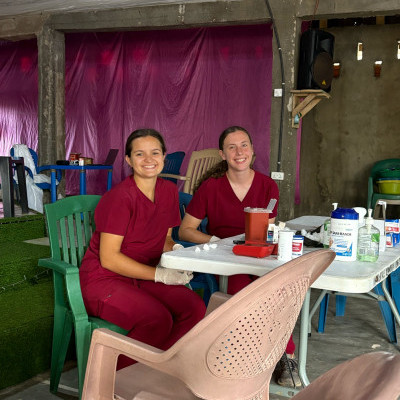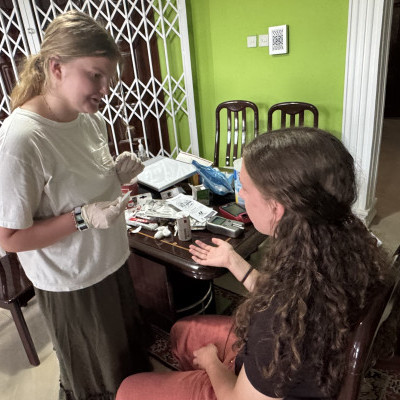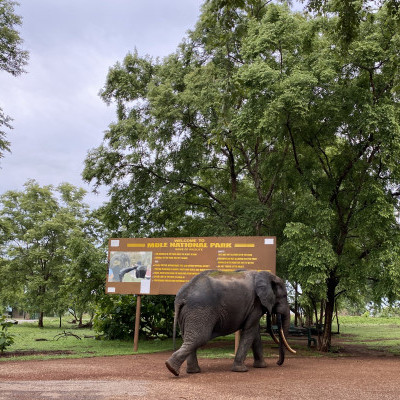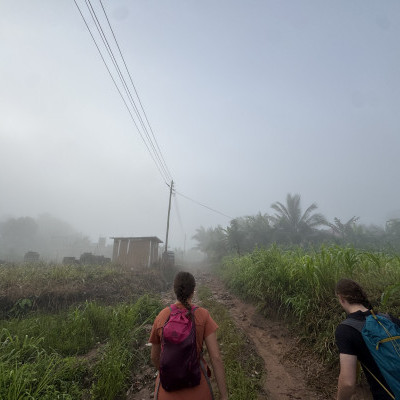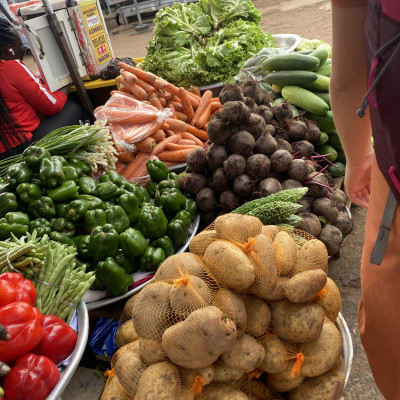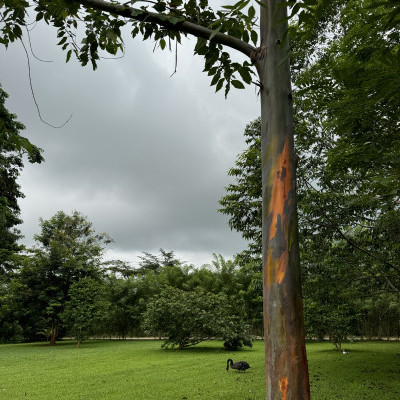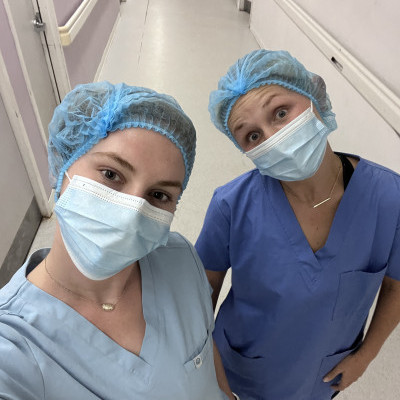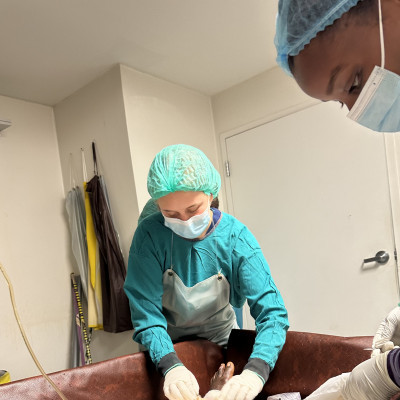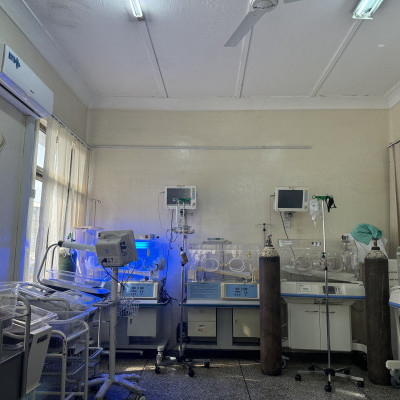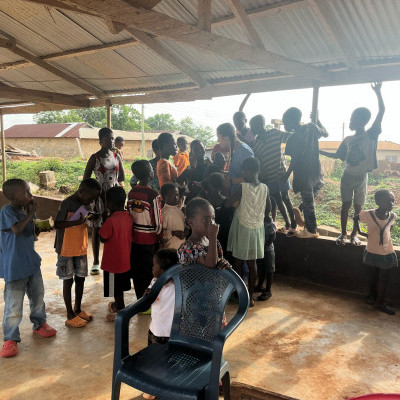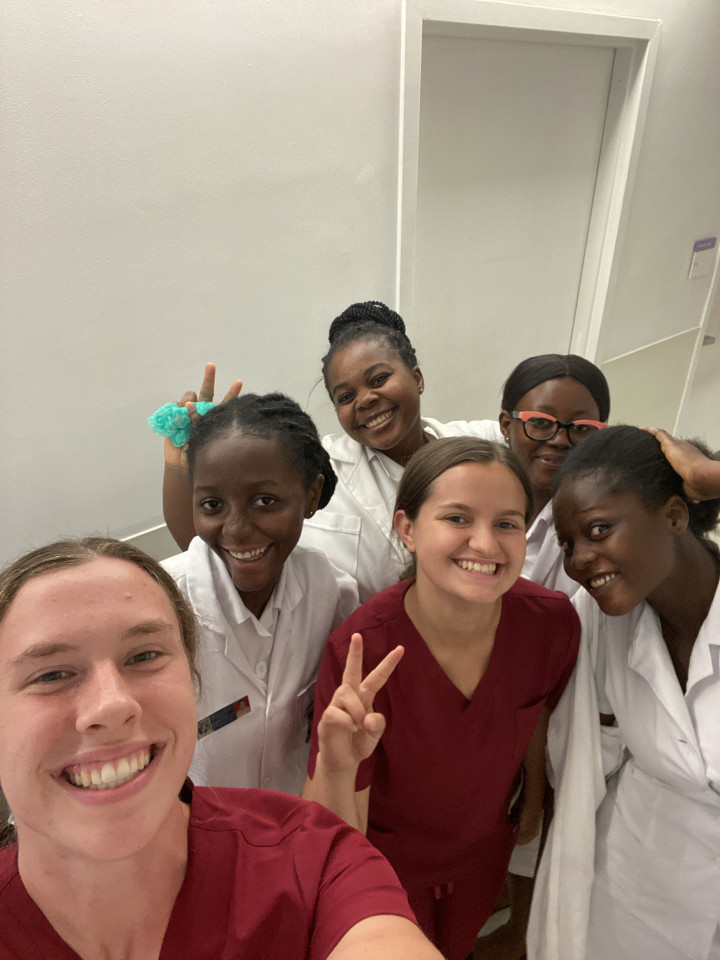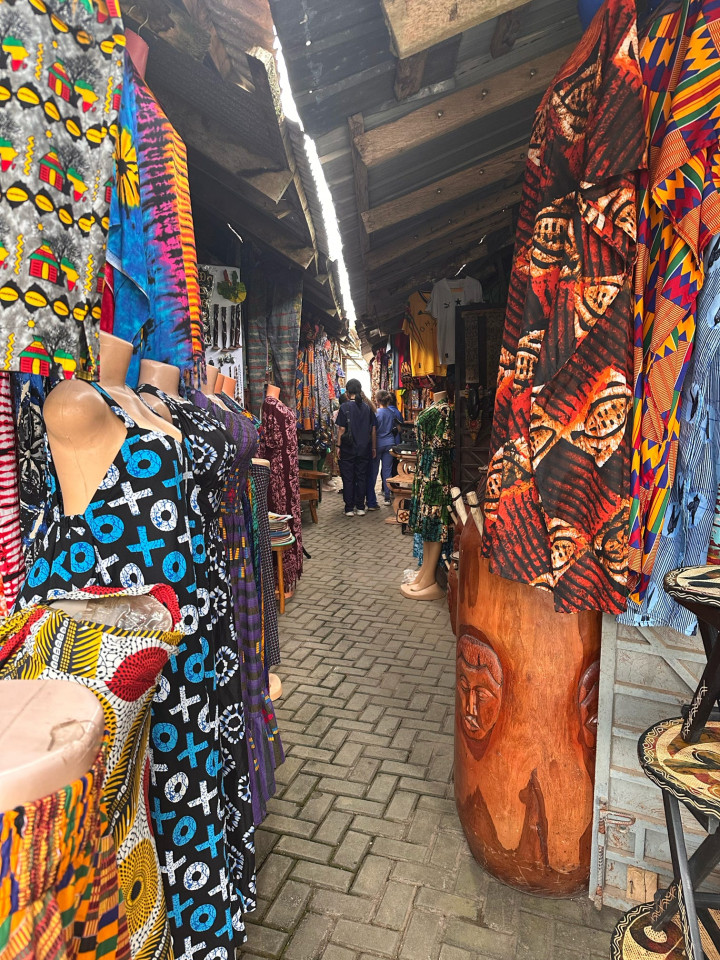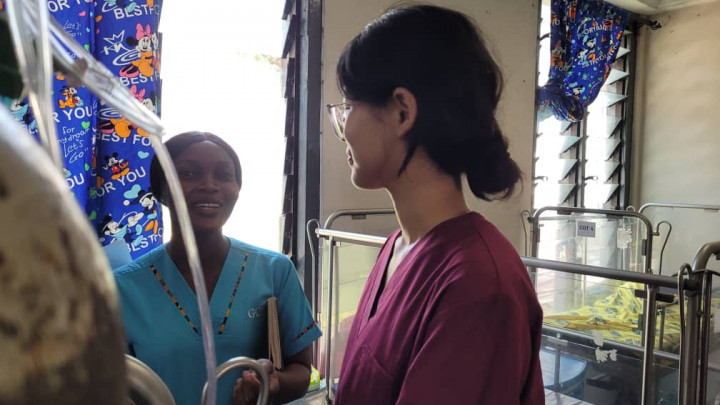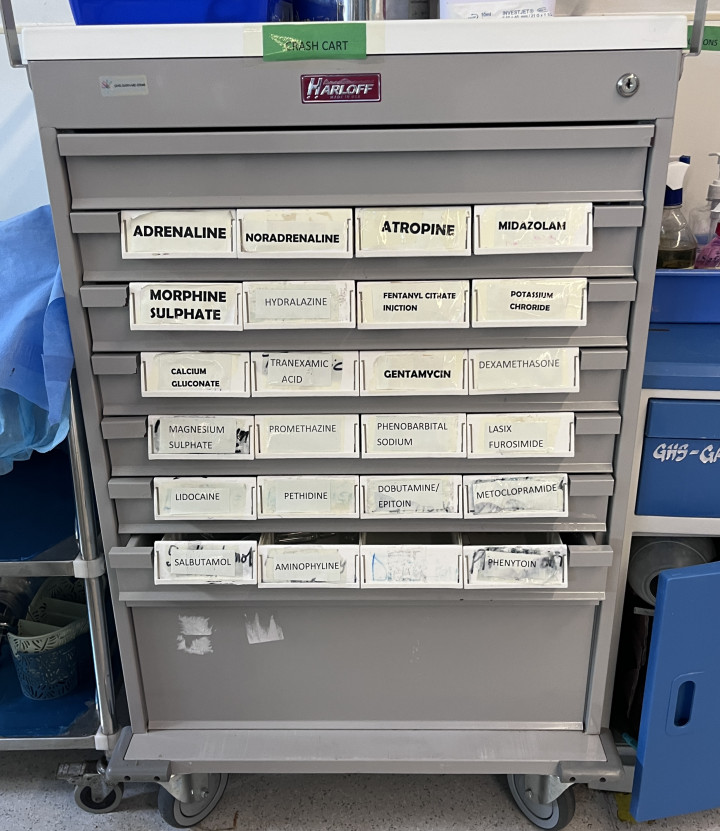Nutrition students share their personal experiences in Ghana. From the plane ride to hospitals and engaging into the community, you'll hear first-hand details of their Ghana adventures.
-

-

Where Life Begins: My Time in Labor and Delivery
July 18, 2025
-
Scheduled Surgery Ward at Ridge Hospital
July 18, 2025
Observed a skin graft surgery for a severe burn victim, ulcer surgery, and more in the surgery theatres at Ridge Hospital
-

Precision and Care
July 17, 2025
-

Inside the Burns ICU Unit
July 17, 2025
I spent the day in the ICU burns unit, where I observed patient rounds, learned about burn care, and assisted with a dressing ch
-
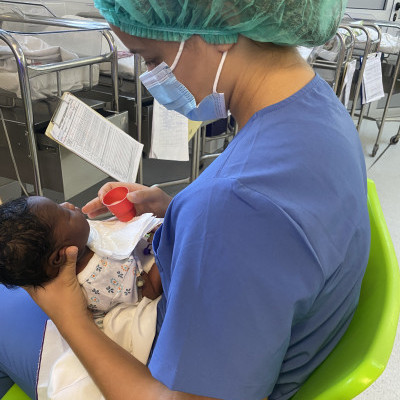
Reflections from an Aspiring OB/GYN
July 16, 2025
Synthesizing experiences from labor and delivery, maternity, and NICU wards in contemplation of a future career.
-

Book Discussions
July 16, 2025
For the past three weeks (including this week) we have all participated in book discussions about Ghana, being in a new culture,
-
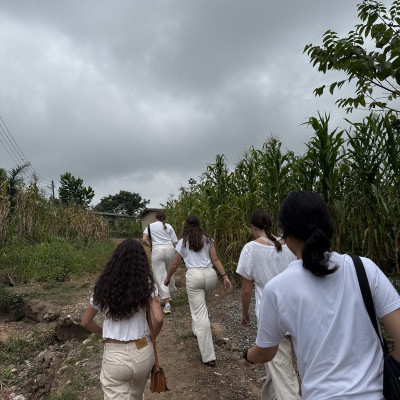
Crashing a Ghanaian Memorial Service!
July 13, 2025
Experiencing the Ghanaian funeral traditions with Dr. Anderson’s family.
-
Maternity Ward at Ridge Hospital
July 13, 2025
Callie and I shadowed in the the Maternity HDU and Maternity ICU at Ridge hospital in Accra.
-

New Rotations, New Interests
July 12, 2025
-

-

A Day in Physiotherapy…
July 12, 2025
Shadowing the physiotherapy department at Ridge Hospital and learning about my future career!
-
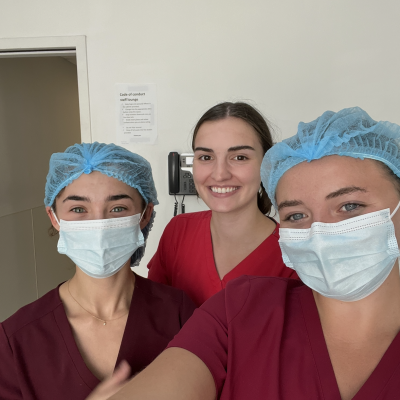
Observing Surgery in Accra
July 12, 2025
-
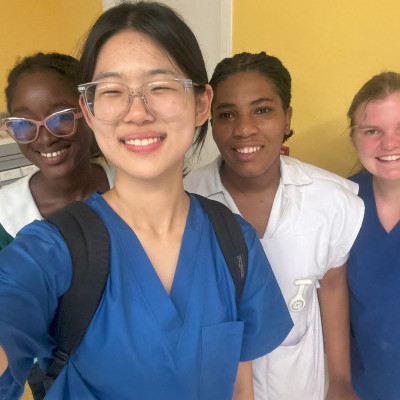
Shadowing in the Emergency Ward
July 12, 2025
Yunna and I learned a lot about the emergency ward and patient care from the nurses at Ridge Hospital
-
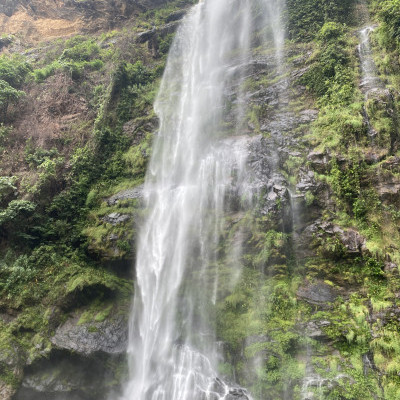
Independent Travel Weekend to the Volta Region of Ghana
July 07, 2025
Wli Waterfalls, Monkey Sanctuary, and more in the Volta Region of Ghana
-
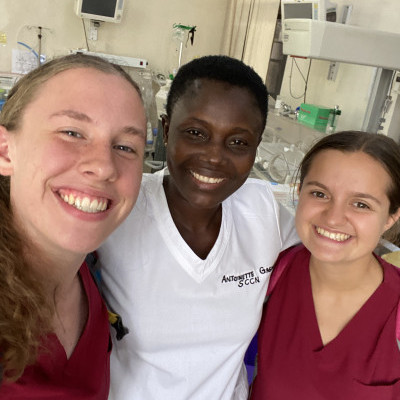
-

A Day in the ER
July 04, 2025
-

A Holiday in Ghana
July 04, 2025
-
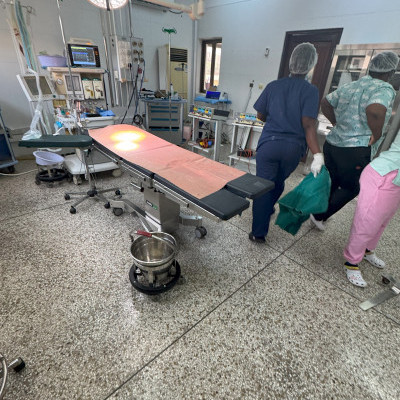
Inside the Operating Room
July 03, 2025
Yunna and I got to shadow a few surgeries in the OR at Princess Marie Louise Children's Hospital
-
Aburi Crafts Village: The Art of Bargaining
July 03, 2025
A quick trip to the Aburi Crafts Market for some authentic Ghanaian trinkets, jewelry, paintings and more...
-
-
Community Screenings in the Central Region of Ghana
June 29, 2025
Traveled to Cape Coast, Ghana to conduct community health screenings!
-

-
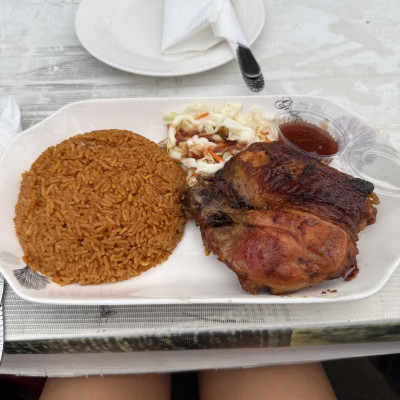
-
Work and Play
June 29, 2025
-
Being Welcomed + Book Discussions!
June 25, 2025
Meeting the community Chiefs and starting book discussions!
-

-
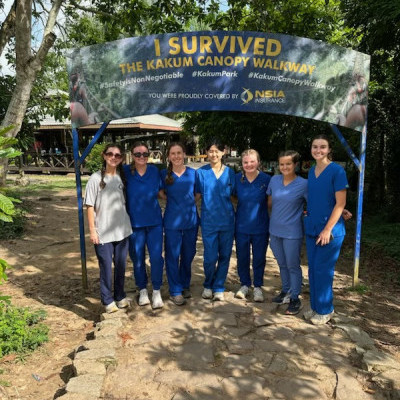
Above the Trees: An Afternoon at Kakum National Forest
June 24, 2025
Today we went on an adventure to Kakum National Forest and participated in the canopy walk!
-

A Trip to Safari Valley Resort
June 22, 2025
-

Sunset Walks with New Friends
June 22, 2025
Taking walks around our community and getting to meet new people!
-
University of Ghana and Screening Prep!
June 20, 2025
We learned about ongoing research and practiced for community screenings!
-
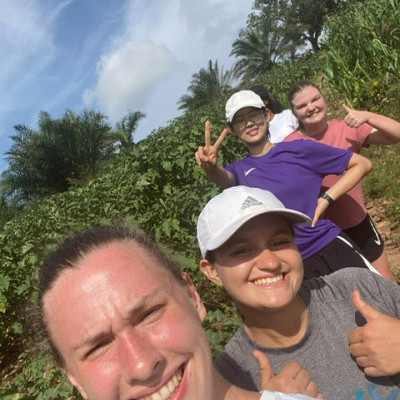
Water Fallin’ for Ghana
June 19, 2025
The four of us embarked on a journey to a waterfall guided by Kojo, his cousin, and Mary.
-
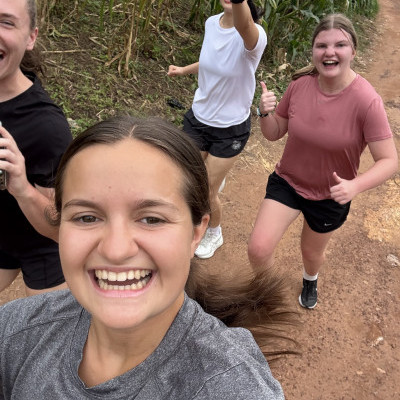
-
-
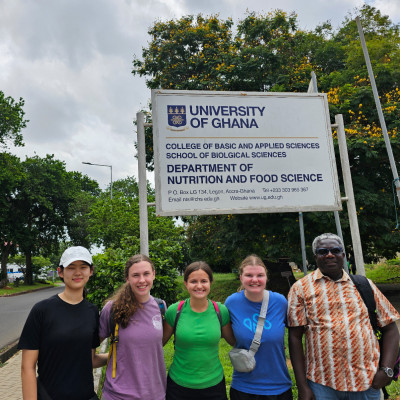
-
-
The Web of Unity
June 14, 2025
-
Our First Full Day in Ghana: Madina Market Survey
June 14, 2025
-
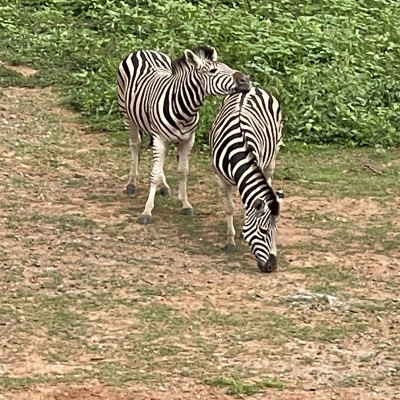
Final Weekend of Relaxation
July 19, 2024
-
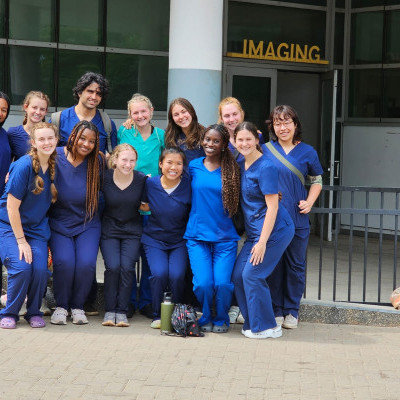
Departure From the Motherland
July 19, 2024
This journey has profoundly impacted me as an individual.
-
Personal Growth and Last Week Reminiscing
July 18, 2024
Personal growth was one of my goals for this program and as we approach the end, I am proud to say I have grown tremendously.
-
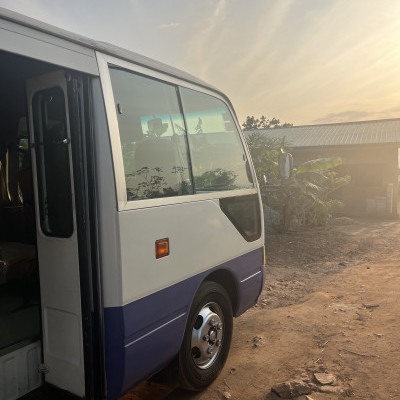
Our Last Bus Ride
July 18, 2024
-

-
The Power of Plants
July 18, 2024
Touring Safari Valley, we learned about traditional medicinal practices.
-
-
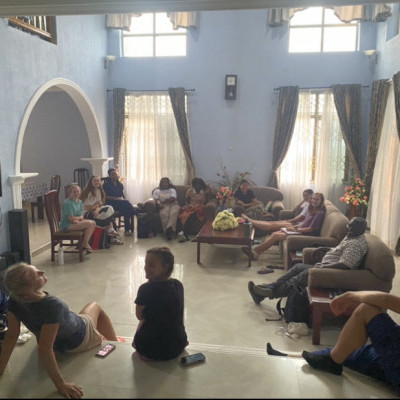
Our Nightly Book Discussions
July 17, 2024
Each night, we gather in the living room eager to create discussions pertaining to various novels written by Ghanaian authors.
-
Complications in C-Sections
July 17, 2024
I had the opportunity to observe many c-sections, but not all are the same.
-
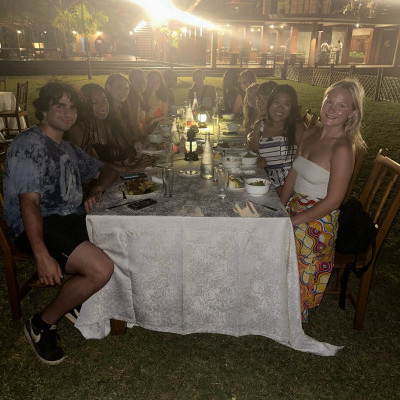
-

How Strike Can Affect a Patient
July 16, 2024
Medical professionals went on strike on Monday and it affected multiple surgeries.
-
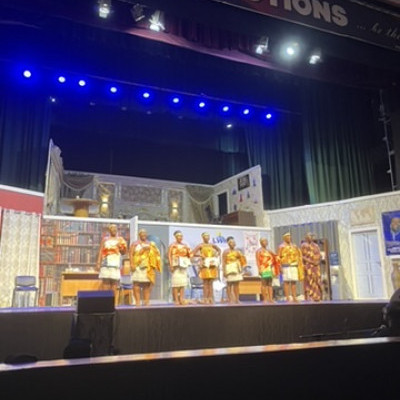
“Takeover” at the National Theatre of Ghana
July 16, 2024
-
Excursion to the National Theatre of Ghana
July 15, 2024
-
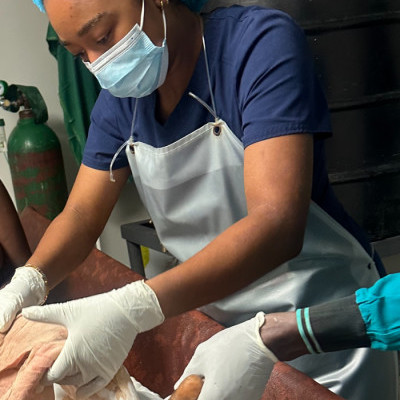
Raw Experiences in Ridge Hospital
July 12, 2024
I’ve learned so much during my time at ridge and I can’t wait to return next week!
-
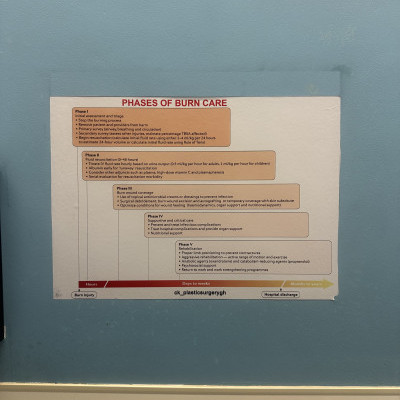
Learning About Burns
July 12, 2024
I spent the day in the burns ICU and learned a lot about the healing process!
-
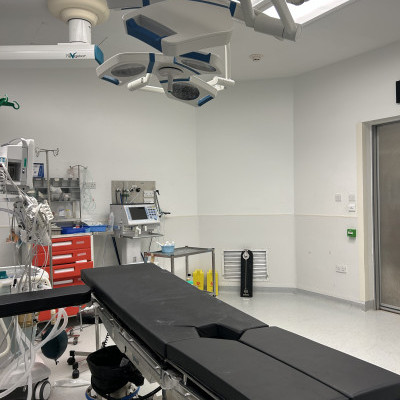
-
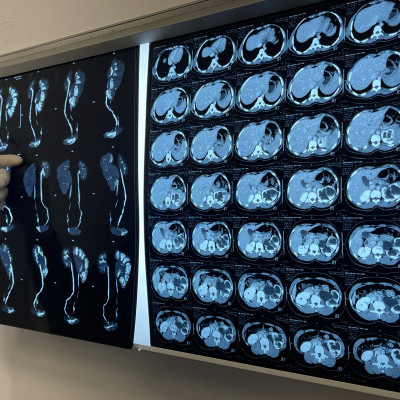
-
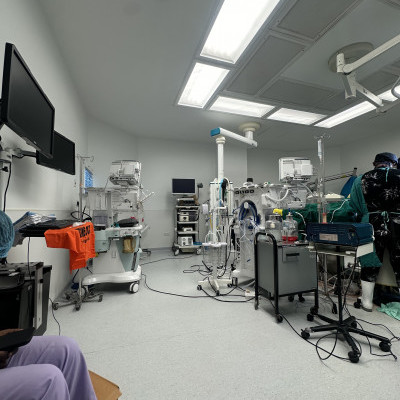
Live births, brain surgery, and burns!
July 12, 2024
My favorite departments at Ridge Hospital this week were labor and delivery, 24 hour surgery, and the burn ICU!
-
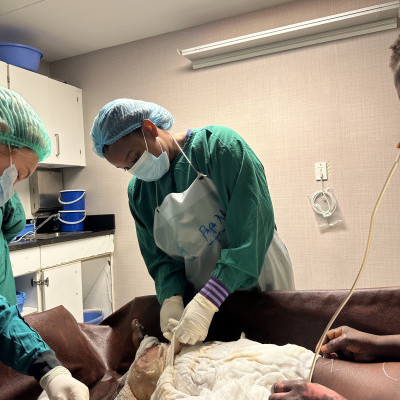
Compassion in the Face of Adversity
July 12, 2024
I had the opportunity to go to the ICU this week with my classmate, Jolie, and nothing could have prepared me for the experience
-

Growing Confidence Through Giving Care
July 12, 2024
Shadowing in Greater Accra Regional Hospital’s NICU, I learned many valuable lessons.
-
Ridge Hospital Rotations
July 11, 2024
-
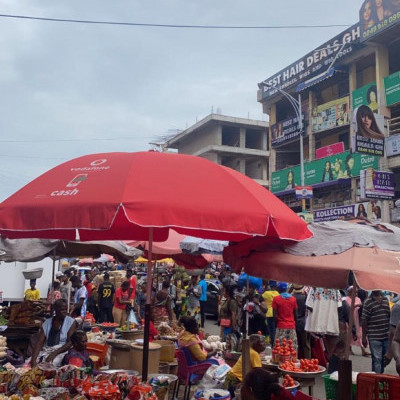
-

Aqua Safari Resort
July 11, 2024
-
Don’t or Debt?
July 11, 2024
The United States and Ghana have different approaches to how they handle patients who cannot afford their prescription.
-

Becoming Closer with Our Community One Step at a Time
July 11, 2024
-

Cross Continental Pharmacy
July 05, 2024
-
How Doctors Think
July 05, 2024
I witnessed the reasoning processes that physicians are trained to utilize to arrive at appropriate diagnosis and prognosis.
-
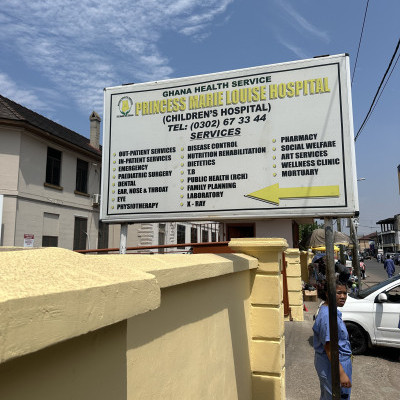
Shadowing In Emergency at the Children’s Hospital
July 05, 2024
-

Assisting in Surgery!
July 04, 2024
On Wednesday, I was in the surgery unit of the PML Hospital. I got to observe 3 surgeries, and scrub in/ assist in one!
-

Gaining Insight on Malnutrition
July 04, 2024
Throughout my time at PML this week, I have gained an interest and thorough education on malnutrition.
-
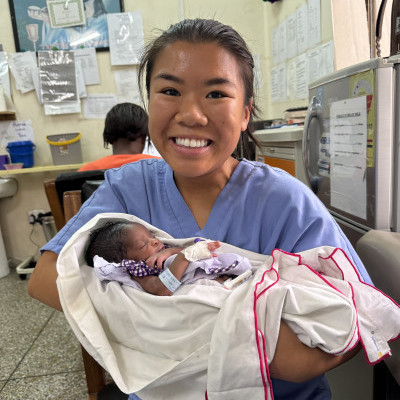
Baby Jemyma!
July 04, 2024
Observing Baby Jemymah in the Newborn Care Unit at Princess Marie Louis Children’s Hospital
-
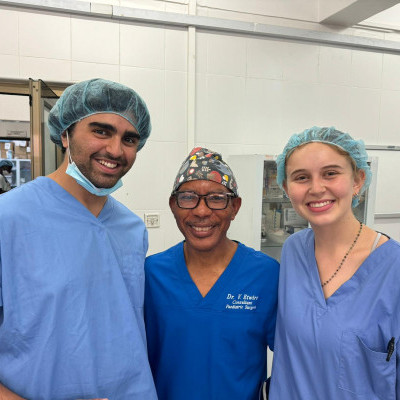
Doctors Saving Lives Without Single-Use Supplies
July 04, 2024
-
Neonatal Jaundice and Phototherapy
July 04, 2024
Peyton and I shadowed nurses in Princess Marie Louise Hospital’s neonatal care unit and learned about neonatal jaundice.
-

The Importance of Family
July 04, 2024
Family members do not leave the child’s side while they are in the hospital and this creates and calming and caring environment.
-

Baby Carrying Techniques
July 04, 2024
Exploring the contrast between American and Ghanaian baby-carrying practices.
-

A Night Out In Cape Coast
July 04, 2024
Last Friday, we wrapped up our community nutrition and health screenings early to set forth on an adventure to Cape Coast.
-
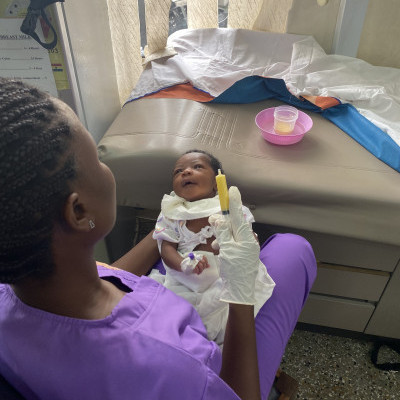
KMC: Caring for Premature New Borns
July 04, 2024
-
Princess Marie Louise Children’s Hospital
July 03, 2024
-
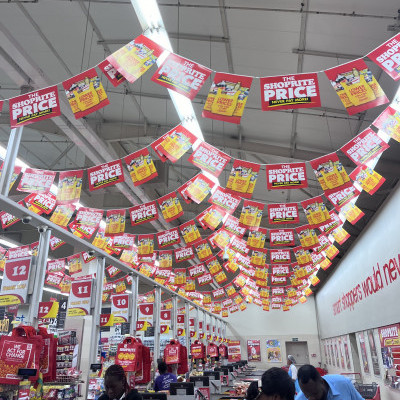
Gluten-Free in Ghana
June 28, 2024
Navigating a different country is already difficult, but when you add dietary restrictions that is a different rodeo.
-

Impacting Lives In The Gomoa Communities
June 28, 2024
Last week, we embarked on an incredible journey conducting community nutrition and health screenings in Ghana's Central Region.
-
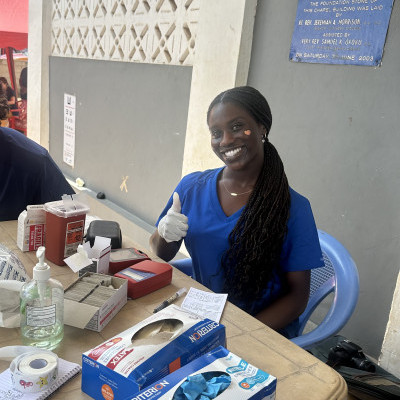
An Impactful Week in the Gomoa Region of Ghana
June 28, 2024
This week in Ghana, we embarked on a journey to the Gamoa region to set up mobile community health clinics.
-
New Friends in a New Place
June 28, 2024
-

Meeting the Chief of Gomoa Fetteh
June 28, 2024
We met the Chief of the Gomoa Fetteh village to get his blessing to enter the area.
-
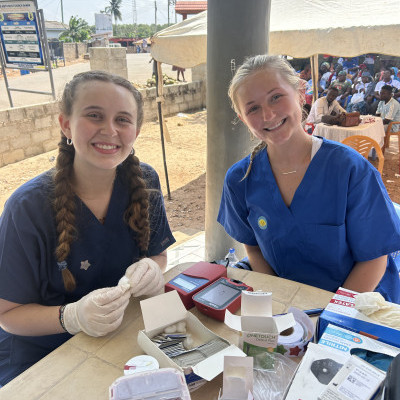
-
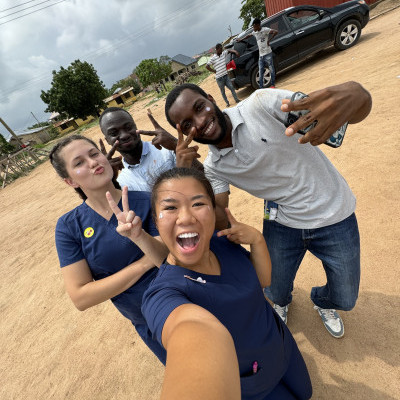
Making New Friends
June 28, 2024
Building relationships with locals in the communities through health and nutrition screenings.
-
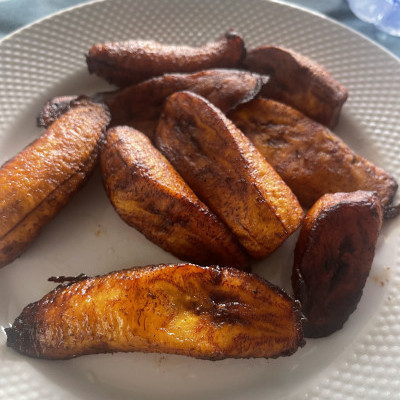
Carbohydrates
June 28, 2024
The contrast between American and Ghanaian perceptions of food has become more noticeable the longer I’ve been in Ghana.
-
Lessons in Twi
June 28, 2024
-
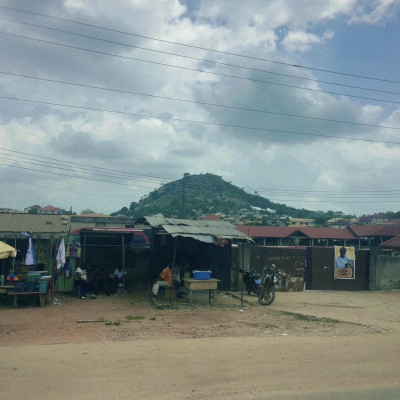
Observing Fascinating Ghanaian Architecture
June 28, 2024
-

Our Friend Robbie in Gomoa Amoanda
June 28, 2024
At our second health screening, we met Robbie, who generously welcomed us to Gomoa Amoanda.
-
Clinical work
June 28, 2024
-
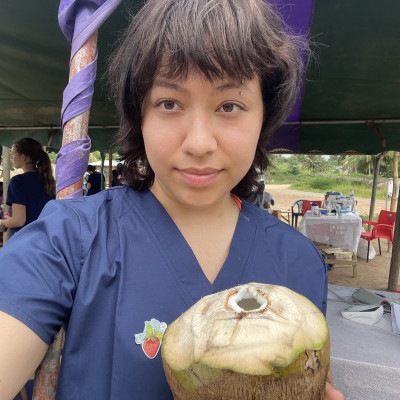
Crazy for Coconut
June 28, 2024
As our group worked tirelessly at different health screenings throughout the week, freshly cut coconut was a sweet treat to try.
-
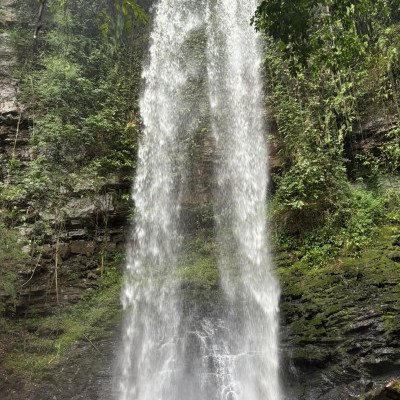
Asenema Waterfall
June 21, 2024
We went to Asenema Waterfall in the rain and it was an awesome bonding experience.
-
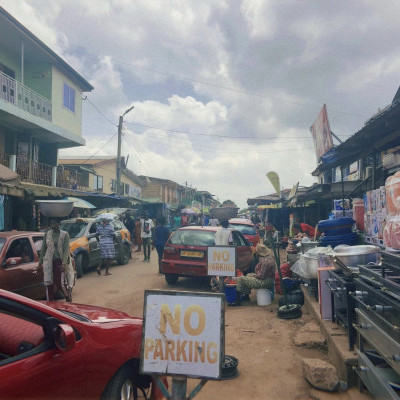
Our First Ghanaian Market
June 21, 2024
-
14 Hour Road trip in Ghana
June 21, 2024
-
On the Road Again
June 21, 2024
-

The Value of Time and Family
June 21, 2024
-

A Boat Ride Through Volta River
June 21, 2024
During our first week in Ghana, we went on a boat ride at the Royal Senchi Resort in Akosombo—
-
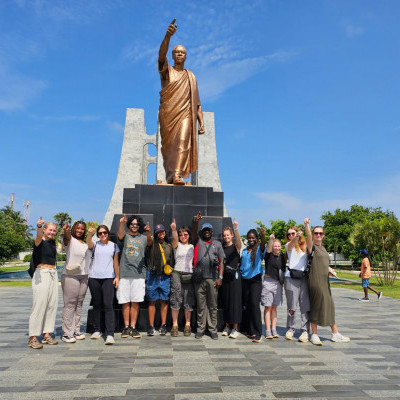
Tour of Former President Nkrumah’s Memorial
June 21, 2024
-

Experiencing Ghanaian Cuisine for the First Time
June 21, 2024
Experiencing the bold, flavorful, and authentic dishes in Ghana for the first time!
-

Welcomed Unconditionally to Ascension Methodist Church
June 21, 2024
We attended a service at Ascension Methodist Church in Mampong. The service was lively, authentic, and fun.
-
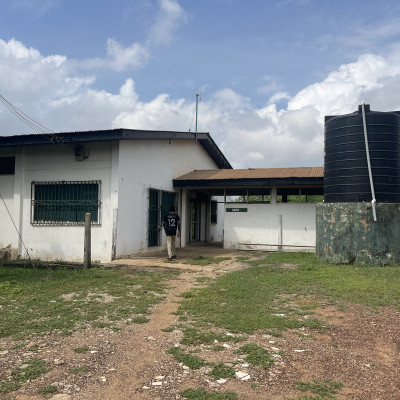
Touring the University Farm
June 21, 2024
Our group got to explore the University of Ghana’s farm sector with an informational guide.

Doctor, Patient, Translator: A Team of Three
July 18, 2025
Today, I originally went to shadow the labor ward, but suddenly, someone asked me if I was Korean. Soon, I found myself translating for a Korean patient in the ER Triage ward. He spoke some English, but the staff had a hard time understanding and asking him more detailed questions, such as his medical history. He had severe pneumonia, which made communication even more challenging.
Dr. Samuel was the physician in charge of this patient, and he asked me to get the patient's history. He gave me around 10 different questions to ask. I tried my best to write down everything, then walked over to the patient and asked him a series of questions. I kept returning to Dr. Samuel, who continued to provide more follow-up questions. I told him the patient does not smoke, and Dr. Samuel asked me if that meant he has never smoked before in his life, which made me go back and ask with more detail. I learned about the importance of a complete history and how the doctor tried to get a complete socioeconomic profile for him. He wanted to see what access and support he had, to see if he had insurance, and to see if he had any sort of way he could have contracted this disease from another person. I learned so much about taking histories and how this all helps contextualize a patient’s condition and allows for treatment tailored to their specific needs.
Dr. Samuel’s empathy and rapport-building were inspiring, and I am glad that I was able to assist. What stayed with me the most was Dr. Samuel's attitude and mindset towards patients. He emphasized, “The patient doesn’t know how well I want him to be. There is no one in his corner, so I need to be there for him.” Dr. Samuel even went to buy him snacks and drinks with his own money. Together, we made sure to contact the Korean Embassy and get help for him so he could have a source of support. It was interesting to hear that the patient wanted KFC the most, and as I translated this, the doctor chuckled. Empathy made Dr. Samuel shine, and I aspire to be as compassionate as he was.
-Yunna Kim

Where Life Begins: My Time in Labor and Delivery
July 18, 2025
During my time shadowing in the Labor and Delivery ward, I witnessed three vaginal births and three cesarean sections, each one a powerful and emotionally charged experience. I quickly realized that birth is far messier, more intense, and more physically demanding than I had imagined.
For the vaginal deliveries, I was struck by how many mothers go through labor without epidurals. The rawness of their pain was palpable. One woman experienced a vaginal tear during delivery that had to be sutured afterward. The procedure was done without significant pain management, and she was visibly in agony throughout. It was hard to watch, but it opened my eyes to the strength and endurance of these women, especially given the limited resources available.
The cesarean sections came with their own challenges. In one case, the baby was in breech position and came out feet first. The doctors had a difficult time delivering the baby’s head, and when she was finally born, she wasn’t crying or moving. For a few terrifying seconds, I thought she hadn't made it. Her breathing was rapid and shallow, which are clear signs of distress, but thankfully, she was alive.
During one of the C-sections, the suction tube kept disconnecting mid-procedure. The surgical team allowed me to scrub in and hold the suction line in place. It was a small role, but I was grateful to be trusted in such a high-stakes environment. That moment made me feel more engaged and connected to the clinical team and the reality of what it means to support life in its most vulnerable moments.
Although I was in awe of the strength it takes to bring a child into the world, I came away realizing that labor and delivery probably isn’t the right path for me. The emotional highs and lows, the intensity of the procedures, and the constant unpredictability made it clear just how demanding this specialty is. Still, I’m incredibly thankful for the experience. I learned so much about maternal care, the birthing process, and the resilience of both patients and providers. It was truly amazing to witness new life coming into the world and to see how much care and teamwork it takes to bring each baby safely into their mother’s arms.
- Emma Jordan

Scheduled Surgery Ward at Ridge Hospital
July 18, 2025
Today, Callie and I spent the day in 12-hour surgery ward, the ward for scheduled surgeries. Fridays are reserved for orthopedic surgeries, plastic surgeries, and gynecological surgeries, and our aim for the day was to observe at least one surgery from each specialty. The first surgery we observed was a skin graft on a severe thickness burn (3rd degree.) The plastic surgeon leading the surgery was extremely friendly and encouraged us to ask questions about the process. We learned about the different types of grafts that can be done such as an autograft, a transplant from one part of the body to another, an isograft, a transplant between identical twins, an allograft which is a transplant from a different individual, and a xenograft which is a transplant from a different species. This patient was receiving an autograft from her thigh skin. We also learned about the high risks of skin grafts including infection and the risk that the body may reject the graft.
The autograft process was hard to watch because it required the use of a dermatome (skin graft knife) to cut thin layers of the epidermis off her thigh to cover her burns, but I also found it fascinating learning about the ways the human body can heal and adapt following a procedure of this kind. I was impressed by the ability of the surgeon to perform this surgery while giving orders to his team and while answering our questions. Although plastic surgery isn’t my intended specialty, I still enjoyed learning and observing a surgery that was able to help a burn victim through her healing process.
The next two surgeries we observed were orthopedic surgeries. One of the surgeries was an incision and drainage surgery of a young girl’s thigh and the other was a rod removal from a previous orthopedic surgery. They were both relatively quick surgeries and required medical tools that looked like they belonged in my dad’s garage.
Although we didn’t get to observe a gynecological surgery like had hoped, the surgery ward at Ridge provided me with invaluable medical knowledge I can’t get from textbooks or the standard American classroom.
-Elise Pareizs



Precision and Care
July 17, 2025
When I observed 12-hour surgery last week I found it very interesting, so I was excited to see what 24-hour surgery would hold on Tuesday. The department handles the emergent surgeries and neurosurgeries. Because neurosurgery is such an extensive process, they are too long for the scheduled 12-hour window. After arriving at Ridge, Dr. Anderson connected us with the head nurse, Selina, to get oriented. She gave us a quick tour of the floor, and I saw where the emergency patients are brought in and held before entering the theaters.
While I had thought that we would see the high-energy emergency surgeries, we got the opportunity instead to observe a craniotomy. This was not what I had expected for the day but was excited just the same to see the complex procedure. Neurosurgery takes precision, and this was evident in the set-up of the theater alone. The patient was wheeled in at 9:05 am, and the first cut was not made until 12:03 pm. The nurses and doctors were buzzing around the room the entire time setting up the technology and placing equipment that would be used during the surgery.
The patient’s head was fixed in position by metal prongs to ensure that there would be absolutely no movement or shifting during the surgery. Then, the surgeons started up the technology that was used to map out the location of the tumor in the brain. Using a long metal probe, the surgeon traced all over the patient’s head to map out a bunch of tiny dots on the monitor. A 3D image of the skull including location of the tumor appeared on screen which made it possible for the surgeon to draw where he would cut.
After five hours in the theater, the surgeons had just reached the brain. They were managing the bleeding and still did not seem close to cutting around the tumor by the time we left. Watching the beginning of the surgery put into perspective how intense neurosurgeries are. I thought that the long part would be cutting the tumor out, but I see now that every single step is lengthy and essential to the success of the surgery. I have great admiration for the entire team that worked on this surgery. I watched as the nurses methodically set up the tools tray and recorded each supply that they used. The surgeons double-checked and triple-checked before they made any cuts. When they decided what they wanted to do though, they approached it with confidence. The energy required of each person in the room is boundless, but I am confident that their endurance and commitment to providing the best care for their patient carried them to the end.
Mills Crosland

Inside the Burns ICU Unit
July 17, 2025
On Monday, I spent the day in the ICU burns unit, and it was one of the most hands-on experiences I’ve had so far. We started the morning by meeting the team, and right away the nurses made me feel welcome. Everyone introduced themselves and made it clear that they wanted us to learn and ask questions. It set the tone for a really supportive and educational environment.
We changed into scrubs and crocs as soon as we got there. We do this to help prevent the spread of infection. The energy in the ICU was high and lively, but still highly focused on patient care.
We did rounds on all of the patients. There were five in total, three children and two adults. Most of the burns were from hot water or oil accidents at home. Some of the patients had only been there a few days, while others had already been admitted for weeks. One of the nurses told us that some people end up staying in the ward for months depending on the severity of their burns. Seeing it in person made me realize how long and difficult the recovery process really is.
In the morning, we learned more about the different levels of burns and how treatment varies depending on the level of the burns. This made me realize how much care it takes just to keep a burn patient stable. Treatment involves things like keeping the area clean, managing pain, and preventing infection. It is a whole team effort to keep the patient comfortable and stable.
One of the patients was scheduled to have her dressing changed that day, and we got to assist with the entire process. First, we put on gowns, hair nets, and sterilized gloves. Everything had to be done carefully to protect the patient and ourselves. We helped cut away the old bandages and wash the wound gently with saline and water. After that, we helped rewrap her burns with fresh bandages. It was slow and very methodical, but I appreciated how calm and patient the nurses were throughout the whole thing.
This was one of the most hands-on days I’ve had, and I learned so much just by watching and helping. Seeing how much care and attention each patient needs made me appreciate the work the ICU team does even more. They’re not just treating injuries. They’re helping people through something incredibly painful and vulnerable.
By the end of the day, I felt grateful that I got to be a part of it, even in a small way. It reminded me of why I want to be in healthcare and how much I still have to learn.
- Lilly Linkous


Reflections from an Aspiring OB/GYN
July 16, 2025
Before coming to Ghana, I had the vague impression that I wanted to work in women’s reproductive health as an OB/GYN, primarily because I wanted to help deliver babies. However, I had little idea what this career would entail beyond what a brief Google search could tell me, or if the work would be something that I could stomach. Thus, I was grateful to discover that Ridge Hospital had many different wards related to women’s reproductive health that I could explore to learn more about the various facets of the field.
I was surprised to learn that there were many related departments beyond the delivering babies. The maternity ward handled both obstetric and gynecologic cases, and my eyes were opened to the fact that women’s reproductive health extends far beyond giving birth. We saw cases of irregular menses, as well as stillborn complications. There was even a maternity ICU for extremely complicated cases. Being in this ward was particulalry inspiring because I got to see many female nurses working to care for female issues. I feel that women have the greatest potential to make a difference in this field because they have a greater capacity to understand female ailments, and the work here made me realize that I was interested in the gynecological aspect of being an OB/GYN as well. We also got to see the NICU ward, which is not directly related to an OB/GYN’s work, but it was still good to see as a reminder of the aim of obstetrics: healthy and beautiful new lives!
By far, however, my favorite unit was the labor and delivery ward. Elise and I loved it so much that we decided to spend 4 of our 10 days there! We witnessed emergency and scheduled c-sections, natural births, vaginal tears, tying of the fallopian tubes, and all of the other aspects of care that go into ensuring a healthy birth. Overall, I was in awe of the beauty of the process. The thing I love most about obstetrics is that, unlike other areas of healthcare, giving birth is an entirely natural experience, and the doctors and nurses are primarily there to facilitate this process rather than directly intervene in an irregular ailment. There are, of course, many challenges: the mother’s pain, sewing up vaginal tears after an already intensive birthing process, any number of birthing complications that can cause for an emergency, and the inevitable and tragic mortalities. However, there is also so much beauty: the camaraderie of all of the female midwives fussing over the patient like she’s family, the intimate moment when the mom first holds her baby to her chest, and the welcoming of a new little life into the world.
The birthing process is innately human, unlike many other medical interventions, and it is beautiful that there is such a medical space where a doctor can merely be a witness to the natural God-given awe of the human body. I was also excited at the prospect of being a part of female care for female problems. Overall, my time at Ridge has allowed me to gain an early affirmation in my career pursuits, and I now have more concrete motivation than ever to work towards my OB/GYN dreams!
- Callie Viktora

Book Discussions
July 16, 2025
There are a few graded assignments for this study abroad program; out of all of them, the book discussions have been by far my favorite. In March, we started meeting in Athens for our orientation meetings, where we were introduced to the book list and had the opportunity to select the two books we would be responsible for reading and leading discussions on.
All of the books were related to Ghanaian culture, history, or stories that pertained to life in the country. When we arrived in Ghana, I was assigned to lead our first book discussion, which was a bit nerve-wracking, but once we all got comfortable with one another, it became a whole lot more enjoyable. We also started asking some more fun questions, instead of sticking to strictly serious and deep ones. Our group learned a great deal about Ghana by asking questions about topics in one another’s books and through Dr. Anderson’s answers. He explained why some things are the way they are in Ghana and how they may compare to the United States.
Even though the book discussions could be lengthy, I felt that they drew our group a great deal closer together. We not only learned about each other’s likes and dislikes, but also about one another's family history. This opened my eyes to how different everyone’s stories can be and how you may never know someone’s challenges or past conflicts. We all engaged in some interesting, yet serious, discussion topics; ultimately, everything we discussed was something that needed to be addressed, whether or not we could do anything about it. These book discussions were pivotal not only for our understanding of Ghanaian culture but also for our understanding of one another.
Alexandra Golomb

Crashing a Ghanaian Memorial Service!
July 13, 2025
Today we got to tag along for the 1 year anniversary memorial celebration of Dr. Anderson’s uncle! Here, deaths involve many different ceremonies. There are events around the time of death that are akin to American funerals, but there are also periodic memorial services in the years following, which is what we attended. Large posters and billboards with a picture of the deceased can be seen all over town, announcing dates and inviting community members to attend. In the United States, funerals are somber affairs, so we assumed that this memorial service would likewise be a straightforward service. We were told to dress in white and wear sandals if we had any. I think we were all surprised to hear loud music playing as we drove up to the venue, and many people clad in white with smiling faces walking towards the ceremony. As we rounded the corner, we saw nice tables laid out, black and white decor, and a dance floor. Nobody seemed sad, and we were all excited to see what would happen next. A man acted as an emcee, and we couldn’t understand most of the Twi he spoke, but he did greet us in English. All of the guests, friends and family from both Ghana and abroad, were friendly and excited to talk to us. I was surprised because American funerals are typically reserved for closer relations, so it was nice to feel so welcome there. The service was nothing like the church reading we had expected. There was African drumming and traditional dancers, and all the guests freely got up to dance. We joined in for a song, and we had a really fun time doing our own variation of the Macarena to the beat of the music. There was also plenty of delicious food and drinks, and we got to try many Ghanaian dishes, my favorite of which was the classic jollof. Everyone was eating and drinking and laughing and dancing and just having a great time. This memorial service was certainly more lively than any American funeral I had attended, which truly is a fun way to be remembered. I think we were all pleasantly surprised to have a chance to celebrate rather than mourn, and it was a nice way to refresh ourselves as we prepare for one more week of work at the hospital! - Callie Viktora
Maternity Ward at Ridge Hospital
July 13, 2025
On Tuesday, Callie and I shadowed in the maternity ward at Ridge Hospital. Before we arrived, Callie and I assumed that the maternity ward was a place for mothers in the early stages of labor, prior to their transfer to the labor and delivery ward. However, when we arrived, Nurse Selasi informed us that this was the Maternity HDU (High Dependency Unit.) She told us that there were a wide range of reasons women were in the Maternity HDU such as preeclampsia, complications after a cesarean section, severe illnesses while pregnant, or any severe reproductive system complication.
Nurse Selasi also showed us the Maternity ICU, a recent addition Ridge Hospital’s maternity ward. In the Maternity ICU there are only 2 beds, yet there is a team of nurses solely dedicated to the management of the patient’s fragile state in the ICU. We spoke to the maternity ICU nurse and learned about the small but important unit. We learned that many of the patients admitted to the maternity ICU were there in a critical state post-delivery. She emphasized the importance of an interdisciplinary team for the patients consisting of OB-GYNs, Surgeons, ICU doctors, Physiotherapists, Dieticians, social workers and more, all working together. The nurse said that her favorite part of working in the maternity ICU is how rewarding it is when a patient is well enough to leave the ICU and transfer to HDU.
Back in the HDU, we observed IV line placements, C-section incision care, and the usage of a cardiotocograph (CTG) to monitor the baby’s heartbeat. We learned alongside a group of midwifery students from the University of Ghana. They were super kind and let us help them with their tasks. As midwifery students, they take all the patient’s vitals, so Callie and I were able to help them record and chart the patient’s respiratory rates, blood pressure, temperature, and oxygen saturation. We recorded the measurements in the patient’s chart which was different from America’s electronic system. The paper chart creates a line graph for each reading, so vital sign trends are easily spotted and analyzed by the doctor. Although considered outdated in the American health system, Ridge hospital uses the resources available to provide the best documentation method they can offer for their patients.
While talking to the midwifery students, I was surprised to learn that most workers in the maternity HDU were midwives rather than nurses. In Ghana, midwifes provide the bulk of the care for the mothers in the maternity ward as well as in the labor and delivery ward. I could tell they all really loved helping Callie, and I learn as much as we could during our short stay in the Maternity HDU. They answered all our questions about Ghanaian culture, midwifery, and everything medical related. They enthusiastically asked about the foods we had tried and told us that we needed to try Kosua Ne Meko, a Ghanaian styled deviled egg filled with a spicy tomato relish. They also gave us a list of traditional Ghanaian deserts we should try: kuli kuli, nkatie cake, condensed toffee, and poloo.
Unfortunately, the hardest part about the hospital setting is the inevitable hardship and loss of life. We observed a stillbirth which was really hard to see. I couldn’t help but feel an enormous amount of sorrow for the mother who was devastated. Being there for patients in their most vulnerable and lowest moments to provide them with comfort and empathy is the most valuable skill a medical professional can have, and seeing the midwife comfort the mother with compassion during this difficult event solidified my passion for the medical field.
-Elise Pareizs



New Rotations, New Interests
July 12, 2025
This week, we started shadowing at Ridge Hospital in Accra, which is much bigger than the children’s hospital that we shadowed at last week. Because of this, we have the option to shadow many departments. On Sunday night (July 6), we worked together to make a schedule for the two weeks that we would spend at Ridge. Everyone had a few departments that they wanted to see, so we made sure that each of us would have the chance to go where we wanted most. The rotations give us the chance to see a lot. This has clarified for me specialties that I find interesting and others that I do not.
I had not thought much about radiology before; I think largely because I didn’t know exactly what that entailed. After speaking with Dr. Eric, a radiologist at Ridge, I learned a lot more about radiology that piqued my interest. Before going to observe, he gave us a general overview of the department. He explained how there are two categories of practice—the technical side and the diagnostic side. The technical side includes the practice of capturing the images and ensuring that they are high quality. The diagnostic side entails just that, analyzing the images to come up with a diagnosis or conclusion for the case. Both are essential for the performance of radiology. I also learned about the different methods that are used in interventional radiology: x-ray, fluoroscopy, CT scans, MRI, and ultrasounds. I did not know the difference between CT scans and MRI, or that running an MRI machine costs much more than a CT scan.
After learning the general facts about radiology, we got to see the methods in action. I went to the ultrasound room where the radiology tech pointed out the anatomy to me as he scanned a woman in her third trimester. I guess that I have only seen ultrasounds from the beginning of the pregnancy because I was surprised to be able to see the baby’s entire skeleton and heart beating. Something that I found very cool was how the measurements taken such as the length from head to toe, head circumference, width of belly, etc. were used to determine the weight of the baby. I spent an hour and a half alongside the radiology tech as he pointed out everything notable on each of the patients’ scans. I really enjoyed my time there, and I am now looking more into radiology.
Mills Crosland
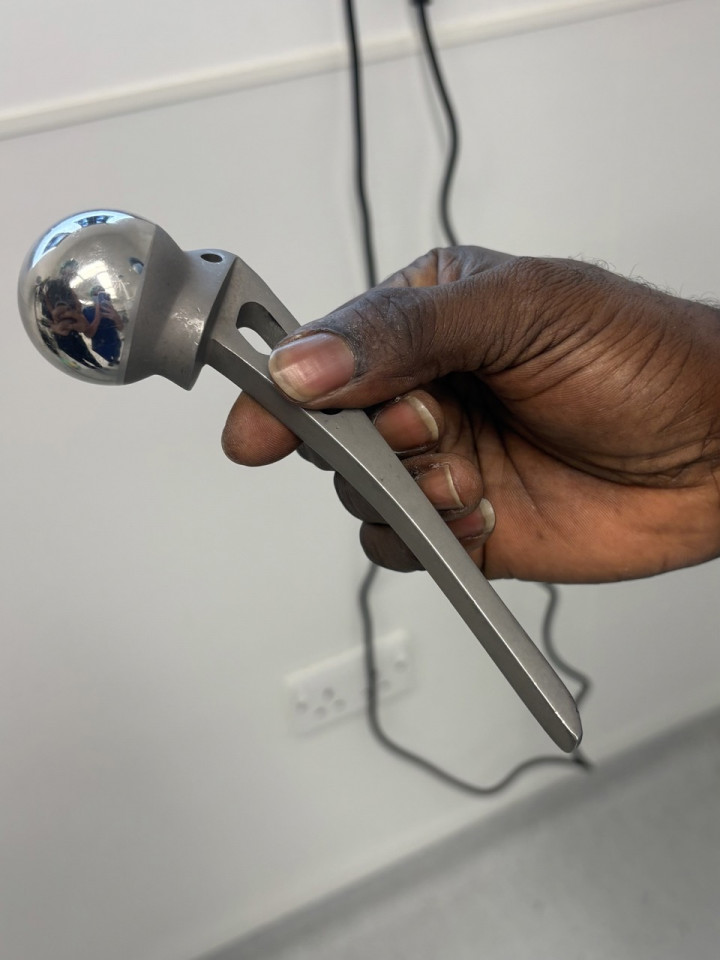
Level 2 Surgery at Ridge!
July 12, 2025
Another day at Level 2 Surgery! Today, I got to see ortho, plastics, and caught about 10 seconds of an eye surgery before walking out of that OR. As my time at Ridge goes on, I’ve been learning a lot about my own preferences, which has been incredibly helpful in figuring out what I like and what I definitely don’t see myself doing. Ortho was fascinating to watch, but seeing the bone, using the saw, and the full exposure of major areas during surgery made me realize that I could not see myself doing that. But I got a full learning experience because the scrub tech, Clifford, and the surgeons were so open to our questions. We learned about Intertrochanteric Fracture and saw the X-ray scan for that. They were going to do DHS surgery, a procedure used to stabilize and fix a fractured hip with an artificial screw.
My favorite part of surgery is definitely closing the wound with sutures. My least favorite parts are when they open it up. That contrast has made me realize I enjoy minimally invasive procedures. For example, today I saw an 11-month-old boy with an extra left big toe. The surgeon removed it with such careful precision and neat suturing, and it was genuinely interesting to watch. Ortho was also fascinating because they used saws and hammers to break the fractured parts and replaced them with an artificial screw. Loud bangs echoed across the OR. Yeah, that was an experience.
That got me thinking more about shadowing specialties like ENT, Plastics, and other surgical subspecialties. I think I’d be more drawn to the reconstructive surgeries. Interventional radiology also seems like a cool option to explore. Overall, I am grateful I get the opportunity to see so many surgeries, and that all the staff at Ridge are open to questions. Learning about the sterile field, listening to them reason through possible complications, and getting the opportunity to ask why they chose medicine has been immensely helpful.
It was honestly a great day. Even realizing what I don’t want to do felt like progress. Without this experience, I would’ve never known. My time at Ridge has been so interesting, and it’s flying by. I’m excited to see what the rest of the days will bring. Everyone else is also rotating through different wards they are interested in, and it has been so fun listening to everyone's day at the end. Every one of us has been exploring our passions, and every day is an opportunity to learn something new. I feel extremely grateful for this week.
-Yunna Kim

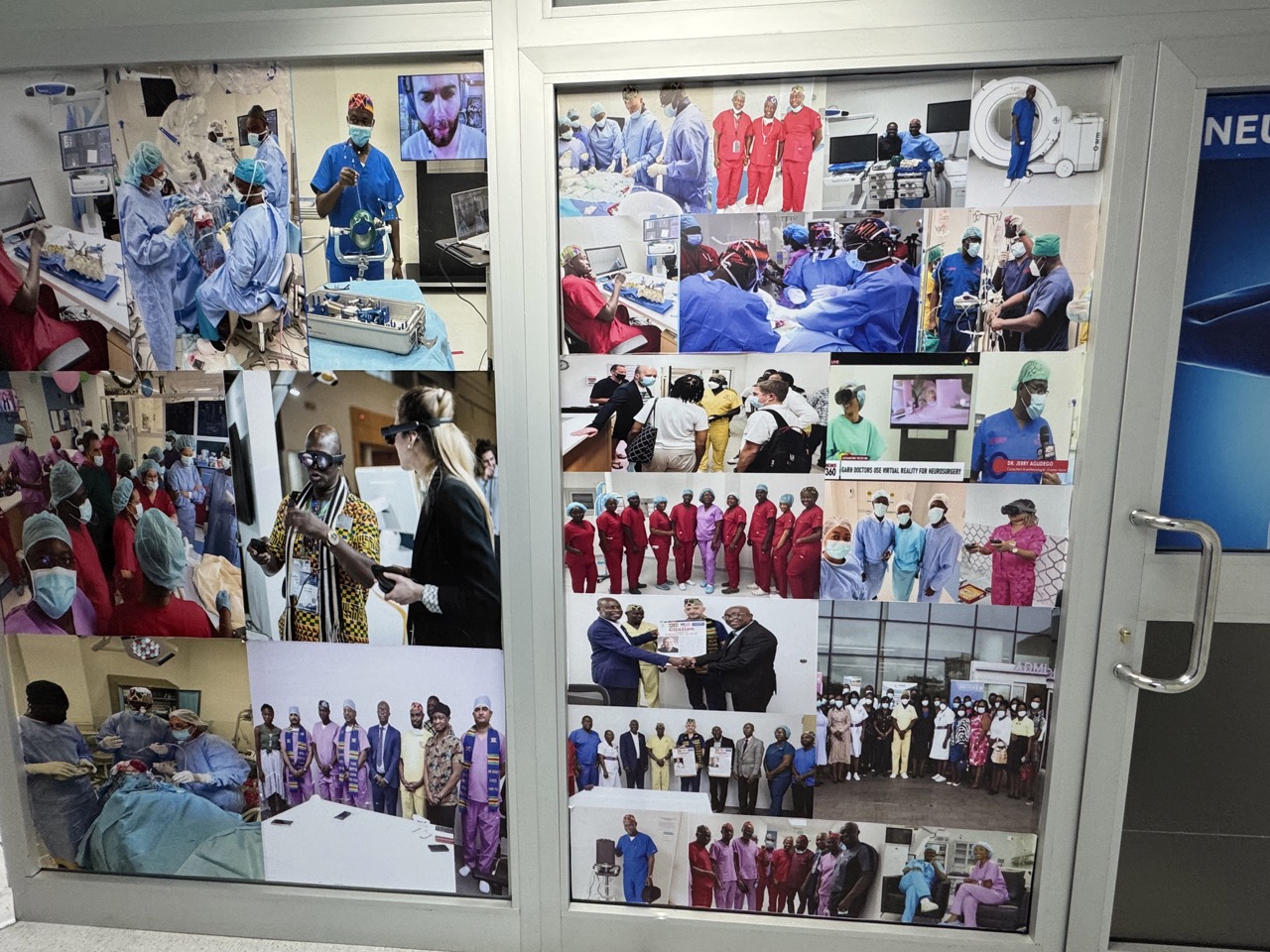


A Day in Physiotherapy…
July 12, 2025
On Friday, Lilly, Mills, and I all shadowed in the physiotherapy department at Ridge Hospital. At UGA, I am a Human Development and Family Science major on the pre-occupational therapy track, so this was the day I was looking forward to the most. We were given a tour of the outpatient department and got to see a few patients being stretched and worked on in the back rooms.
We were then taken to the pediatric physiotherapy department, where we would be split up into three departments: pediatrics, surgical and medical. I decided to shadow the medical department because I wanted to experience working with patients who were specifically recovering from a stroke. I had never shadowed a physical therapist in a hospital setting, so I was pleasantly surprised to discover that I loved it. I also learned that I thoroughly enjoyed making rounds on stroke and post-surgical patients.
One of the patients we saw had recently undergone a hip replacement after already having a full knee replacement the previous year. This patient specifically was not following the exercises the physical therapists showed her, and as a result, was not making much progress in her recovery. This was beneficial for me to observe because I got to experience the conversation doctors have with patients when they do not cooperate with the doctor's orders.
Shadowing the under-physiotherapy reassured me that the concepts and theories I was learning in my classes were used in this profession. I was able to see and use simple concepts like flexion and extension when asking the doctors questions or when speaking to the patients. After returning home from the hospital, I reviewed my old anatomy notes one and two to refresh my understanding of the concepts. Overall, this day made me even more passionate about this career path.
Alexandra Golomb

Observing Surgery in Accra
July 12, 2025
Thursday was my first time seeing surgery in person. We spent the day in the surgical ward at Ridge Hospital in Accra, and it ended up being one of the most memorable and exciting experiences I’ve had so far.
As soon as we arrived, we changed into scrubs and Crocs. We changed for infection control reasons, but it also marked a clear shift into a more serious clinical setting. The energy on the surgery floor was focused and quiet, with a full schedule already in motion.
The cases that day included two hernia repairs, the removal of prostate stones, and a cheek biopsy on a child. I was able to stand close and watch every step of the process, from the prep to the final closure. Nothing was rushed. Everything was deliberate, and it was interesting to see how calm and steady the entire team remained throughout each procedure.
In between surgeries, I had the chance to talk with some of the other students who were observing. I met someone named Nana who I was surprised to learn also went to UGA. She’s currently in medical school here in Ghana. We talked about our different academic paths and what it’s like experiencing healthcare in two different countries.
Overall, it was a very eye-opening experience. I didn’t expect to be able to see so much up close or to learn as much just from watching. Surgery might not be the direction I go in, but being in the room and seeing it all happen gave me a new level of respect for the people who do this every day.
- Lilly Linkous


Shadowing in the Emergency Ward
July 12, 2025
As soon as Yunna and I walked into the emergency ward, we were welcomed with warm smiles and kind words from several nurses. They told us the ward was like a family, and throughout the day, we truly saw what they meant. Jennifer, a student nurse, gave us a quick orientation. She explained the importance of patient privacy, noting that while the curtains separating the beds could be tied back during downtime, they had to be drawn during examinations to maintain confidentiality.
Around 9:00 a.m., the nurses began administering medications. One of the more experienced nurses, Maudy, kindly took Yunna and me under her wing. She explained the steps of medication administration, showed us how to fill syringes, walked us through the process of setting up an IV drip, and taught us how medications are pushed through a line. The nurses and student nurses made an effort to talk to us, and by the end of the day, we felt less like observers and more like part of their team.
It was a noticeable shift from our previous experiences shadowing doctors in radiology and surgery, where the focus was more on observing than participating. Here in the emergency ward, the nurses invited us to be hands-on. We dressed wounds, handed out oral medications, and when the opportunity came to check a few patients’ blood sugar levels, I eagerly volunteered. Having performed over 50 finger pricks during our community nutrition screenings in Cape Coast, I felt confident and excited to apply what I had learned.
One thing that surprised me was how nurse-led the emergency ward really was. There wasn’t a doctor constantly overseeing everything. Instead, the nurses kept things running. When doctors did stop by, it was usually for teaching rounds with medical students, and they were often specialists. One moment that stood out was when a cardiologist came in to examine a patient with decompensated heart failure secondary to dilated cardiomyopathy. We learned that since Ridge is a regional hospital, it doesn’t have a cardiology unit, so those cases are referred to the Korle-Bu Teaching Hospital, Ghana’s national hospital.
Throughout the day, we interacted not only with Ghanaian medical and nursing students, who are studying locally, but also with international medical students from countries like Ireland, Cyprus, and the Netherlands, many of whom are pursuing their medical degrees in the U.K. Their presence added to the sense of collaboration and global connection, and it made me appreciate how open and welcoming the healthcare environment in Ghana is, especially when it comes to learning and teaching.
This day made a deep impression on me, not just as a student but as a daughter. My mom is a nurse, and while I’ve always admired her work, this experience gave me a whole new level of appreciation. Seeing firsthand how much nurses do with their leadership, skill, and compassion reminded me of her and made me realize just how much goes into the job. It was inspiring, humbling, and reaffirmed how essential nurses are in every corner of the healthcare system.
-Emma Jordan


Independent Travel Weekend to the Volta Region of Ghana
July 07, 2025
For our independent travel weekend, Emma, Callie and I ventured to the Volta region of Ghana for a weekend filled with hiking and outdoor adventures. The Volta region is home to stunning mountains, lakes, waterfalls, and more, and our goal was to try to do as much as we could in the short 48 hours we had there.
Our first adventure was Mount Afadjato, Ghana’s highest peak. The hike was a short 45-minutes to the top, but it was wet, slippery, and almost everyone in our group fell at least once due to the rain. During our hike, we met a group from Notre Dame and after talking to them for a while, Callie realized that they shared a mutual friend! While exploring a new place and foreign country the world can seem huge, but it’s always surprising how interconnected we all are. Our view at the top of the mountain was limited because of the fog and rain, but the accomplishment of making it up the mountain made it worth it.
The next stop was Wli waterfalls, conveniently located steps away from our hotel. The Wli Waterfalls are the highest waterfalls in West Africa and was the focal point of our trip. We opted to hike to the upper falls which was a 2 ½ hour hike with a steep incline. Once we made it to the upper falls we were able to get in the water and swim under the waterfall. It was a rewarding and surreal experience getting to cool off and enjoy the incredible view after our strenuous hike. Once we made it back to the bottom, 5 hours had passed, and we were ready to rest up and prepare for our last day of adventures.
Our last day in the Volta region we went to the Tafi Atome Monkey Sanctuary which is home to over 300 Mona monkeys. These monkeys are sacred to the local community and are protected under law. We were able to feed them bananas, and we were surprised to find that they were very kind and gentle, a contrast to the baboons we saw up north at Mole National Park.
Our last adventure was to the Ote Falls Canopy Walk in the small village of Amedzofe, the hike to this view was far less strenuous than our previous hikes, but the view was still incredible and breathtaking.
My time in the Volta region of Ghana was filled with adventures, sights, and experiences that have made my independent travel weekend an experience I’ll never forget.
-Elise Pareizs




A Glimpse of Medical School
July 06, 2025
This week while shadowing at PML Children’s Hospital, Elise and I unintentionally aligned our schedules with some local medical students who were engaging with some learning opportunities at the hospital. It was really interesting to follow along with their adventures and get a taste of what medical school might be like for us one day!
On our first day in the Malnutrition In-Patient department, we got to attend a lecture with the resident dietician about how to treat malnutrition. I was surprised to learn that malnutrition is not always starving and wasting, and can also result from other types of nutrient imbalances. Thus, education efforts must focus on teaching how to eat a well-rounded diet, not just on how to get more food. We also got to learn about some of the different therapeutic options for children recovering from malnutrition, such as F100 formula and a special homemade peanut mixture called RUTF. We felt like part of the class when the teacher asked us for some examples and laughed with us over a few jokes.
During our next day in the Children’s Ward, we witnessed the medical students practice diagnosing a patient. The patient was a young girl that had been born with HIV, and was now facing additional complications as a result. The students practiced some routine check up methods that involved moving the patient around a bit, but after all the motion the girl got a little sick to her stomach and threw up, which was hard to watch. Eventually the clinical coordinator came to listen to the patient history the students had gathered, and she was liberal in her critiques and pointing out all of the potential weaknesses, which was intimidating.
We saw the medical students again at the end of the week during another nutrition demonstration at the out-patient department. By this point the students were a little restless and we saw all of them joke around and laugh during the lesson. It was nice to see them being normal students apart from their intense training.
Overall, seeing the medical training process up close made me realize how daunting it can all be. However, I also felt bolstered in my belief that this is what I want to do with my life, and I am capable of working hard to reach this point and overcome any of the challenges so that I can make a difference for the patients.
- Callie Viktora


A Day in the ER
July 04, 2025
On Tuesday, I shadowed in the emergency room at Princess Marie Louise’s Children’s Hospital. We had walked through it the day before to get to the conference room where we had orientation but had not met the staff yet. Dr. Anderson introduced us to the staff and then went on his way. I was excited to work there because he told us how much the students from previous years learned while working with the doctors there.
It was quite hectic when we first arrived because a few new patients had just been admitted and were getting IVs. There wasn’t much time to talk to the doctor, so we just followed her lead to observe what she was doing. The baby on the table was wailing and squirming, so it was all hands on deck trying to insert the IV. First, they tried the baby’s wrist, then her foot. When neither of those worked, the doctor decided to try a vein in the head because they were much easier to locate. The nurse shaved off a small square of hair, and then the doctor had no trouble locating the vein. She told us how important it is for the blood to be free-flowing in an IV to ensure that the medication makes it into the blood system. After the IV was inserted, the baby calmed down and rested while her mother watched after her. I learned about the active role that parents have in treatment at PML. The nurse explained to the mother what she needed to watch for, and then it was her role to look after her baby while the doctors and nurses helped another patient.
After the baby received her IV, she needed breathing assistance to be stabilized. One of the nurses kept asking for the water bottle which I learned was the improvised CPAP machine. She had constructed it from just the water bottle and a tube. Something as simple as a water bottle can be turned into a life-saving measure. In less than five minutes it was made and allowed the patient to rest. It was very cool to see how basic resources can be used to provide the necessary treatment to patients at the moment.
By the end of the day in the ER, I had seen four babies get IVs and two CPAP machines being used. Within the chaos, the doctors and nurses remained level-headed and attended to every patient with care. They worked very efficiently with little verbal communication. They were a team, and I saw how every single role is essential for the ER to run smoothly.
Mills Crosland

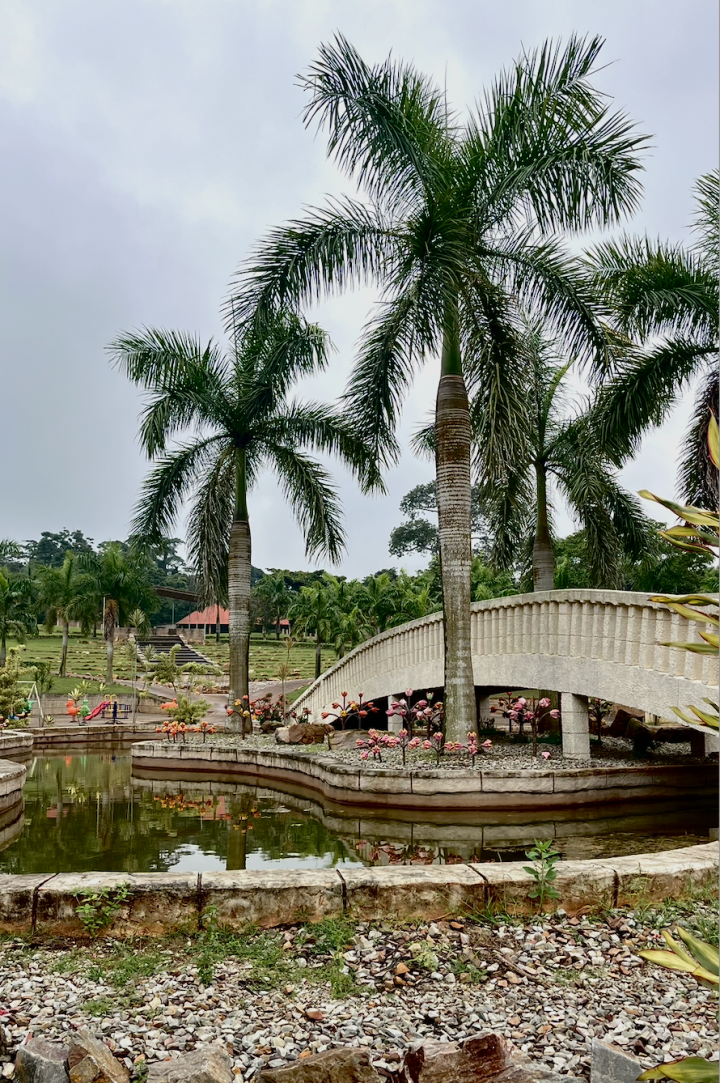
A Holiday in Ghana
July 04, 2025
Today was the July 4th holiday, and we had the day off in Ghana after a long week working at PML Children’s Hospital. It was nice to have a break and take some time to explore the area a bit more.
We started the morning at Papaye Recreational Village, which only opens on weekends and holidays. We got there a little too early and things were still getting set up, but they let us walk around anyway. The park was quiet, and we had space to explore before the crowds came in. My favorite part was the bridge and water area. It was simple but really pretty.
Once things opened up, we played a few carnival games—ring toss, spin the wheel, ball toss, and others. We each tried two games and a couple of us won small prizes. Nothing major, but it was fun to do something light after the hospital pace.
Next we stopped by a small zoo nearby. It wasn’t huge but it had a mix of animals: donkeys, birds, monkeys, bush cats, snakes, tortoises, and some loud peacocks.
Next, we went to Tetteh Quarshie’s Cocoa Farm, the first cocoa farm in Ghana, founded in 1879. We walked around the farm, got a short tour, and even got to see a cocoa pod harvested. When we opened it, we tried the fresh seeds. They don’t taste like chocolate at all. They’re more like mango or something tropical. You don’t chew them. Instead, you just suck on them. We also got to try the dried version, which had a bitter, dark chocolate taste.
Seeing the whole process of cocoa production was really interesting, especially knowing that Ghana is one of the top producers globally.
Overall, it was a slower morning, but a good one. It was nice to just walk around, play a few games, and see something different.
Lilly Linkous



Inside the Operating Room
July 03, 2025
On Wednesday, Yunna and I had the opportunity to shadow pediatric surgeons for the day, and it was such an eye-opening experience. There were six patients scheduled, although one didn’t show up. Interestingly, three of the surgeries were umbilical hernia repairs. I was honestly surprised by how quick those procedures were, ranging from just 30 minutes to about an hour.
The surgeon we shadowed was incredibly knowledgeable and welcoming. He explained how he distinguishes the herniated tissue from surrounding skin by noting the color and depth of the bulge. One interesting technique he used was placing all the sutures before tying them off, which he said gives him better visibility and control over the repair. It was great to see the subtle decisions he made depending on the case. For example, in one case, he used heat to stop leakage from the fascia, but for another patient, whose hernia was smaller, he opted for scissors to cut the weakened fascia. The scissors, unfortunately, weren’t as sharp as he’d hoped, so that made things a bit trickier.
Even though the procedures were relatively quick, I learned a lot about the surgical process and what the flow of a day in the OR feels like. This was such a great introduction to surgery, and now I’m even more excited to (hopefully) observe some longer, more involved procedures at Ridge Hospital next week!
-Emma Jordan

Aburi Crafts Village: The Art of Bargaining
July 03, 2025
After our third day of shadowing at Princess Marie Louis Children’s Hospital, we decided to stop at a crafts market we had passed the past several days on the way home. Mills, Lilly and I have yet to go to a market, let alone buy anything, so we were a little nervous. Callie, Elise, Yunna and Emma had been to a market, so they were preparing us in the car on what to expect for when we arrived. When we first got out, it seemed like there were seven or so booths, but when you entered the actual village, there were long hallways of endless merchants.
Once we began walking around, the sellers immediately approached us, trying to persuade us to enter their shops. At first, I felt bad about saying we were just looking, but I quickly realized that this was the norm and not something they took offense to. In the first shop we went into, I saw a painting that I liked. The man said he would sell it for 170 Cedis, but I thought it was too small for that price. I was able to get him to accept 50 Cedis, and I was happy with that, so I bought it. Callie saw a Manduka set she liked for her Dad, and after watching me bargain, she asked me to help. The lady wasn’t willing to go for the price I wanted, so we told her we would think about it and moved on to the next shop. Luckily enough, there was an even better Manduka set, and the man selling it was willing to give us the price we wanted, so we bought it. This was a theme I picked up on, that if one shop did not give you the price you wanted, another shop was most likely selling the same thing, giving you another opportunity to get the price you wanted.
We finished looking through the remaining shops, and I found items for both my mom and dad, both of which I was able to bargain for at a reasonable price. You could tell that these trinkets, jewelry and souvenirs were handmade and authentic, making each item even more valuable to us. Overall, I feel I was successful, but I also think I can improve next time we visit a market.
Alexandra Golomb
First Day Shadowing at PML!
July 02, 2025
After hospital orientation, Emma and I chose to go to the ward for patients over six months, and boy, did we make the best decision. At first, we were both kind of awkward and drifting around. However, we both knew we had to make the most of the opportunity and take the initiative. We asked Nurse Hannah about rounds, and she informed us that the doctors usually do a conference in the morning and then come down to the wards for rounds. So Emma and I patiently waited. We also tried to just get a feel of the ward and walked around, hoping to hear some of the medical conversations between nurses and dietitians. We were fortunate to have delightful nurses who invited us into their circle, and so we observed their thinking process. They were narrowing down possible diagnoses and correcting each other while remembering certain conditions. I learned that UTIs don’t have to be painful for them to be UTIs. Noted!
Then, Dr. Mario arrived. After an extensive review of his notes, he started to go around the hospital wards and talk to the children. We rounded on around 11 different patients. I believe my experience was truly enriched by Dr. Mario. He was a younger doctor who had recently graduated, and he asked if we were medical students. I said no, but it was heartwarming yet funny to watch him struggle to explain things in simple terms for us. The way he kept bringing in medical terminology and then breaking it down actually helped reinforce the concepts in my mind. I was just so excited this whole time because this was my first time shadowing a physician ever. He carried around a journal with all their info he had done pre-round, and he definitely was a doctor because his handwriting was wild in the best way.
His gentleness towards the patients was also something I learned. He spoke softly to the children and murmured sorry after the children’s examinations. He asked question after question to the guardians there, making sure to grasp the full context of the child's situation. There was a child and his mother who spoke neither Twi nor English, so he did his best to communicate with his hands and tried to convey the examinations to his mother as well. We saw children recovering from seizures, jaundice, HIV, TB, and pneumonia. Afterwards, he input all his observations into the computer charting system. He was very sweet and super supportive. He would talk with the patients, then explain their situation to us and answer our questions. I got to observe all the physical examinations he does, such as listening to their hearts, lungs, eyes, and for babies, he also checks the back of their feet for their reflexes. Hearing all the conversations today made me want to go and learn more and more about medicine. Being able to shadow and see patients and see how Dr. Mario interacted with them truly emphasized the social aspects of medicine, and I learned a lot from his attentive and gentle manner towards children and their guardians. Another thing that he emphasized was that he would further discuss with other colleagues and mentors. Teamwork and collaboration truly seemed to strengthen the quality of healthcare and patient outcomes. I am excited about what the future days will bring me. I hope to observe the Malnutrition, Surgery, and Emergency Medicine departments!
- Yunna Kim
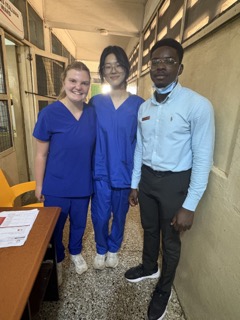
Community Screenings in the Central Region of Ghana
June 29, 2025
Sunday, June 29th we left our house in Mampong to go to Cape Coast where we conducted our community health screenings. Upon arrival at Cape Coast, we met Roberta, our community partner, and her daughter Stephanie, who just graduated from medical school at the University of Cape Coast. Roberta is very familiar with the Cape Coast area, so prior to our arrival in Ghana she chose five communities in the area to conduct our health screenings. She had personal ties and connections with most of the communities we visited which made each community visit special to her and us.
In the community of Efutu, we had the pleasure of meeting the Queen Mother, who is like a mother to Roberta. In Ghanaian communities, the Queen Mother acts as the advisor to the Chief of the community and plays a significant role in the community. In her case, because the Efutu Chief had passed, the Queen Mother acts as head Chief of the community. She welcomed us with water, and we presented her with liquor for the libation (pouring of alcohol accompanied by a prayer as an offering to the spirits.) The Queen Mother wore a beautiful patterned Kente dress complimented by stunning gold Jewelry, and she personally welcomed us to the community and thanked us for coming. She even came to our health screenings to be screened!
Our setup for our screenings consisted of anthropometric measurements (height, weight, BMI), blood pressure, hemoglobin, blood glucose, and cholesterol. The final station was where Dr. Anderson analyzes the results and gives nutritional recommendations, physical activity recommendations, and health advice. I enjoyed learning different things at every station: how to prick calloused fingers, how to take blood pressure, and how to identify conditions that may be indicated by the readings (hypertension, type 2 diabetes.) I also took the time to learn and practice some Twi! Maakye and Ɛte Sԑn: good morning and how are you, were my go-to greetings. The community screenings exposed me to the variety of traditions in the Cape Coast communities and increased my passion and enthusiasm for health and wellness.
-Elise Pareizs



Church in Mampong, Ghana
June 29, 2025
This morning, our group attended Ascension Methodist Church in Mampong, Ghana. We woke up at 7:30, had breakfast at 8:00, and arrived at the church around 9:00. Upon our arrival, the locals greeted us with smiling faces and waves. The church wasn’t too crowded, but still had enough people to fill the service.
The service began at 9:30, with the choir dancing down the aisles and circling the pews while singing beautiful hymns. We later found out, during the service, that this day was the anniversary of the choir, making today even more special. Towards the end, the choir made their way upstairs, and people started to dance in the middle aisle. There was what almost looked like a conga line in the front, and a few ladies playing cowbells to the beat of the song. One lady pointed to us and pulled us towards the front, where we danced with the locals. This was cool because they were happy to include us in their worship.
After this, the pastor spoke a few words and then introduced us to the community. He asked us to come to the front, introduce ourselves, state our hometowns, and explain why we were in Ghana. From the looks of the people in the crowd, they were happy to have us there with them.
We took our seats and let the service continue. This Sunday, the theme was single-mindedness, so the pastor spoke on this and related it to various verses from the bible. Some parts were in Twi and some parts were in English, which I appreciated. We were able to understand parts of the service and also experienced how Ghanaian church services can differ from those we had attended in the States. A little towards the end of the service, the tithe was started, allowing people to come up and donate money to the church. After this, there was a second opportunity to donate money to the church, but this time it was specifically for donations to the choir so they could get new equipment.
Next, Dr. Anderson was invited to speak about raising some money for the church. After this, the pastor talked a little more, and then it was over. When the service finished, we made our way to the back of the church and met Dr. Anderson’s aunt, who kindly brought us drinks and cookies. Overall, this service was an experience that taught us a lot about Ghanaian culture. Even though it was three and a half hours, we all enjoyed every second of it.
Alexandra Golomb


Restaurant Dining in Ghana
June 29, 2025
After long days of tourism and community work, one of the things we all look forward to the most is dinner. This week, since we weren’t at home base, we got to eat out and experience restaurants more.
Off the bat, restaurants are a lot harder to find in Ghana. Sit down restaurants aren’t as popular, and those that do exist are often tucked away in hotels and residential areas. Once you do find a restaurant, you quickly realize that most don’t embody the bustling nature of American restaurants. In America, you can pretty much always rely on some other customers, even if you are eating in an off hour. Here, we have been pretty much the only diners at any of the restaurants we have visited, so there is a weird emptiness compared to American restaurants.
Also, the restaurants lack the abundance of American restaurants. We receive menus at every location, but shortly after the waiter will tell you what is actually available, which is usually less than half of what the menu says. Then, you must wait for your food to be prepared from scratch, which takes much longer.
Despite the wait, Ghanaian restaurants have not disappointed in the quality of food. Everything has more of a homemade touch, which is a step up from most American restaurants. Additionally, the large gaps of time encourage us to slow down and enjoy each other’s company more. I think that the overall restaurant experience reflects the ways in which Ghanaian culture provides a nice break from the fast paced and sometimes impersonal American culture.
Callie Viktora
Work and Play
June 29, 2025
On Thursday after our fourth day of community screenings, Stephanie told us that she would take us for a game night to have some fun after the hard work this week. We started off at Hutchland’s on the water. This was a second location of the restaurant that we ate at on Monday of our first night in Cape Coast. I loved getting to sit by the water and enjoy some good food with good people, recounting stories from the week or what we have planned for the rest of the trip.
Looking out over the water, we couldn’t resist sticking our feet in after dinner, so we took off our shoes and walked down. The sand was much deeper than I had expected, giving way a couple inches with each step. The water was so nice, and after our feet were wet and sandy. I had worn running shoes so I had to wait for my feet to dry off before putting my shoes back on. I was hoping that the sand would brush off once it was dry, but I had to use the pitcher of water at the table meant for handwashing to fully get the sand off of my feet.
After dinner, our community leader for the week, Roberta left to have a meeting with the chiefs of the community that we would be visiting the next day. We dropped off Dr. Anderson at the hotel then went to Lush—a seaside hangout—as a group led by Stephanie. We enjoyed some drinks and getting to know each other better before heading to the game night that Stephanie would take us to.
At the game night we played a board game very similar to Sorry! I realized. The goal was to roll the dice and be the first to get all your pieces around the board. Every time that I got a piece on the board, one of the other people would knock it off. Sad to say, I think I came in last place. Then we played UNO with some of Stephanie’s friends. They follow some different rules than how I have always played which made for faster gameplay, so we played many rounds. I loved getting to play some games and hangout at the end of the week, and look forward to the many more fun activities that we will have here in Ghana.
Mills Crosland

Being Welcomed + Book Discussions!
June 25, 2025
Today, we were introduced to the Queen Mother, and all the other Chiefs and members of the community welcomed us warmly. It has been an unforgettable experience to greet them and other community leaders in each of the towns we visit. Their differences in greetings and their variations in welcoming have been a warm and touching experience. We concluded the ceremony with the sprinkling of traditional alcohol onto the floor. One of the Chiefs offered a prayer, asking God and the ancestors to bless us, inviting the good spirits to take the alcohol, and the bad spirits to take it and leave.
My favorite part of the day was the book discussion. Emma led today’s session, and we explored topics like faith, science, and addiction. It was a truly engaging conversation. Roberta—our bridge to the local communities—and her daughter, Stephanie, have been joining us daily, and their presence and backgrounds continue to enrich our experiences in Cape Coast. We are all so thankful they are with us.
Emma's thoughtful questions sparked meaningful discussion. Sharing our ideas, listening to one another, and finding ways to relate to each other made for a powerful end to our dinner. When we talked about addiction, I realized how quickly we can label someone as an “addict” without asking how to support them or understanding how they got to that point. Stephanie also shared how Ghana is currently facing major substance abuse challenges. Even cough syrup has been misused to the point that a prescription is now required to purchase it at a pharmacy. As we further discussed, I found myself learning more about healthcare, policy, and culture. This truly felt like learning outside of the classroom.
Tonight’s discussion got me thinking about empathy, support, and community. Within a flawed system, just hearing someone’s story and being there for them can make a world of difference. What does it mean to understand someone? How can our beliefs be questioned? How can we support one another and create a space for conversation about mental health? When our community and loved ones seem to define our paths for us, how do we navigate an environment of shame and judgment? These topics bubbled around us and I believe have left a mark on each of us as we ended the night.
-Yunna Kim
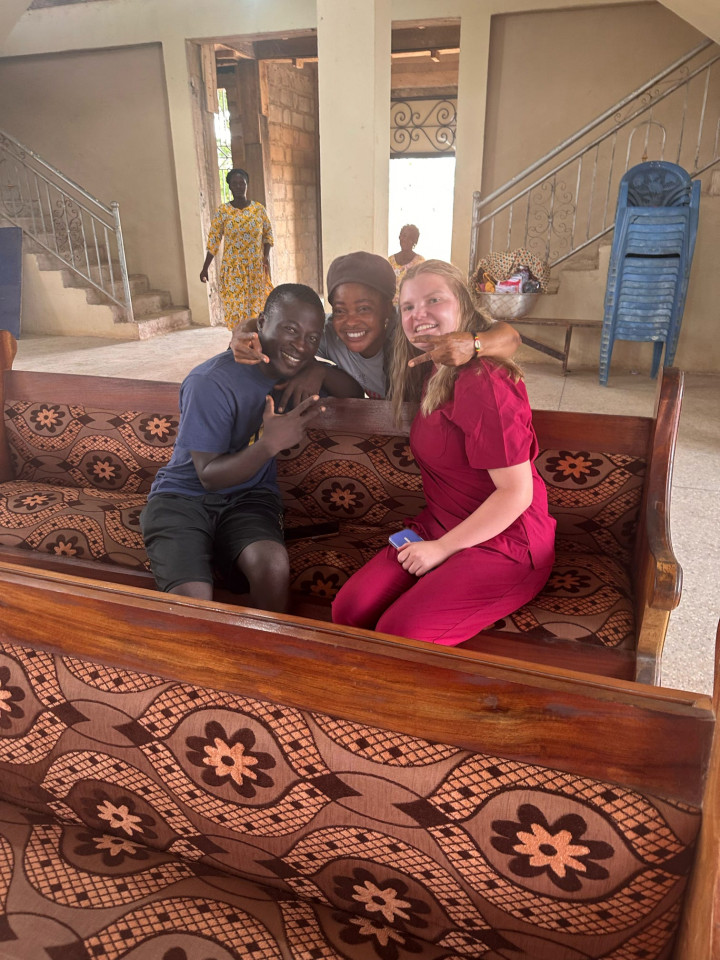
Ghanaian Boyfriend?
June 25, 2025
A woman came up to me and said that some guy sitting in the back pew liked me. Naturally, I was curious—so I went to talk to him. His name is James Flynn, and he's 30. He started off by calling me an exceptional and beautiful woman—which, I won’t lie, was flattering.
We chatted for a while about a bunch of things—schooling differences, how I’ve been enjoying Ghana so far, and his family. He told me about his younger brother, who's trying to get a U.S. visa to pursue his master’s degree, but the process has been nearly impossible. He’s especially worried about Trump’s new country ban and the tariffs. I told him I didn’t vote for Trump, and he immediately asked, “So you voted for Kamala?” I was kind of surprised he knew so much about the election, but honestly, I was impressed that he was invested in international politics.
When his friends and family found out I was only twenty, they all burst out cheering—so I guess big age gaps aren’t judged here the same way they sometimes are in the U.S. Then they all started (playfully, I think?) teasing us about getting married. His friends and family were taking photos of us, and even some of my own friends joined in. We definitely attracted a few stares and curious glances. At one point, his boss—who’s also the chief’s linguist—straight up asked, “Are you his wife now?” right in front of him! I just laughed it off, but in my head I was like, if my boss said something like that to me at work, I’d probably quit.
Anyway, I genuinely enjoyed getting to know James. We exchanged numbers, and let’s just say some of his texts have been pretty flirtatious. Still, I don’t see it turning into anything serious. I’m only here for another month, and long-distance doesn’t exactly sound appealing. Plus, realistically, I’d be the one buying the plane tickets because it’s way easier for me to get a visa to Ghana than it is for him to get one to the U.S. Maybe in four years, who knows?
Also, I’m pretty sure I’m bisexual, and with Ghana recently passing an anti-LGBTQ bill (still waiting on the president’s signature, but still), talking about that part of myself here feels uncomfortable. And if I were ever going to be in a relationship, I’d want to be open about who I am—no secrets, because communication really is key.
All in all, it was a sweet and unexpected moment, and I’m glad I met him. But it was also a good reminder to be mindful about how I interact with people. Being nice shouldn't be mistaken for being interested—and I need to be more aware of that going forward.
Mom and Dad, if you are reading this, just know that I am having fun and I won’t be coming home with a boyfriend.

Above the Trees: An Afternoon at Kakum National Forest
June 24, 2025
Today, after our work in the community, we got to visit Kakum National Forest and participate in the canopy tour. This was a great afternoon activity following a morning of medical work, and it offered a completely different kind of adventure.
When we arrived at Kakum, we began with a short tour of the forest’s museum. We learned all about the history of the area and the efforts made to preserve this ecosystem. It was very interesting to see how the canopy walkways were designed and constructed.
The museum also displayed photographs of the wide variety of animals that live in the forest, including monkeys, birds, and forest elephants. We even saw an actual elephant skull on display, along with skins and bones from other native wildlife. One of the most impactful parts of the museum was its emphasis on the relationship between the local people and the forest, and the ecological importance of preserving this space.
After the museum, we parted ways with Dr. Anderson and began our steep climb up into the canopy level of the forest. The hike took about ten minutes and definitely got our blood pumping. Once we reached the first platform, we could see the canopy bridge stretched ahead of us, suspended 50 meters in the air. I’ll admit, I was a little nervous to step onto it at first. The bridge gently swayed as we walked, but after crossing the first one, my nerves quickly faded. I started to feel much more secure, and the breathtaking 360-degree views pulled my focus away from how high up we were.
Our entire group completed all seven bridges together, cheering each other on along the way. It was a great experience overall, and the perfect activity to help our group bond even more. The tour guides were incredibly knowledgeable about the forest, and we all learned so much about area.
Our trip to Kakum National Forest was unforgettable. It was a perfect balance of adventure, education, and group bonding. I know this experience will be one we will not forget.
- Lilly Linkous



A Trip to Safari Valley Resort
June 22, 2025
Lilly and I finally made it to Ghana on Thursday night. I was exhausted from the flights and was thankful that we would have some time to rest on the weekend before the hard work started. The rest of the group was excited for this as well as they had had a very busy 10 days in Ghana already. On Saturday, we took off on the bumpy road to Safari Valley Resort. While Dr. Anderson checked us in at the resort, we relaxed in the lobby and enjoyed fresh watermelon and pineapple juice. A driver pulled up in a cart and said she would be taking us first two three different safari areas, and then we would have time to chill and partake in activities at the recreational center. First was the avian section where we saw many different birds such as the African spoonbill and black chicken. All the chicken’s pigmentation is black including its eyes, bones, feathers. The guide told us that the chicken tastes much better than regular chicken and is a delicacy.
At the next area, we took turns feeding the zebras. They were eager to get a snack when they saw us walk into the pen and mossed on over. There was one zebra that was standing by itself in the shade, completely still except for its tail blowing in the wind. This was quite the odd site to see but then guide informed us that zebras sleep standing up with their eyes open. The zebra was more tired than hungry that afternoon, I guess. In the last section, we got to feed some emus who devoured the entire bowl of feed.
At the recreation center, we had an archery competition, golf competition, rode bikes, played tennis, Uno, and rode horses (shoutout Splash and George). We worked up quite the appetite, and lunch could not come soon enough. At the restaurant on ground, we loaded up our plates with everything there was to try. I always like the rice, and I had some chicken that was very flavorful and good. All the food here is packed with spices. The combination of the food and lull of rain outside made all of us very sleepy. After a day well spent at Safari Valley Resort, we decided it was time to head back and get some work done before settling for the night.
Mills Crosland

Sunset Walks with New Friends
June 22, 2025
At the end of a fun day at the Safari Resort, our group set out for an evening walk—a daily tradition I have gotten to experience for the first time. These walks are a great way to bond as a group, unwind, and engage with the local community around us.
As we stepped outside, a few boys around age 11 were already waiting with eager smiles, ready to walk and play. Emma came prepared with about colorful beads around her neck, ready to hand out to the kids. As this is only my second day in Ghana, this my first time meeting the kids in the community. Being just my second day in Ghana, this was my first time meeting the local children, while the rest of the group was already familiar with many of their faces.
We started down the street with just a few kids, but with each step, our little group grew. There was laughter and smiles from every direction. Children popped out of houses, ran across streets, and waved from doorways. Some just ran to give us a quick hug before darting away with laughter.
I made a couple of friends during this walk. I learned their names, age, and what they wanted to be when they grew up. The conversations were simple, but meaningful. We even got to participate in a little soccer game, kicking the ball back and forth, as the sun was setting.
Next week we will be traveling in a different region, but I am excited to continue to take walks around the community to see my new friends again and make new ones.
- Lilly Linkous
University of Ghana and Screening Prep!
June 20, 2025
Today was the first day with our 2 new peers! After some visa issues, they finally arrived, and we were all excited to share our first breakfast. Afterwards, we went to listen to presentations at the University of Ghana. It made me realize how many people all around the world were working to research and combat disease and address humanitarian issues. There were so many brilliant people speaking, and the audience made very sharp points about the presentation; I was amazed at the students and professors for their critical thinking and problem-solving. Sharing opinions, further inquiring about their research, prodding each other in ways to see new possibilities, and critiquing for growth. That is what I witnessed today at the conference. I realized that science and innovation do not happen overnight, but with collaborations and conversing with peers. Questions are what open new paths; questions are the key to the future. With the upcoming new semester, I made a mental note to be the student who asks the questions.
Afterwards, we were gifted meat pies, and the only ones who ate them super rapidly were those of us who had been here for 10 days. We walk around a lot in Ghana, so I believe all of us have worked up quite a good appetite. I cannot believe we have been here for that long already. Every day packs an exciting punch. Time goes slow but also fast somehow.
We also practiced taking blood pressure measurements and obtaining a reading for blood hemoglobin levels. Pricking each other was kind of scary at first, but practice makes perfect. Shout-outs to Callie for being my partner and doing an amazing job. I know we all felt better after going over the steps and talking aloud to one another. With community screenings coming up, I am excited to get to the service-learning part of the study abroad. I hope to give it my all, and I know all of us are going in with enthusiasm and support for one another. We are all excited to get involved with the community, and I know that is when we will truly start to see things in a new light.
-Yunna Kim


Water Fallin’ for Ghana
June 19, 2025
This Thursday, we didn’t have anything scheduled, so Dr. Anderson told us we could use the day to rest. But after a slow morning, we all felt like getting out and doing something. We had heard about a waterfall not too far from where we were staying, and that was enough to spark our curiosity. Around 3 p.m., we decided to go check it out and started making our way down the mountain.
The trail was rocky and uneven, and at times it was hard to tell exactly where it was leading. We walked through tall grass and dense forest, which made it feel like we were really in the middle of nature. Along the way, we had to cross a few small streams. On one of the crossings, a rock betrayed me, and I slipped and ended up in the water. It reminded me of something similar that happened at Mole National Park, only that time it was a muddy stream. So now I guess I have a bit of a streak going.
What stood out to me the most was how quiet and untouched everything felt. Back home in Georgia, trails are usually more familiar and filled with other people. But here, it was just the seven of us, and there was something peaceful about that. When we reached the waterfall, it wasn’t very big and the water wasn’t clear, but we didn’t mind. Just getting there felt rewarding. We sat on the rocks for a while, took in the view, and enjoyed the moment.
It also gave us some time to talk with Kojo, who is staying in the house with us. He shared some ideas for other things we could do together, like going to the beach, ziplining, or even visiting a nightclub. It was nice to think about all the experiences still ahead, and I have a feeling there will be more days like this to write about soon.
- Emma Jordan





Running in Ghana
June 18, 2025
Running has been a huge part of who I am throughout high school and college, and staying on top of my training was one of my biggest concerns when coming to Ghana. I knew that the experiences I would be gaining here would far outweigh any gaps in my training, but at the same time I also knew that it would take some flexibility on my part to adapt to the ways in which my running might look different.
On our first full day, we were all bolstered with the adrenaline of being in a new place, and I was happy to find that my peers were all interested in running and exploring the surrounding villages on foot. We set out on a run, but we were not prepared for the hills and intense heat… my times and mileage looked nothing like they should, and it was hard not to be frustrated with myself. However, it was also hard to be upset when seeing so many new things. Our town is so accessible, and we were able to wander down dirt roads and through bustling village scenes, soaking in all of the new sights, and even finding a beautiful mountain overlook. I was prepared to give myself some grace for not running as much the first week considering all of the new things we were seeing, but I was still hoping to resume training the next week.
This week has been full of much exciting travel, which means lot of incredible things to see but also many hours of sitting in the car and no good times to run. It is easy for us to be exhausted, but we were all ready to try to run again today, and this time I was mentally prepared for the hills and the heat. However, as we ran I began to think about how different it is to run here. In Georgia, it is easy for me to find a good reliable trail where lots of other people run. When I encounter someone I may give a brief close-mouthed smile and wave, but it is generally accepted that you don’t have to greet everyone you see. Here, a big smile and a “how are you?” Is mandatory. Everyone I pass says hello, the children cheer us on with laughs, and mothers doing household tasks shout from their doorsteps. Life here is largely outdoors, and it is beautiful to be able to sense this vibrancy even through just a walk; this is something you can’t experience in the States. There are no other runners, and everyone can tell that we are outsiders, but this does not stop everyone from being kind and welcoming, and from accepting us and our quirky tendencies.
I am still working on being flexible and realizing that meeting my training goals may not always be feasible here. However, I am already learning that sometimes it is more rewarding to go at a slower pace and enjoy the people around you, whether it be your classmates running alongside you or the people around you graciously inviting you in to their home… even in the intense humidity and heat, and up the steep hills and rocky terrain. Even if my running remains stagnant for the next few weeks, I know that building this adaptability is something that will help me in the future, and that I will look back fondly on getting to experience this community at a slower pace.
Callie Viktora
A Visit to Mole National Park
June 18, 2025
On Saturday, June 14th, we began our journey to Mole National Park, located in the Northern region of Ghana. We left the house in Mampong at around 4:30am and started our 14-hour drive up north. The first 4 hours of our drive consisted of lots of well-needed rest in the van. The middle 6 hours were filled with card games and road trip games to pass the time. Finally, the last 4 hours of our drive consisted of torrential rain. The rain continued pouring down hard until we made it to Mole National Park, creating a nerve wracking and memorable ride there.
The next morning it was time for our long-awaited safari. We all opted for the walking safari because the weather was perfect, and we felt like we would see more on foot vs in a truck. Before we even started our safari, we saw our first elephant. Our tour guide told us that his name was Nash. It was surreal seeing an elephant in the wild and not in captivity at a zoo. They are larger than life and have a powerful and commanding presence. Our wonderful tour guide for the safari was very knowledgeable about the wildlife at the park and gave us many facts about the elephants.
The elephants at Mole National Park are African bush elephants, also known as African savanna elephants. The elephants that approach the area humans explore will always be male elephants because the females won’t bring their young anywhere near a potentially harmful area. Bush elephants use their left tusk for feeding and their right tusk for fighting, and they are never aggressive towards humans unless they are injured or with their young. It was incredible watching Nash casually tear whole branches off trees with his trunk and watching him move freely around the park.
The tour began with us following Nash down the road, keeping a respectful distance from him. In the distance, we saw another elephant, and Nash parted ways with us to approach it, so we continued our safari without him. Next, we walked near a group of baboons hanging out in the road and were warned to keep our distance and keep walking. Our tour guide informed us that baboons don’t typically attack humans unless provoked, but he didn’t want to take any risks. We then walked off the main road onto a trail that was still muddy from the rain the night before, and we saw a variety of birds, antelopes, a warthog, and a waterbuck. The sound of the wide variety of wildlife in the park, and the sight of all the trees in the distance were so amazing to see and hear, which made our safari tour a surreal experience.
After our safari tour at Mole national park, Emma, Yunna, Callie and I enjoyed some fun in the pool. Most of us had not been in a swimming pool since last summer, so it was amazing to be able to share some fun and refreshing moments in the swimming pool alongside a breathtaking view of the national park. Mole national park was an unforgettable experience of sights, sounds, and memories I will forever cherish.
- Elise Pareizs




The University of Ghana
June 15, 2025
On Friday, June 13th we visited the University of Ghana, where Dr. Anderson studied. We had all been sleeping on the drive over, still getting over our jetlag, and we stumbled out of the car and into one of the teaching buildings for a brief lecture from Professor Kodjo Senah. We were all quickly woken up by Professor Kodjo Senah's engaging lesson on the sociology and history of healthcare in Ghana. One of the parts that stood out the most to me was the reminder that medicine is largely a human act, and it is important to consider the cultural contexts of the patient when making decisions. This is particularly important here, because there is tension as tradition meets new medical practices. It was also interesting to hear about how Ghana's health scene is especially unique as they must face both the old tropical diseases and the new lifestyle diseases from an urbanizing population.
On our way out, Dr. Anderson wanted to show us his old department, the nutrition building. As we walked the short 100 meters across the road, we were stopped by many University staff, and Dr. Anderson had a good laugh and talk with each of them... classmates from his school days, family friends, and even his old teachers. The building itself was lively with students attending lectures and performing experiments, and I was surprised by how similar it felt to university back home, but also by how different. I come from a small-town in Georgia, and I was reminded strongly of my own community, where the close-knit nature makes everyone family. The sad part about my town is that we have begun to lose this interpersonal bond as we have slowly begun to urbanize, but here, even in a university as big as UGA, they have somehow managed to maintain these important relationships.
Dr. Anderson showed us a department directory on our way out, and he pointed out all of those that he knew. Most of them had studied outside of Ghana, some even at UGA, and yet all of them had come back here, to their old home. When I asked Dr. Anderson why this was, he simply explained that Ghanaians love their people and want to serve each other well. I had to wipe a tear from my eye and put on my sunglasses as I mulled this over. I know how valuable it is to have such a close-knit community, but I also know how hard it is to keep that community together as everyone goes off to pursue their own dreams. It is so beautiful to see that here, people do not leave behind the ones they love. As Professor Kodjo Senah explained in his lecture, Ghana has many obstacles to overcome as its population continues to change, but as I saw from my brief interactions from the university, I know that Ghana is in good hands: those of her own people. I am grateful that we students have been invited into these bonds, and that we have even begun to form some of our own as we travel together.
- Callie Viktora
Stepping into Accra
June 14, 2025
When I first got off the airport and entered the van, my eyes were immediately glued to the window. One of the first things I noticed was the amount of head porters on the roads. They sold all kinds of items from food, to bottled waters, to cable cords, all while carrying them around on their heads. Their balance and seeing them weave through cars alongside the road was impressive. Something I also noted was the number of motorcycles and minivans. Compared to the U.S, there were more varied modes of transportation on the road. I later observed that minivans would be used to pick up children and transport them to school. It was lovely seeing the children in their school uniforms and we had the chance to wave and exchange greetings with them.
Our first meal of the day was at a local restaurant. Dr. Anderson treated us to dinner and thinking of the recommendation made by Dr. Anderson’s friend, I had red red. Red red is a traditional stew made with peas which serve as a protein source, and mine also had beef in it. The fried plantains were so sweet, and the beef stew tasted nutty and rich with a slight kick. I heard that Ghanaian cuisine had lots of spices and heat, so I am very excited to taste all the cuisines.
We then headed to our new home. Accra has many rolling hills, and as we drove further up throughout the mountain, I could hear my ears pop from the change in altitude. It was beautiful to see the distant cities and how the fog covered the mountains just along the road. The view was very scenic. Upon arrival, the road to the home was steep with our hands full of luggage, but we had help from the sweetest children who became our new neighbors. We entered the most beautiful house, and the view spoke for itself.
- Yunna Kim


The Web of Unity
June 14, 2025
The National Museum of Ghana offered a powerful introduction to the many facets of Ghanaian culture and history. At its center, a spider web is strung out connecting all the different exhibits and galleries as one, symbolizing unity. Our guide explained that this web represents how, regardless of one’s background, everyone is interconnected and proudly shares the identity of being Ghanaian.
The tour began with an exhibit on prehistoric Africa, featuring early Stone Age tools and weapons, alongside a large map outlining major African trade routes. One particularly fascinating section displayed Komaland Terracotta figurines, which range from anthropomorphic (human-like) and zoomorphic (animal-like) forms to hybrid representations of both. While their exact purpose remains unclear, research from the University of Ghana’s Department of Archaeology and Heritage Studies suggests they were likely used in ancestral devotion and totemic rituals.
The museum also showcases sacred tribal artifacts, including numerous Asante ancestral stools, traditionally believed to be the receptacle of the soul of the chief who sat on them. Additional displays featured mosque replicas, gold weights, traditional beads, textiles, pottery, and medicinal herbs. Exhibits also explored Ghana’s living traditions, such as the role of chiefs today, and the customs surrounding naming ceremonies, puberty rites, and funeral practices.
- Emma Jordan

Our First Full Day in Ghana: Madina Market Survey
June 14, 2025
Wednesday June 12th was our first full day in Ghana! We got an early start at 5:00am, enjoyed a filling breakfast of scrambled eggs, sausage, oatmeal, corn flakes and toast, and got on the road toward the Accra area to survey the Madina market. We arrived at around 7:30am and met up with Professor Matilda, a professor of nutrition at the University of Ghana. Before we entered the market she told us all about markets in Ghana and about food safety. She told us that everything sold in the market is safe to consume, as long as you peel it or wash it and/or cook it yourself. Ghanaians always cook at very high temperatures to kill the potential bacteria.
Both Dr. Anderson and Professor Matilda said they prefer to shop at the market because it can be 3x cheaper than the grocery store in Ghana and you can find anything and everything there. Professor Matilda also told us that the market is a really great way to socialize, meet new friends and hear the local gossip.
Her tips for shopping in the market were:
1) Know how to bargain. Always try to bargain down the price to get the best deal possible, and if the seller won’t budge on their original price, then go to a different seller because there is bound to be a better deal at another stand.
2) Go early in the morning. This is so you can get the fruits and veggies that have been touched and handled the least, and to get the fruits and veggies in the best shape. There is also the belief that if the seller’s first potential customer of the day doesn’t end up buying an item from them then they will have bad sales for the rest of their day. So if you come early you will be luckier with your bargains and hopefully be a seller’s first customer. The market also gets extremely crowded after 12pm, so it's best to go early to avoid the dense crowds.
3) Go to the inner part of the market to find the best deals. The outer edges of the market are more expensive because of their convenient location, but if you go towards the center you can get items at a much cheaper price
4) Know what fruits and veggies are in season and shop according to what is in season.
After our lecture, we walked into the market. I was very surprised how much variety there really was in the market: laundry detergent, fruits, veggies, legumes, smoked fish, paper towels, clothes, and jewelry all right next to each other. The market was huge, and I was very grateful for Professor Matilda helping us get around because I would’ve gotten lost on my own. I noticed that the deeper into the market we walked, the denser the market got. After about 45 minutes of walking through the market and observing the items on sale, we finished our market survey with coconut water straight from a coconut for hydration. We each bought a coconut from the market and it was delicious! We all agreed it was way better than any coconut water we have tried from the grocery stores, and the coconut itself was also delicious.
The Madina market was an amazing start to my first day in Ghana, and I can’t wait for many more experiences like this one!
-Elise Pareizs


Final Weekend of Relaxation
July 19, 2024
For our last weekend in Ghana, we finished with a fun and relaxing day trip to Valley Safari Resort. Valley Safari was the sister resort of Aqua Safari, which we visited the weekend prior. Valley Safari was much closer to our house in Mampong, only around an hour away. After our long week at Ridge, everyone was looking forward to a day of rest, fun activities, and an all you can eat lunch buffet.
Upon arrival, the first item on our agenda was receiving a tour of the safari resort. The first stop was the poultry area. We saw many types of exotic chicken, peacock, and other fowl. Some of the chicken were the same height as a small child and looked more like prehistoric dinosaurs than birds. After, we drove through the property and admired their aminities on the way to see their safari. As soon as we entered through the safari gates, we were met with zebra, wildebeest, and beautiful flocks of birds. We were met by knowledgeable guides who shared a bunch of interesting facts. I learned that zebras are black with white stripes and that swans are monogamous partners that will commit suicide after their mate’s death.
After seeing the animals, we were able to explore the resort and go through their different activities. Before lunch, I played tennis with some friends although we weren’t very good. The staff had to chase our stray balls and they probably got more running in than all of us combined. The Ghana heat quickly got us all in a sweat, and we spent the rest of our time before lunch lounging by the pool.
We all went to lunch together where we were met with a huge buffet. There was a mix of traditional Ghanaian foods, American food, and a salad bar. The food was absolutely delicious and there was amazing pineapple juice to go with our meals. We finished off with their desserts and fresh fruit before continuing our day. The rest of the afternoon was filled with fun activities like trampoline jumping and maze exploring. It was a nice change of pace from all of the healthcare related activities we participate in during the week. It seemed like the time to leave crept on us way too quickly. We had to depart from the resort to get back in time for dinner and we waved goodbye. Overall, I had a really amazing time at the resort. Waking up early for the hospital can be tiring, and a weekend break is really needed at times. It was an amazing day of good friends, food, and fun!
Reesa Schroeder


Departure From the Motherland
July 19, 2024
As I prepare to depart from Ghana after a transformative month-long Service Learning Program, I find myself overwhelmed with a bunch of emotions. This experience has been nothing short of life-changing, offering me insights into healthcare practices, cultural nuances, and personal growth that I never anticipated. Immersed in the vibrant communities of Ghana, I had the privilege to observe healthcare firsthand from Princess Marie Louise Children’s Hospital and Ridge Hospital. I witnessed both the challenges and the resilience of the local population. From bustling clinics in Accra to remote villages in the Central Region, every encounter deepened my understanding of global health disparities and the importance of compassionate care.
Beyond the professional insights gained, my time in Ghana was a journey of cultural immersion. From the rhythms of traditional music to the flavors of local cuisine, every day presented an opportunity to learn and appreciate Ghanaian heritage. I thank our host families for extending such grace to us as well because they opened doors to authentic exchanges, where language barriers dissolved through laughter and shared experiences. These interactions fostered bonds that transcended cultural differences, and it has enriched my perspective on community, family, and the universal desire for a better future.
Most importantly, this journey has profoundly impacted me as an individual. Stepping out of my comfort zone into a world so different from my own has challenged and expanded my beliefs and capabilities. It taught me resilience in the face of adversity, humility in the presence of cultural richness, and gratitude for the privileges I often take for granted. As I bid farewell to Ghana, I carry with me not only memories of the places I've been and the people I've met but also a renewed commitment to global citizenship and a deep sense of responsibility to apply what I've learned to make a positive impact in the world. Thank you, Dr. Anderson for making this wonderful experience happen!
— Regan Leland



Personal Growth and Last Week Reminiscing
July 18, 2024
As the 2024 Ghana Service- Learning Program comes to an end, I am in awe of what this program has taught me. Personal growth was one of my goals for this program and as we approach the end, I am proud to say I have grown tremendously. While I have grown as an individual, I’ve also grown as a student and an aspiring healthcare professional.
Nightly book discussions were one of my favorite parts of this program. Every night, one or two group members would present a summary of their assigned book accompanied by corresponding questions. I genuinely enjoyed these conversations, as every question often led to “bigger picture” discussions. I also appreciated the different perspectives I was able to gain. Surrounding myself with like-minded people is something I strongly believe in, but it’s also important to have people around you who think differently as well. This challenges you to see things from other people’s perspectives, ultimately growing you as a person. Even when we would disagree, we remained respectful which is a crucial part of any discussion.
Another reason I enjoyed book discussions is because they provided me with the space to open up. Hearing my classmates be vulnerable and share bits of their stories encouraged me to do the same. This helped foster more connection between my classmates and I, which was seen in our late night talks during the last few nights of the program.
From a student’s perspective, our weekly blogs and essays challenged to express myself more articulately and authentically . As an aspiring healthcare professional, I now know more about the ins and out of the daily lives of healthcare professionals. I also know more about which specialities interest me, and which ones do not. I owe a special thank you to the Princess Marie Louise and Ridge Hospitals for these this newfound knowledge. These hospitals also taught me a lot about the behind the scenes of medicine, such as the painful and traumatic experiences that patients go through every day. As a result, my empathy has increased. I am confident that this will be one of my best qualities as a healthcare professional.
I thank God for allowing me to experience the 2024 Ghana Service-Learning Program. The lessons, experience, and relationships I gained are invaluable and I am so grateful. This program challenged and stretched me in new ways, ways that I didn’t know I needed. Life has a funny way of always getting you where you need to be, and forcing you to learn what you need to learn. I will forever use this program as a point of reference when referring to why I want to be a healthcare professional! Thank you to whoever took the time to read my blogs during this program.
With warm regards,
Abisola Adedipe




Our Last Bus Ride
July 18, 2024
Who would have thought that I would be writing my last blog post and final goodbye to Ghana about a bus? Definitely not me as of 5 weeks ago. Now, and I believe that my classmates would agree, I know that this bus and our amazing bus driver, Francis, deserve a big thank you. Our bus and Francis have taken us all over this beautiful country. They have allowed us to learn about a new culture and so much about healthcare, have given us the opportunity to help so many in underserved communities, and have brought all of us together in so many ways.
I cannot even imagine how many hours we have spent on this bus, but I wouldn’t trade the experiences I have had on it for the world. I was told by a student who previously went on this program that they spent most of their time on the bus rides just looking out of the window. Hearing this for the first time, I was very confused. Now, after spending so many weeks with my eyes glued to the window, I completely understand. As we drive around every day, it has been so amazing to see all of the variation of culture and lifestyle just from the view on the street. We have learned that so much of life in Ghana happens outside of the homes and businesses, so getting to witness this through our bus rides has been quite the privilege. We also have driven throughout the country from top to bottom, from Mole National Park in the Northern Region to Cape Coast on the southern coast. This has allowed us to experience the country, and literally watch it change before our eyes as we drive.
In addition to what we have learned about the country, the bus has also given us the opportunity to learn so much about each other and come to be so close as a group. All of the laughs, conversations about our days, and our universal struggle of getting up at 5 every morning has brought us so close. Together, we have been so excited to reach our final destination, terrified of how close other vehicles are in traffic, exhausted from a long day, joyful from a great experience we’ve all had, and now we are all so sad to leave the country and each other. I know I will never forget the beautiful views, the games of Heads Up, the music, the naps, and the friendships we have made. Thank you to Francis, to our bus, and thank you to Ghana for this great experience!
-Jolie Goldstein




Smile!
July 18, 2024
We spent the past two weeks observing at Greater Accra Regional Hospital, also known as Ridge Hospital. Today, I was in the Level 2 Surgery with Reesa. We got to observe a right cleft lip and alveolus procedure performed by Dr. Charles Asiedu. Cleft lip and alveolus is a fissure embryopathy that involves the upper lip, nasal base, and alveolar ridge. The alveolus is the part of the bone that holds teeth, and a cleft defect of the alveolus is a gap in the alveolar bone. A Cleft lip is formed during the fifth to seventh week of gestation and can be caused by the mother’s diet (folic acid deficiency), alcohol consumption, smoking, the way the baby’s tongue moves during those weeks, and can also be idiopathic. Cleft lip can impact a child’s nutrition, breathing, and cause speech and language delays.
Dr. Asiedu performed this procedure on a three month old male. He told us this was just the first step in a continuous pattern of repair throughout the infants childhood and into their adolescent years. After performing the right cleft lip and alveolus procedure at three months, Dr. Asiedu would repair the cleft palate when the infant is one year old, and monitor speech assessment periodically every two years from when the baby is 18 months to five years old. Then at around age eight, Dr. Asiedu would repair the cleft in the gum area via bone graph. The final surgery occurs when the patient is 20 years old and involves re-aligning the jaws. Orthognathic surgery occurs in the last step of the patient’s procedural treatment plan because this is when the patient’s face is fully developed. Dr. Asiedu made a joke to us that surgeons who perform lip and cleft palate surgeries will see their patients at the beginning and end of their career, since there is a 20 year gap from the first and last surgery.
The infant was first put under general anesthesia, then Dr. Asiedu marked specific anatomical spots on the baby’s lip and under his nose and traced the incisional lines. He then made incisions on either side of the cleft to create flaps of skin that were then drawn together and stitched closed by absorbable suture. It was interesting to see him cauterize a small part of the cleft/lip and remove it completely for better alignment. This surgical procedure was extremely satisfying because you could physically see the difference in the before and after right after surgery. The goal of cleft lip surgery is to close the separation in the lip and to provide a more normal function, structure, and appearance to the upper lip.
Dr. Asiedu later told us that the surgery was completely paid for by Smile Train. Smile Train is a nonprofit organization and charity providing correcting surgery for children with cleft lips and palates. Dr. Asiedu and one other plastic surgeon are the only surgeons that are certified through Smile Train to perform corrective cleft lip and palate surgeries in Ghana. I was inspired by Dr. Asiedu’s commitment to service and the patient centered care he shows his patients. I also loved how Dr. Asiedu started the surgery with a prayer to God. To me, he is an example of an exceptional healthcare provider that strives to better the lives of those around him through a continuous pursuit of service and education.
Britney Diep


The Power of Plants
July 18, 2024
On our last Saturday in Ghana, Dr. Anderson brought us to Safari Valley, a resort near Mampong. The day was filled with surprises, which I enjoyed exploring. Kennedi played music on a keyboard in the gym as LB and Abisola sweetly sang along. We swam in the cool water of the pool, played lawn tennis on soft grass, and shared a delicious meal together. We embarked on a safari tour across the campus, seeing various types of chickens, a llama, zebras, and wildebeests. I especially enjoyed learning about traditional medicinal practices as we observed various plants.
Eucalyptus deglupta, commonly known as the rainbow eucalyptus, has properties useful for treating respiratory illnesses and wounds. The wood of this beautiful tree looks like a colorful painting. The eucalyptus scent is stronger in other varieties and used for aromatherapy, reducing feelings of anxiety. Mimosa pudica, or Touch Me Nots, can be used to treat insomnia. A paste made from the leaves can be orally consumed or topically applied to wounds. Coconut water combined with honey is thought to support hair growth and slow the signs of aging. Aiden fruit, or Prekese in Twi, is believed to be good for blood sugar control. These are just a few examples of traditional healing techniques.
Throughout the past five weeks of our program, we’ve dived deeply into practices of Western medicine. We led health screenings and collected blood samples to test for glucose, hemoglobin, and cholesterol levels. I’ve watched a sonographer measure a baby’s femur in the womb using ultrasound technology. I’ve watched nurses change dressings on severely burned patients to promote healing and reduce the risk of infections. I’ve watched a surgeon close a three-month old’s cleft lip. I first experienced a conversation about herbal medicines in a hospital setting at Greater Accra Regional Hospital with Dr. Peter in the emergency room. A patient was rushed in after a seizure, and the staff determined the first objective was stabilizing his high blood pressure. The doctor instructed the nurse which medications to administer. He explained to me that some patients try herbal remedies before coming into the hospital. A patient may be unresponsive or may not clearly state what they’ve tried, so health providers must be careful to minimize the risk of negative interactions between administered medications and herbal remedies.
During these weeks, health professionals emphasized the importance of collecting detailed patient histories; patients should be honest with their providers, and these providers should not judge the actions of their patients. There are many reasons people look to traditional practices. These remedies have been passed down through generations, and the natural ingredients are more accessible and affordable than many Western practices. Community centers and clinics may not always have the staffing, supplies, and room to best support patients in need. Transportation to district, regional, or teaching hospitals is expensive. This travel pulls guardians, caretakers, and patients alike away from work and needed income. Herbal techniques may be tied to ancestors, religions, and respected elders. Individuals may have more exposure to and experience with these practices, and therefore trust their efficacy more.
Learning about traditional medicines and orthodox medicines has been very interesting. These different forms of healthcare may conflict at times but can also be practiced together simultaneously. Both support individuals on their journeys to improved health. Understanding a patient’s culture and beliefs surrounding herbal medications will help providers better support the individual in their care.
-Amelia McCorvey


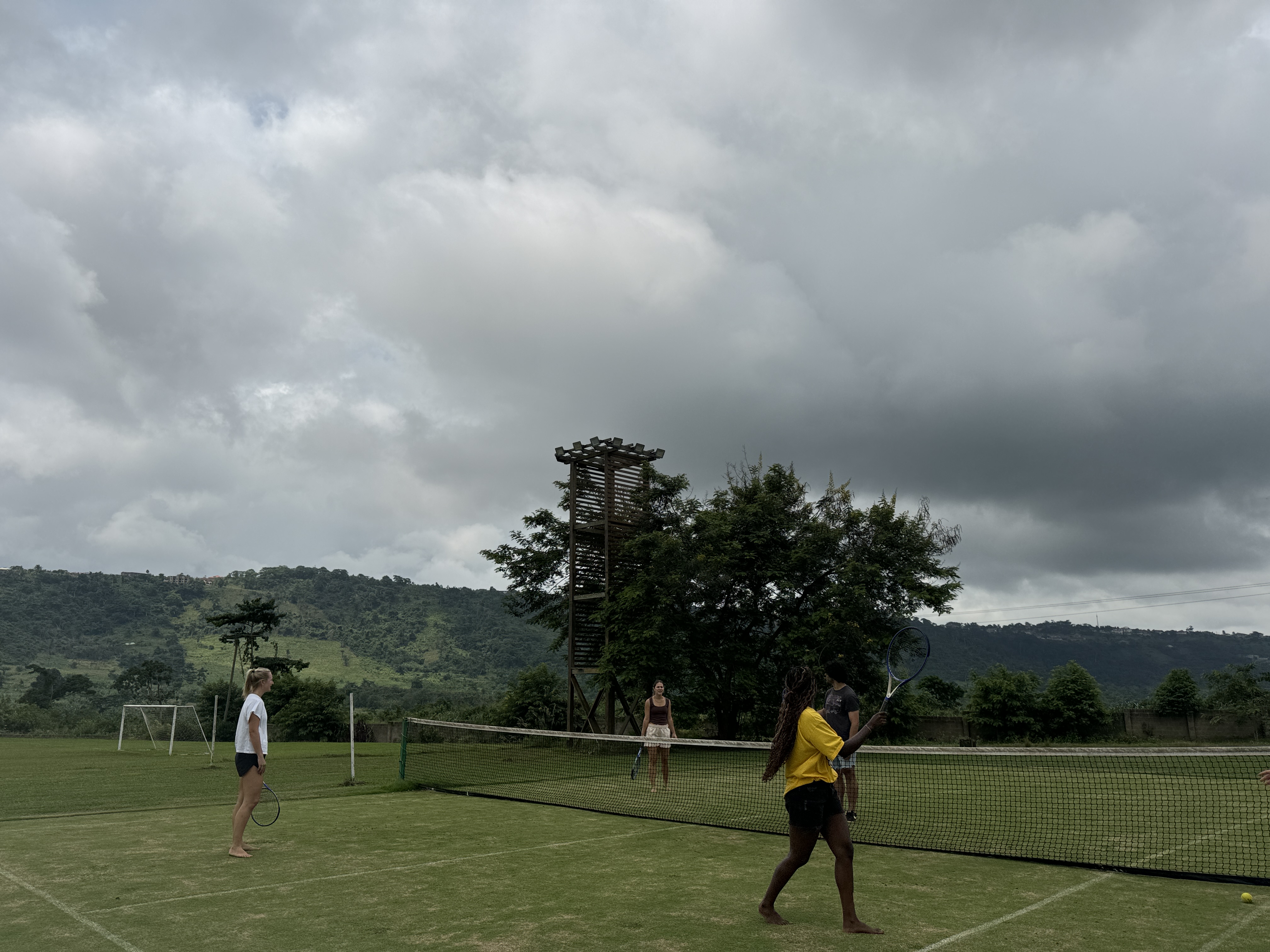
Reminiscing on Book Discussions
July 17, 2024
On the last Tuesday of our stay in Ghana, we wrapped up book discussions, cramming the last three into a single session. Though I am relieved to be done and able to check an item off the list, honestly book discussions were such a refreshing addition to the program. I had a less than ideal week because of my personal life, but the book discussions played a significant role in lifting my spirit, which is essential to surviving this program. I reflect on where we started and how our conversations are now, I am impressed. The evolution of our discussions is striking when comparing the starting and ending points. At first, we had very little to go on. Our answers were riddled with surface-level observations and first impressions. By the time we began the community health and nutrition screenings, we had a new understanding from extensive interaction with the locals. Our attempts at Twi were greatly appreciated and some of the locals even took the time to give us lessons to correct our silly accents. We had conversations about race and how a mostly racially homogenous population gives rise to other means of categorization that enable privilege or discrimination, such as ethnicity or tribe. We compared these social practices to those in the US, which certainly provided with me with a more global orientation to ideas that transcend continent borders. We delved into gender roles, disability, traditionalism and modernization and how globalization has shifted stances on these topics in the US and in Ghana. We pointed out misconceptions about the United States and how government and social institutions are built off different circumstances that those of Ghana and thus have different operations and implications. Once we entered the hospitals, we had a whole new set of observations to cite. This provided us with a nuanced understanding of the differences of the healthcare systems. Resources are harder to come by which create room for innovation and improvisation to save lives. They work with what they’ve got. Our observations were supplemented with historical understanding of Ghana during colonialism through independence, and how social outcomes lead to implications with the healthcare system. Our professional and personal interactions with the staff gave us insight on the diversity of thoughts and opinions within Ghana. We delved into herbal vs. western medicine, how western idealism has seeped into Ghana, balancing traditionalism and modernization, technology and media and access to internet, the future of Ghana. The knowledge we have gradually received and attained throughout the program became evident in our book discussions. It was incredible to take part in so many conversations with such a diverse group of people, all having experiences that we have never had before and might never again. The way our past perspectives informed our opinions and the way our discussions flowed was fascinating. I am grateful for our book discussions; as much as I do not miss them in this current moment, I will always look fondly on what I’ve learned about Ghana and about this amazing group of people.
-Kennedi Scales

Our Nightly Book Discussions
July 17, 2024
One elemental part of the Ghana Summer Service-Learning program is our nightly book discussions. During our orientation meetings that took place over the spring semester before we left for the program, Dr. Anderson informed us about these book discussions. He gave us a list of novels written by Ghanaian authors and instructed each of us to choose two books from the list. Later on, Dr. Anderson made a schedule of when our book discussions would take place during the program. Typically, there are two book discussions per night on Monday through Friday nights.
Our responsibility as the student leading the book discussion is to read our chosen books before the day we are scheduled to lead the discussion. During the book discussion, the presenter provides the group a summary of the novel he/she read and asks the group about 3-4 discussion questions relating to the novel. As students participating in the book discussion, we are expected to give our full attention to the presenter and engage in a thoughtful discussion, applying our knowledge obtained throughout our experiences over this program. These book discussions have become an ongoing part of our night routine: after eating dinner, we all collect in the living room, eager to hear from the presenters of the night.
Reading our chosen books gave us a greater understanding of Ghanaian culture, history, and literature style. Each person added their own creative charm to their questions, often utilizing events or passages in the book and tying in our experiences in Ghana.
As each day goes by, students that are leading the book discussions are challenged to create unique questions that spark new and exciting conversations each night. Because of this, the most recent book discussions we have created have been some of the most engaging. In addition to the uniqueness of the questions, we now also have more experience that we can apply to the discussions, ranging from two hospitals, the community health and nutrition screenings, multiple cultural and historic institutions, and so much more.
These book discussions have been so beneficial for us because we get to hear from 13 other perspectives. Everyone has their own unique experiences and perspectives and hearing from each other broadens our overall understanding of cultural practices and challenges that Ghana faces as a developing country.
On Tuesday, July 16th, we decided to have three discussions so that we would have more time to prepare for our travels on Wednesday night. This was a bittersweet moment, for these were the last book discussions of the program. The discussions were led by LB, Lilly, and Britney. We had lively conversations including our personal experiences with forgiveness and resilience in which we discussed the interactions we have had with Ghanaians, tying in elements of the past, present, and future. These engaging topics kept the conversation growing and developing to the extent that we forgot the question that prompted the discussion.
Our book discussions have become an essential component of this program, allowing us to share our experiences and learn from each other while developing our understanding of Ghanaian culture. They have also brought us much closer as a group as we bond over past experiences and as we open up about issues and challenges we have faced in the past. As our time in this program is coming to an end, I look back very fondly on this aspect of our daily routine and the captivating discussions we have created.
Peyton Macik
Complications in C-Sections
July 17, 2024
During my time at Ridge Hospital, I've had the privilege of exploring various medical specialties and interacting with many healthcare professionals. Among all my experiences, shadowing the obstetricians has been the most interesting. While some wards initially struggled to integrate me as an observer, the maternity and labor and delivery departments welcomed me with open arms.
The most captivating experiences while shadowing occurred in the c-section operating rooms. I witnessed numerous c-sections, each with its own unique circumstances—from overdue births to complications like pre-eclampsia, malformations, twins, and placental issues. Despite occasional challenges, I've seen every mother and baby successfully navigate these critical operations.
One of the most unforgettable experiences involved a baby diagnosed with hydrocephalus and the mother diagnosed with placental abruption and sickle cell anemia. The doctors initially thought both mother and infant were unlikely to survive, the infant's cries after resuscitation marked a miraculous turn. Witnessing the medical team's coordinated efforts to stabilize both mother and baby left me deeply moved and profoundly respectful of their occupation.
These experiences have evoked a range of emotions within me—relief at successful outcomes, awe at medical capabilities, and a profound respect for the healthcare professionals who navigate these complex situations with such grace and expertise. Shadowing in obstetrics at Ridge Hospital has not only deepened my understanding of medical practice but also reinforced my admiration for the resilience and compassion exhibited daily in healthcare settings.
Lilly Tye

The food of Ghana
July 16, 2024
One thing I have learned throughout my time in Ghana is how much food creates a sense of community among the people here. Food is said to bring people together all throughout the world and I have truly seen that idea brought to life over the past five weeks. Not only has the conversation of “what food I have tried” brought me closer to locals, but food has brought me closer to my classmates as well. Coming to Ghana with a group of twelve other students to which the extent of your conversation has been “hi, what’s your name” at a couple of orientation meetings, can be nerve-racking. Add that on top of the fact that you’re traveling to a foreign, developing country for the first time in your life and staying for an extended period of time, well, it brings a lot of nervous excitement.
Every day we eat breakfast and dinner family style, and this began right off the bat. Our first meal together was filled with small talk and polite formalities. By our fourth dinner, everyone was cracking jokes and telling stories that led to one after the other. Before I knew it, I found myself leaving the table later and later. Some nights, a few of us will stay gathered around the table until 10 or 11 pm and not even realize how much time has passed. Dinner quickly became something I looked forward to everyday. Conversation flowed anywhere and everywhere in between embarrassing first date stories to college crises coming to the conclusion of “I have no idea what I’m doing with my life”. I’m not quite sure how, but our 5:30 am breakfasts can somehow even manage to be lively.
Throughout these numerous family style dinners, I have tasted many new foods and, by the grace of God, finally developed a spice tolerance. Some traditional Ghanaian dishes we have tried including empesi, banku, palm nut soup, jollof rice, palava sauce, fufu, ground nut soup, light soup, and more. One of the hot topics of conversation among the staff in the hospital and locals in the community surrounds the Ghanaian dishes we have indulged in and always comes with the question: “have you tried banku yet?” I think 75% of Ghanaians say Banku is their favorite dish and because I know you are so curious, I’ll tell you what it is. Banku is a cornmeal made into a paste like texture and eaten with various sauces and soups. Being able to share a piece of the Ghanaian culture with the locals brings a large feeling of joy and contentment that is surmountable to any conversation I have had about my life in the United States.
As my time in Ghana is coming to a close, I have started to reflect upon the wonderful friendships and connections I have made with my classmates, my professor, and the local Ghanaians I’ve been able to interact with. These are experiences and memories that I know will last me a lifetime and leave me feeling eternally grateful for my choice to choose this experiential learning program. These lessons will follow me through life, one the biggest ones being how to connect with others when a world stands in between you two. An easy, consistent answer to that: food.
Abby Haukapp

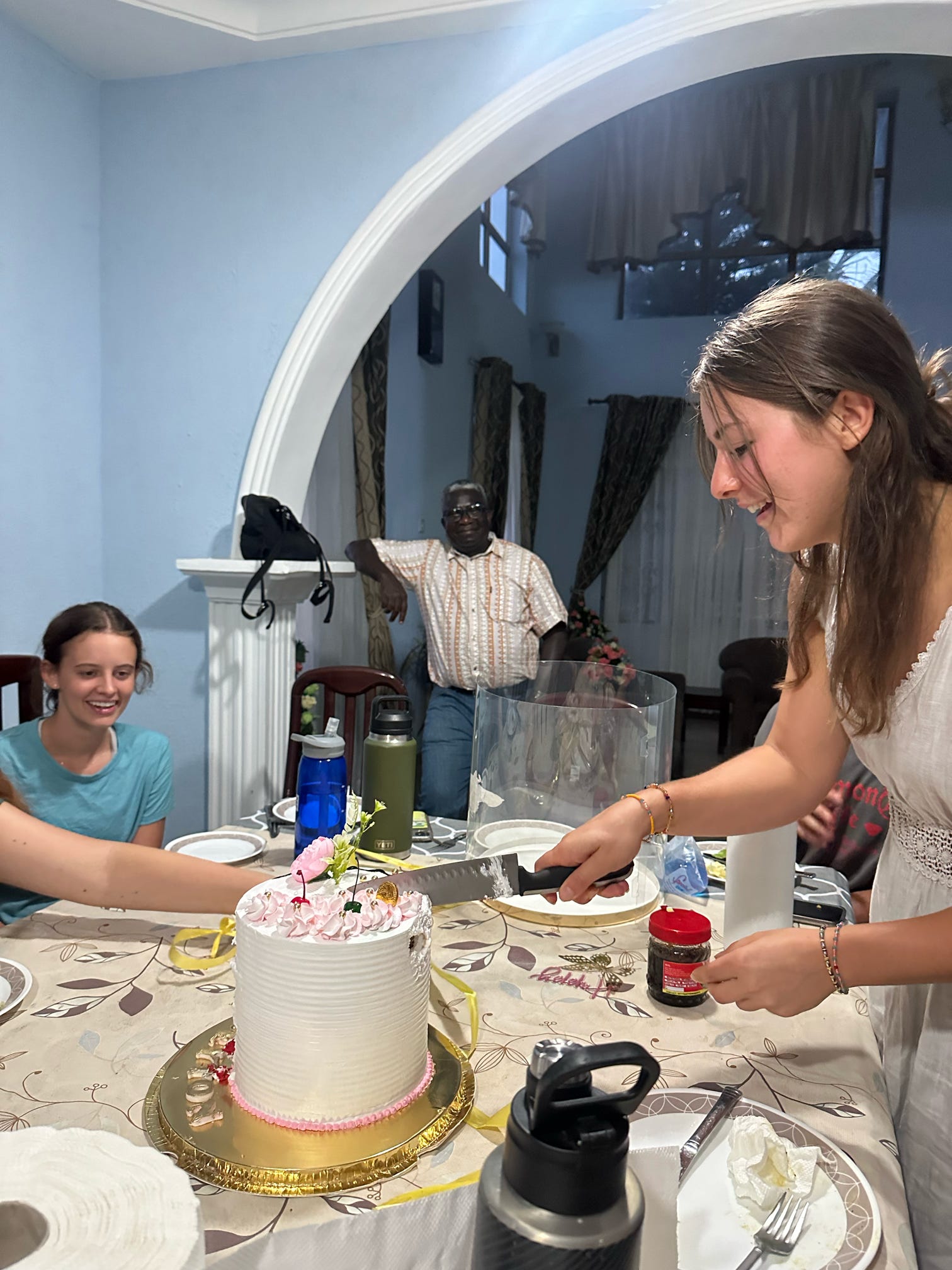




How Strike Can Affect a Patient
July 16, 2024
On Monday me and Kennedi went to the Level 2 surgery theatre where the cases are scheduled. Before entering the building Dr. Anderson briefly mentioned a strike was going on with nurses and other medical professionals. I had been to the emergency surgery department the week before, so I was curious how the two wards were going to compare. A nurse greeted us, told us where to change into our scrubs, and then we followed her into one of the theatres. She explained to us that they normally set up the room when the patient is on the table, but since the strike was going on she was going to set up before the surgery so it could still happen. She prepped the room by setting up all the tools and making sure there was enough supplies and then she left us in there until the doctors came in.
A male surgeon came into the theatre and two female doctors followed behind bringing the patient in with them. The surgeon briefly explained his frustration with the strike, and they would be operating without any nurses, an anesthesiologist, or any other medical personnel. I was surprised they were going through with the surgery, but it was a simple hernia repair, and they were confident they could do it successfully. The female doctor started the procedure while the surgeon was observing, and he was not scrubbed in yet. A few cuts in, he put sterile gloves on and started taking over the surgery. While this was happening, there were nurses roaming the halls, but they refused to work. The nurse that set up the room with us came in begging the doctor to put on a gown so he would be sterile, but he refused and told her he would only give in if she scrubbed in. After this instance, me and Kennedi started asking about the strike. To summarize, the surgeon explained the public sector is against the Social Security and National Insurance Trust selling shares in four of their hotels because there is misinformation and there’s a political twist involved.
He went on saying he was so frustrated because their job is to save lives and going on strike puts lives in danger. One of the doctors was a makeshift scrub nurse and the only way to monitor pain was to look over at the patient. The patient was given a local anesthetic but at some points he would flinch, and moan so they had to administer more pain killers. Since no nurses were working the surgeon had to teach a student nurse how to dilute the medicine and give it to the patient through his IV. I was blown away they were not monitoring his heart rate or oxygen levels, but they had to perform the surgery, so they made do. The strike greatly affected the process of the surgery, but they did not allow it to affect the quality.
- Schuyler Boyer
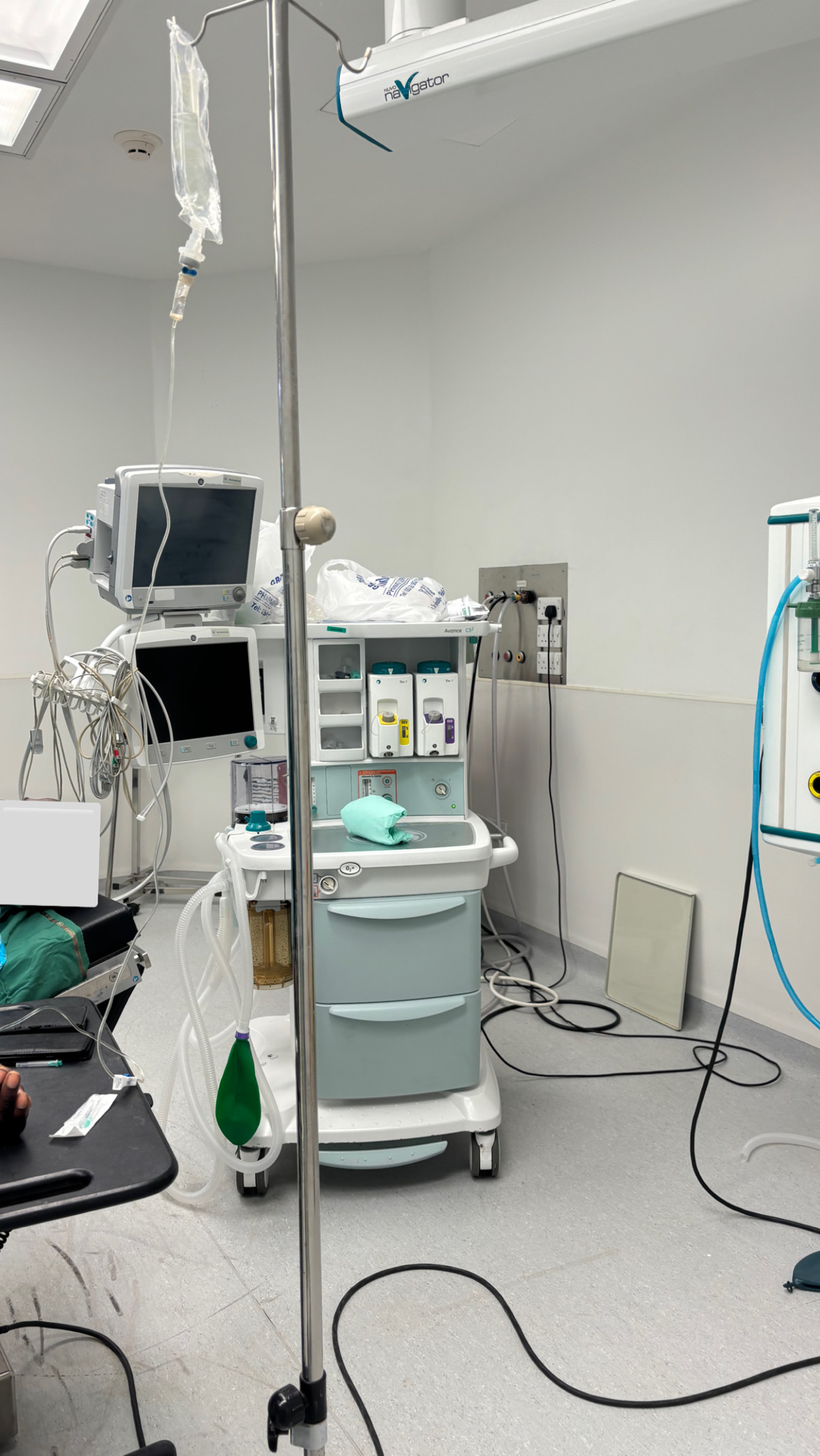

“Takeover” at the National Theatre of Ghana
July 16, 2024
Weekends on the program are spent either resting and relaxing, or visiting interesting places and learning more about the culture of Ghana, and this Sunday we got to do both. We experienced “Takeover” a play by Uncle Ebo Whyte from the front row of the National Theatre of Ghana. In this play, a well-respected church leader returns from an injury recovery to find his only daughter acting out and his subordinates scheming to get him out of power. “Takeover” not only references key circumstances in Ghana’s current and past political history, but there are many nods to pop culture as well. Similarly, the soundtrack of the play is a mix of both traditional cultural songs and today’s pop hits.
I was so excited to experience fine arts in another culture and “Takeover” did not disappoint. It vastly exceeded my expectations. My favorite part was how engaged the audience was into the play, gasping and laughing so in unison that it seemed as though they too had been to rehearsals. During one scene in the play the cast specifically addresses the audience encouraging us to stand to our feet. In what was depicted as a church service, a fun moment of dancing and singing and clapping plays out as one character JJ makes his way through the crowd engaging with people. Another scene in the play that stayed with me is when a group of angels in traditional outfits called Kente (depicted in the picture provided) surround the daughter Mary sing and preform a style of dance known as Adowa.
“Takeover” at the National Theatre of Ghana was such a captivating way to engage in both the modern and traditional culture of Ghana, and one that I would recommend to anyone.
-LB Mason
Excursion to the National Theatre of Ghana
July 15, 2024
On Sunday 7/14 our group had our most memorable experience yet, or atleast for me the most memorable experience. We went to see the play “Takeover” written by Ebo Whyte at the National Theatre of Ghana which is in the heart of Accra not to far from where we have been doing rotations at Ridge Hospital.
The musical play felt as if I was watching a soap opera that was written with all age groups in mind. The drama played out more like an old school soap opera, but was riddled with pop culture references that were both relevant and slightly dated. Pair this with lovely musical scores of classic songs everyone knew the words to and the entire audience of all ages was having a blast.
My personal favorite aspect of the play was how involved the crowd was with the entire play. It’s almost as if the audience knew what the actors were going to say next despite never seeing the production. This accumulated in hundreds of people crying and laughing in a way I have never experienced at any play in America. Parts of the play even involved completely breaking the 4th wall and addressing us directly as if we were in a church sermon. Although I know it’s impossible for most people reading this to watch this production. But I almost feel obligated to not spoil the story in case someone manages to get their hands on a recording of the play because going in to the play blind made it all the more enjoyable of an experience. This was a culmination of Ghanaian culture and excellence. Thank you to Dr.Anderson for managing to get us front row seats for this, I won’t forget this experience !
-Rawad Basma


Raw Experiences in Ridge Hospital
July 12, 2024
We spent the week at Ridge Hospital, also known as the Greater Accra Regional Hospital. Beyond learning about the operations of various wards, I also delved into fascinating conversations with the Ridge workforce. Being American automatically opens up conversation about cultural differences, discussing different foods and social norms.
In Ghana, trust operates differently. Though we were foreigners and most of the staff didn’t even know we were coming, they were more than happy to teach us the physiological aspects of medicine here. They also walked us through procedural practices.
In an American shadowing or clinical experience, I would certainly be entirely hands-off, trying my best to stay out of the way of the physicians and nurses. But here, they often invited me in to get a closer look, letting me sharpen my skills in the process. During my time in the emergency ward, Dr. Peter, the emergency doctor, let me shadow him. He handed me charts and let me investigate test results to reason what was wrong with a patient with abdominal pain. After a urine test, a liver test, an ultrasound, and a blood test, we were able to devise that an inflammation of the gallbladder was causing an infection in the liver that was disrupting the bilirubin conjugation process.
Dr. Peter also did not shy away from the realities of being an emergency doctor. He shared that it can get depressing, and how differences in social issues between the US and Ghana bring different cases to the hospital. Here, there are many more vehicular accidents because of the frequency of motorbikes and lack of seatbelts. There aren’t as many drug overdoses or gun wounds. Witnessing these differences and how it would change the inner workings of the hospital was fascinating to think about. I also watched while he delivered news to a patient that she had advanced metastatic ovarian cancer. Being there for this harsh reality of being a medical professional was difficult, but also necessary. As an aspiring physician, being able to deliver news in a way that a patients understands is an ability that is essential to acquire. He had to look at the charts, put it together, and find a way to deliver the news in a high-stress environment. He had to draw out a stick figure of the patient and explain how her ovarian cancer made its way to her lungs, causing fluid buildup and difficulty breathing—the only complaint she had initially come in for.
I also learned that sometimes there are days with no babies being delivered. There are days that I get to watch a neurosurgery of a hematoma evacuation. Days that I learned how to dress burn wounds (by assisting in dressing burn wounds!!). Days that I get to talk to physicians about what they think of the US and how there are problems we have at home that Ghanaians don’t have to think about. Many were curious about whether the news coverage about frequent mass shootings is reality. Others wanted to know what we thought of our presidential candidates. Several wondered why the heck I have a boy’s name (Kennedy is a male name in the US) or why President Obama pushed to legalize gay marriage. More than that, I got to hear about their personal lives, families, and passions and I am so grateful for the time I’ve gotten to spend here.
-Kennedi Scales


Learning About Burns
July 12, 2024
One of my favorite days this week was Thursday in the intensive care unit (ICU) that is specifically for patients with burns! When Abby and I arrived, a nurse named King showed us around. He introduced us to all the staff, and we went into each room familiarizing ourselves with their supplies and how they run things. Once we were done with the tour King was getting off his shift and left us with nurse Macbeth who was just as excited to show us around for the day. We started in the dressings room where they give the patients a bath and new dressings every other day. The first patient had burns on both of his shins and his forearms. He also had a skin graft high up on his right thigh they had just pulled from. The process involved removing all the bandages, cleaning the patient with soap and water, then cleaning the wounds with an antiseptic liquid, and applying sterile bandages back on top.
While Macbeth and a few other nurses were doing the cleaning and putting on new dressings, Macbeth was quizzing me, Abby, and the other student nurses on future problems the man would face because of his burns. Some answers were potential infections, struggling to regenerate skin cells, and I added he would have a hard time regulating his body temperature. All these answers were true, and I enjoyed how involved he made us feel in the process. He also informed us that sometimes the patients’ body will reject the skin grafts if there is excessive bleeding, dehydration, or a lack of oxygen in the body part. It is extremely important that the dressings are not too tight, so the patient has the best chance of accepting the skin graft that they need to heal. While the next patient had his dressings changed Macbeth quizzed us on other topics to get us thinking about processes in the body. He asked us why they use room temperature water instead of cold water when the patient’s temperature is high. The answer was the cold water would make the body think the person is freezing causing the muscles to contract. When muscles contract, they produce heat, so after a few minutes the patient’s temperature would return to a fever and could possibly be higher than before due to the heat the body produced.
The final patient was a young boy whose arm had been burned from hot water. The nurses gave him a bath and then drenches his bandages in water making them easier to remove. Instead of Macbeth or other nurses removing the bandages they had the boy do it. I asked him why this was, and he said that for young kids’ pain is more of a mental game. By allowing the boy to remove the bandages he can withstand more pain than if someone else put him in the same amount of pain. This was a really interesting concept to me, but it was true, the boy cried less when he removed the bandages. After getting the bandages off, the boy was given a small dosage of Ketamine to relax him because there was no way they could clean the wound without some intervention. Macbeth worked quickly to clean the bandages and separated the fingers with the dressings so they would not heal together and cause a greater issue. Overall, it was a great day using my knowledge of anatomy and physiology and applying it in real life!
- Schuyler Boyer
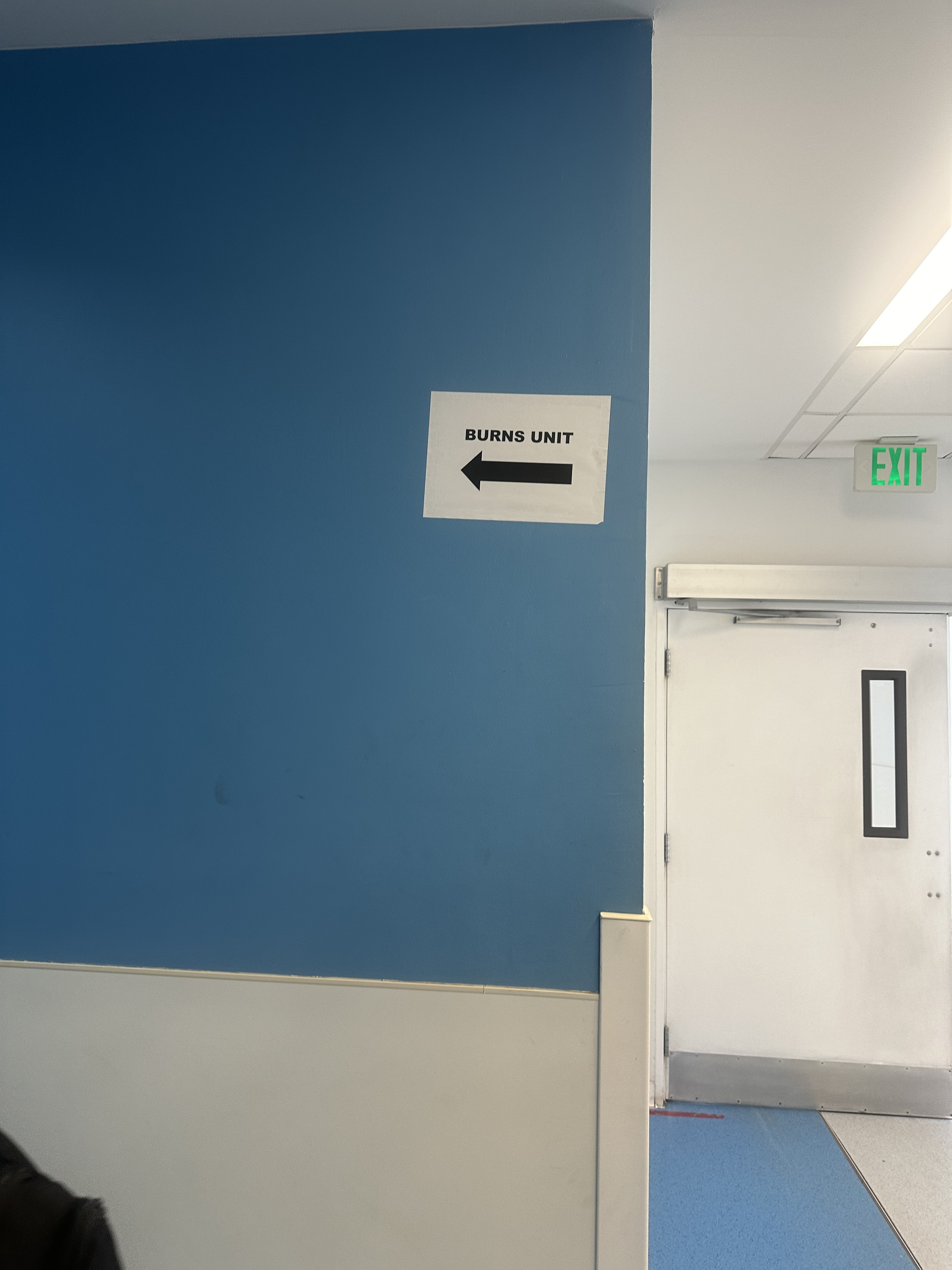

My first time in surgery
July 12, 2024
This week we started shadowing at Ridge Hospital, Accra’s regional hospital. Ridge Hospital has multitudes of opportunities for observation from in-patient and out-patient dietetic units to burn intensive care units. With so many options to choose from and limited days, I wanted to challenge myself and observe areas of medicine I may be hard pressed to witness again. This led me to sign up for an emergency surgery rotation, or as it is called at the hospital, 24-hour surgery.
Not only have I never seen surgery before, but I have also never had surgery before. I’ve never even had a cavity filled or had to to get my wisdom teeth out - sorry to rub it in and hopefully I don’t jinx myself. That being said the pre-op, intra-op, and post-op stages of surgery were brand new to me. These stages included identifying patients and physical examinations in pre-op, the performance of the procedure in intra-op, and covering the management and recovery of the patient in post-op.
When my classmate Rawad and I first arrived at the unit, it was a bit of a slow start which allowed us to receive an in-depth lecture on basic surgical instruments from one of the senior surgical nurses, Sarah Ampofo. A few of these instruments included the scalpel and scalpel holder, scissors, kidney dishes, and forceps. The scalpel is the blade used to make cuts in surgery, so blades and holders come in various sizes depending on the task at hand; a first cut into a thick area of tissue versus detailed work on a child. I learned that there are always two types of scissors present: stitch scissors and surgeon scissors. The surgeon scissors are generally curved to the top of the blade to prevent any excess punctures when cutting tissue. Kidney dishes have a wide variety of uses: holding specimens pulled from the body, holding sterile gauze or bandages, or holding any items that need to be disposed of during surgery. There are many different types of forceps. Some are used for cleaning, holding, dissecting, etc. The piece of information Sarah continually emphasized regarding forceps was teeth versus no teeth. If a pair of forceps has teeth - small prongs or edges the fit together - then it is used for tough tissue, while forceps without teeth are used for more meticulous work.
After our lecture, a case had come in. The woman was an older diabetic patient presenting with a large back abscess that needed to be drained. In my time at Ridge Hospital, I’ve learned that diabetic patients have to be very careful if they have a wound or infection as the microorganisms will feed off of the glucose in the body and the infection will spread. This is what had occurred with the abscess on the woman’s back, so to prevent further infection and pain, drainage needed to happen urgently. The surgeon used a diathermy mono polar pencil to make the initial incision and the abscess began to drain a yellow-grayish pus immediately. The abscess took about an hour to completely drain which was followed up with packing the wound with a gauze saturated in antiseptic solution. The staff will manage her recovery with close supervision on the spread and prevention of any infection and they will change the packed gauze every three days until the wound is healed enough to begin skin grafts.
My first experience in surgery was a surreal experience that I am incredibly grateful for. I’m very excited to continue expanding my knowledge as I rotate from unit to unit at Ridge Hospital.
Abby Haukapp




Superb Day in Surgery
July 12, 2024
My week of hospital shadowing has been filled with intriguing procedures, engaging mentors, and new experiences. For the first time, I was able to shadow in the OR and oversee surgery right over the surgeons shoulder. As our group transitioned this week to Greater Accra Regional Hospital, also known as Ridge, we’ve all been able to get unforgettably emerged into the healthcare system.
My week consisted of shadowing in the radiology, ICU, oncology, and surgery units. Going into each unit, I was met with welcoming arms by nurses, doctors, and other staff that were eager to teach and show. I was able to gain insight on my future career and could start picturing what my professional life may have in store for me. Every unit had super interesting procedures and machinery that were thrilling to see, but the highlight of my week has really been in the surgery unit. It was such a new experience for me and has previously just been a part of healthcare I observed through TV shows or video.
When we arrived at the surgical unit, we changed into our scrubs and were oriented on the few different surgeries that were scheduled. We decided to sit in on a renal surgery, more specifically known as an open pyeloplasty to fix an obstruction of the kidney that was restricting urine flow from kidney to bladder. We were able to sit through the entire surgery, from prep to waking the patient up from anesthesia and everything in between. It was amazing to see the inside of the human body, to be able to visualize the different layers of skin, fat, and muscle, and have a close up view of the human organs. The surgical staff was focused, but more than happy to answer our questions and inform us. We also chatted about their lives in Ghana and personal interests. We learned that Edward, one of the surgeons, was a passionate Astros baseball fan and was fluent in Spanish!
Overall, the hospital has provided many once in a lifetime experiences. From exploring specialities I have potential future interest in to delving into areas I never would have previously seen myself in, my overall understanding of healthcare increases day by day. Ghana has provided such new perspective and opportunities that continue to instill gratitude and appreciation within myself. As the end of our program starts to creep around the corner, I repeatedly think of how lucky I am to be able to watch live surgery across the globe and to really take in all Ghana has to offer me.
Reesa Schroeder


Live births, brain surgery, and burns!
July 12, 2024
We spent this past week at the Greater Accra Regional Hospital, also known as Ridge Hospital.
My favorite departments this week were the labor and delivery unit, the 24 hour surgery unit, and the ICU burn unit!
On Wednesday, I had the opportunity to shadow in the labor and delivery unit and it was incredible. I saw three moms give birth to their babies, one of them giving birth to twins. I also got to witness a C- section birth, along with a C- section repair. Watching these women bring their babies to life was so empowering and emotional. After watching the first birth, I shed a few tears because I was in awe of how naturally powerful women’s bodies are. It was amazing to watch the mother’s push through their intense pain for themselves and for their babies. I will forever be inspired by the strength of these ladies.
On Thursday, I was in the 24 hour surgery unit and I was able to witness a brain surgery. The patient was a 79 year old woman who had a hematoma, or excess bleeding in her brain. Watching the surgeons drill burr holes through her head and into her skull felt so surreal.
I was so surprised at how much extra noise there was in the OR. The nurses were all talking, laughing, and playing music while singing and dancing along. I was really surprised that the surgeons were able to focus on the brain with all the extra noise; After the surgery I did some research to see how this was possible. I found that music naturally relaxes the brain so in the OR it can help calm the surgeons, making the time go faster and even help them focus better. There’s also research on connections between music and the patients, even when they’re under anesthesia.
On Friday, I was scheduled to be in the burn ICU unit. To my surprise, I really enjoyed this department. The ICU physicians were so welcoming and informative; they allowed us to assist as soon as we got in the debridement room, and gave us informative lessons on burns. We learned how to categorize burns based on their extensiveness and depth, and how to treat them according to their severity. Throughout our time there, we were all laughing and sharing personal anecdotes.
Additionally, Kennedi and I were able to assist with wound dressings on two burn patients. The first patient came in from a gas explosion, leaving him with third degree burns on both of legs, and first degree burns on his face. Our second patient had fourth degree burns on both of her legs as well. Once again, I was filled with immense gratitude for improving someone’s life for the better.
I later found out that one of the physicians draws professional portraits as his hobby. He showed us some of his drawings, like Obama, and he was insanely talented. I appreciated that he still pursued personal hobbies outside of medicine. Overall, we are individuals before we are students or workers, and it’s important to fulfill the other aspects of our lives as well.
I am so grateful for the invaluable experiences I was able to gain this week at Ridge Hospital. From the surgeons, to the doctors, to the medical students, to the nurses, everyone was incredibly helpful, knowledgeable, and resourceful. It felt empowering to be in the presence of so much excellence this week, and my horizons are forever widened. Thank you Ridge Hospital for all of the life-changing experiences!
-Abisola Adedipe




Compassion in the Face of Adversity
July 12, 2024
We are currently shadowing/observing at Ridge Hospital in Accra, Ghana, and I had the opportunity to go to the ICU this week with my classmate, Jolie! Nothing could have prepared me for the experience we had. We happened to be at the Burn Intensive Care Unit (BICU). We had the pleasure of meeting the nurses, and they welcomed us warmly. This, I was extremely grateful for because shadowing can be challenging at times. You never know if you’ll be observing the whole day without doing much or actually helping out. Thankfully, they were more than excited to involve us for the day’s work.
We started off touring the facility and meeting various patients and staff. We were even able to meet the plastic surgeon, Dr. Charles, too. There were only 6 patients in the unit, and all of them were stable despite their injuries! We soon went to the debridement room so we could observe the dressing of the patients. The first one was a young boy with burns all over his body, mainly his torso, an arm, and a leg. Despite the pain he could have been in, he was such the sweetest boy. They injected him with a small dose of ketamine so he couldn’t feel the pain of them removing his previous dressing. Then, they gave him a bath and rewrapped the burns. The process didn’t take too long, and soon after, they were getting ready to take another patient.
We talked and bonded for a while until it was time for the second patient. They suddenly told us to put on the protective equipment so we could dress the patient ourselves. At first, I thought they were joking, but they quickly handed us the coverups and gloves. I was a bit nervous at first considering I had no idea how to do a dressing, but they ensured us that they were going to guide. A woman named Sandra came in, and she had experienced 3rd degree burns on her legs due to hot soup wasted on her. She sat down, and we soon began cutting the bandages away to unwrap. It was a bit difficult, mainly because we were a little nervous to cause pain, but we worked efficiently with all of their encouragement and support.
We were unable to continue this due to Dr. Charles wanting us to observe his surgeries in the surgical theater, but we were able to come back with a little time to spare. The atmosphere had changed since we’d been there that morning. Adjoa, a nurse we’d bonded with earlier, told us that it is difficult to keep a positive mood sometimes because most patients lose the confidence within themselves. The nurses are in charge of every aspect of the BICU, and the nurse to patient ratio is never proportional. This leads to them being overworked, and they are given little pay for what they do. Despite this, they try to be encouraging to their patients and staff, but some days it is harder than others.
She hoped to see change one day, and I couldn’t help but to wish for it more. She had the biggest heart, and based on what I saw that day, she was more than hardworking. She took the time out of her day to help and welcome us as if we were family. I am greatly appreciative of her and the rest of the nursing staff, and I hope to take back this experience to the US. Being kind and empathetic to patients goes a very long way, and they will remember you forever as you are impacting their lives in the best way possible. I want to continue to spread positivity so others can be just as uplifted even when times are hard. It is only right in the world of healthcare.
— Regan Leland




Growing Confidence Through Giving Care
July 12, 2024
Lilly and I excitedly followed Dr. Anderson into Greater Accra Regional Hospital’s NICU to shadow for the day. We were quickly separated and assigned to different rooms. Without a buddy, I found myself in a room of professionals stabilizing and treating full-term babies who are experiencing complications. Upon my arrival, a nurse immediately assigned me three babies to check vitals for. I expressed my discomfort and inexperience, but she still insisted I would learn how to take these measurements. Through the challenges of the day ahead, I learned beautiful lessons only obstacles can reveal.
Three nursing students welcomed me into their huddle, and I was surprised to discover this was also their first time collecting this information. Learning to operate the equipment and tape sensitive sensors, we successfully measured oxygen saturation levels, heart rates, and respiration rates. I watched professionals calculate Thompson scores and perform gastric suction through an OG tube. I watched them assess and collect lab work from two newly admitted patients. A baby was admitted with mild neonatal jaundice, and a nurse asked the students what they knew about the condition. Unsatisfied, she then asked me. Public speaking, even in a small group of people, can really stress me out. Fortunately, I learned about jaundice from the newborn nurses at PML Hospital and the differences between conjugated and unconjugated bilirubin in the emergency room the previous day. I explained what I understood and am very proud of myself for speaking up in a group like this.
A kind nurse named Judith warmly took me under her wing. She explained many practices and showed me how the babies are fed. Ideally, mothers visit between 6:00-7:00am, 9:00-10:00am, 12:00-1:00pm, 3:00-4:00pm, and 6:00-7:00pm. Obviously, this is a challenging and demanding schedule. Some mothers are staying in other units in the hospital and some live nearby, but others live far away, outside of the Accra region. Judith explained mothers may store expressed breast milk at the hospital or staff will prepare formula if a mother cannot visit every three hours. She showed me how to warm the milk and explained how to prepare the feed.
As mothers arrived at noon, they promptly held and fed their adored babies. Nurses waited a few minutes before feeding the other infants, to see if their mothers were coming. The babies who were waiting were not thrilled, voicing their hunger in passionate cries. Nurse Judith permitted me to pick up young, tiny babies to comfort them. I felt apprehensive, as I did not want to hurt them, but gently picked up a young boy and held him close to me. I felt empowered as he stopped crying and grew calm.
Spending the day without a friend on my program was a bummer, but also a blessing in disguise. I learned how to trust myself and my ability to learn new things. I grew more comfortable with discomfort, challenging myself to embrace the unknown and problem solve. After collecting vitals and comforting babies, I am now more confident in my ability to improve the lives of others.
-Amelia McCorvey
Ridge Hospital Rotations
July 11, 2024
After last weeks rotations at the various departments within Princess Marie Louise children’s hospital, we have now switched hospitals. This week and next week we will be rotating at the Greater Accra Regional Hospital called Ridge Hospital. Ridge hospital is a much more advanced facility than Princess Marie Louise children’s hospital, and one of the buildings was built within the last few years. The inside reminded me of Wellstar facilities.
We as students have the opportunity to rotate through the Oncology, Pediatric, Public Health, Pharmacy, Disease Control , Family Medicine, 24 hour surgery, 12 hour surgery, NICU, Dietetics and Nutrition, ICU, Emergency, Burn, Maternity, Labour and Delivery, and Radiology and Imaging. We all choose our own rotation in coordination with the Matron Nurses of each respective floor. Since some of us want to pursue other fields of healthcare other than medicine, many are opting to observe the public health and nutrition wards. Since I am on the premed track I have been observing mostly in the surgical wards as well as family medicine and oncology!
My most memorable and meaningful experiences have definitely taken place in the Family Medicine and Surgical Wards. In family medicine I learned the importance of understanding the human body in its entirety because this is the primary stage of diagnosing a patient. Patient history is equally as vital to ensuring a proper diagnosis. Dr. Charles Wells and Dr. Benedicta Opoku were the two doctors I had the pleasure of shadowing and learning from.
The surgical ward at ridge has been very eye opening due to the advanced technology of the facility. Although it is advanced, some of the procedures are still open procedures, meaning they make open incisions into the body to operate accordingly, while in America many surgeries are endoscopic procedures due to our advanced surgical technology. Although the technology is technically not as good, the surgeons are equally as masterful at their craft, and the nature of an open procedure means as an observing student I get to witness the inside of the human body in a way I could never see in America. This insight and experience has been life changing, and is making me consider surgery as a very realistic option for my future. I am forever grateful for Dr. Ashiagbor, Dr.Boachie, and Dr.Twumasi who took me under their arm in explaining to me their journey through medicine as well as explaining the various procedures I got to witness.
The picture is of myself, Reesa, Peyton, Dr. Ashiagbor, and Dr.Boachie.
-Rawad Basma


A Day in the Market
July 11, 2024
One day after Ridge Hospital this week, we went to the market in Accra! After driving past the market everyday last week on the way to PML Children’s Hospital and not being able to go to the market the first time, I was eager to explore the busy streets. When we first stepped into the market, I was greeted by an array of vibrant colors and instant chatter that reminded me of city life back at home. The sidewalks were filled to every inch with owners, the goods that they were selling, and the customers who were ready to buy! I could smell the aroma of food being cooked right on the street even if I could not yet see it. I was excited, overwhelmed, and thrilled all at once- I knew this would be the experience I had been hoping for!
As the streets filled with crowds of people, I remembered Dr. Anderson’s advice, “Go to the market knowing what you want to buy, if not you’ll spend hours there.” When I first heard him say this, I didn’t understand why spending hours at the market would be a problem. I had always loved to shop and explore new places, but the streets of Accra were unlike anything I had experienced. I was suddenly overwhelmed with the people, smells, and sounds all at once. I braced myself because I knew this was the cultural experience I craved. The streets were filled with vendors selling all different types of goods such as shoes, clothing, jewelry, fabrics, dried fish, spices, poultry, vegetables, fruits, and all kinds of authentic Ghanaian dishes.
Our tour guide for the day, Theodora, kindly helped and led us to whatever goods we told her we wanted from the market. We first went to check out the spices and sauces as we were in search for the authentic Ghanaian spices we had been eating. I ended up getting Shito sauce and Suya. I paid 20 cedis for about 2 cups of Suya which converts to less than two U.S. dollars. The market had many raw meats, dried fish, snails, and squids in buckets and large bowls outside ready for consumers to buy. My nose was not accustomed to the combination of the new smells. It was extremely interesting to see all the foods outside because there’s usually not meat sold outside in America. I loved how there was no tax we had to pay at the market compared to how when we went to the mall there were many different taxes on receipts.
I loved getting to experience this cultural phenomenon in Accra. It was a little more overwhelming that I expected, but that made it all the more fun! The bustling streets and constant hollering kept me on my toes. People constantly walking past me and beckoning me to see what they had to offer made me stand up for myself. I said no unapologetically as I didn’t want to waste anybody’s time, but when I was interested in something, I allowed myself to bask in all that was offered! Dr. Anderson was right, one could spend all day here!
Britney Diep

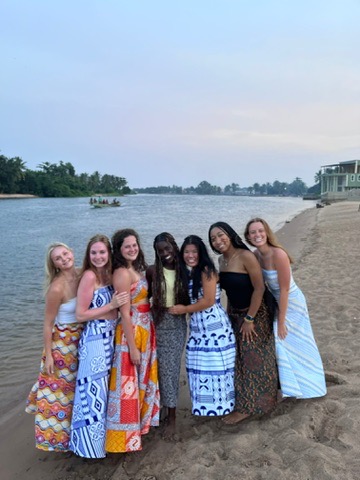
Aqua Safari Resort
July 11, 2024
Once accepted into the Ghana Service-Learning Program, students attend a series of orientation meetings in the States that spark excitement, nerves, eagerness, among a basket full of other emotions. But the second that Dr. Anderson mentioned we would have one free weekend off, and that many students in the past visited Aqua Safari Resort, the countdown was on until we were able to rest and relax there as well.
Aqua Safari boasts numerous amenities that, two weeks into our work in Ghana, we were practically drooling over. Perhaps the most fun was a group boat ride to Crocodile Island, a little island where we were able to hold a baby crocodile and a python. We were also able to watch an adult crocodile feeding and observe monkeys. The boat ride itself was also a fun time, with everyone laughing and singing and aweing over the beautiful houses that lined the inlet of the river. When we arrived back to the resort we were itching to move around, so a competitive game of beach volleyball ensued. After expending some energy we were all ready for the relaxation that Aqua Safari promised, and we dispersed into small groups to nap in the sun or the shade, or get a massage or mani/pedi from the salon. With everything that Aqua Safari had to offer, without a doubt my favorite was the food. Buffet style meals with perfectly made local food and the most delicious fruit I’ve ever had. Dinner also served as a fun reason to get dressed up and wear our custom dresses in African prints, a pleasant change from our everyday uniform of blue scrubs. Leaving Aqua Safari we were all feeling rejuvenated for the next two weeks of hard work in Ridge Hospital in Accra.
-LB Mason

Don’t or Debt?
July 11, 2024
When being treated in the United States, the patient has little choice. Suppose the care provider feels the patient needs a specific test or medication during their hospital stay. In that case, that is what the patient receives; at the end of their stay, they will receive a bill for all the care they received - which usually adds up to a substantial amount of money that commonly sends Americans into debt. While shadowing in various wards throughout Ridge Hospital, including labor and delivery, maternity, and NICU, I found that doctors strongly advise prescriptions and treatments to the patient. However, it is up to the patient whether they want that treatment, usually based on the price, which is an interesting reoccurring theme - especially compared to the United States.
My initial perception of the Ghanaian financial treatment process was quite positive. I was amazed that the country was so aware of some of its people's economic situation, as they were insistent on avoiding putting their citizens in debt from medical bills. Although, I eventually got to see the reality of this situation in the maternity ward. There was a woman who unfortunately lost the baby at 27 weeks, so due to her degree of gestation, the woman required a hysterectomy. When performing any surgery, one must take some pre-operation medications. However, there was a delay in the woman's medications because the husband was not around to go to the pharmacy to see if the medicines were something they could afford. This delay could potentially lead to infections, complications, and even sepsis, as this woman required surgery to remove her baby that did not survive.
I still do not know if that woman ever got the necessary medication to have the potentially lifesaving surgery. However, this experience was crucial in shaping my perspective on the different approaches to medical billing between Ghana and the United States. Neither country has a perfect system; one leaves a patient in severe debt, and the other can put the patient at a severe health risk. As with many differences between the two countries that I noticed in this program, there is no wrong or right way—both have positives and negatives. This experience has profoundly impacted my understanding of global healthcare systems.
Lilly Tye

Amazing Teachers and Impactful Experiences from the Burn ICU!
July 11, 2024
To become a medical professional, it is so important to be able to learn and to get valuable experience. This is normally very difficult, though, for both the students and the teachers. For students, it can be challenging to find situations where we are welcome to help, as our lack of experience can cause us to be more of a burden. For teachers, it is difficult to break routine and allow someone who is still learning to be trusted with their patients. On Wednesday, at Ridge Hospital, this was not the case at all and I had the most amazing learning experience.
On this day, I was in the Burn Intensive Care Unit with my classmate, Regan. We did not know what to expect, but I immediately had high hopes when we were first brought there and everyone working in this unit was so kind and welcoming. We were given a tour of the ward and provided insightful answers to any questions we had. One procedure we learned about was the dressings of burn wounds that were cleaned and changed every other day. This was something I did not know much about, but I was eager to learn!
First, we were brought in to watch a dressing change on a young boy where we got to learn about the process of the dressings, which was very informative. Next thing we knew, we were the ones geared up, ready to help with the procedure. This was the most hands-on and impactful experience I have had while shadowing in a healthcare setting. We were able to complete a part of this procedure on our own, with the amazing guidance of the nurses and doctors working there.
Shortly after this, we were pulled away by the plastic surgeon on the floor to go observe the end of a skin graft for a burn patient, and the removal of a congenital duplication of a thumb on a 6 month old girl. These surgeries were so interesting in themselves, but the plastic surgeon was able to completely enhance this experience by continuously asking us questions, challenging us, and explaining everything he was doing. I was able to learn so much from him, and he really emphasized our learning by always making sure that we were there, that we could properly see the procedures, that we knew what was going on, and that we could ask all of the questions we wanted to.
This was such an amazing setting where all of the healthcare workers were not only willing, but excited to help us learn. I have never had this experience before, where I am sought out to be taught, instead of asking for it. It is truly professionals like these that make me so confident in my decision to work in healthcare. I am so grateful to have had this whole day at Ridge Hospital, and I will always value this experience I had. I hope to take what I have learned with me for the rest of my career, and that I may educate myself so much more, so I can influence other students like this in the future!
- Jolie Goldstein




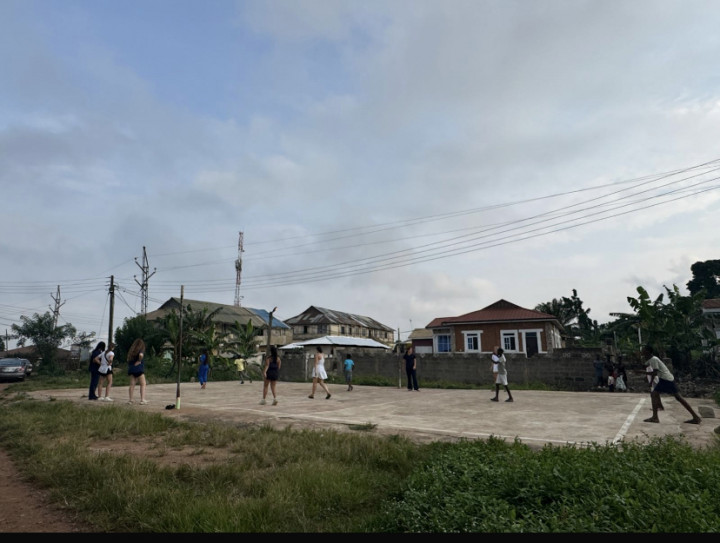
Becoming Closer with Our Community One Step at a Time
July 11, 2024
One of my favorite things to do after our days working in the hospital is to go on walks or runs in our community. On the way back from the hospital, we have about a two hour drive home depending on traffic. Despite the appealing sound of relaxing on the couch once we get home, we know that we are in need of some outdoor time and some movement. I love our pre-dinner walks because it has been such a great way to spend time discussing our days and to immerse ourselves within our community.
On our walks, the roads are always lively with people out and about and kids coming back from school and playing outside. Almost everyone we pass greets us with a beautiful and genuine smile that makes us feel welcome. Some people in the community love to spark conversation, asking where we are from and our purpose of traveling, and they appreciate our limited attempts to communicate in Twi. In addition to the wonderful people we pass, there is always a variety of animals on our walks including goats, dogs, chickens, cats, etc. The evening breeze and lively atmosphere of our surroundings encourages us to continue to explore the different areas around us. Our pre-dinner walks have proven to be a great way for us to immerse ourselves in the community and to decompress and discuss the unique experiences we had that day.
On Monday, July 8th, a large group of us decided to take one of these pre-dinner walks through the community. The weather was especially lovely this evening, with a light breeze and clear blue skies. We walked by a small, concrete platform where a few kids were playing soccer. LB and Britney asked if we could join them, and several of us hopped in. Playing soccer with these kids was more fun than I can put into words. Both sides had a great sense of teamwork, as we motivated and encouraged each other after each play. The kids showed off their impressive footwork and defensive abilities. When we realized he had to leave for dinner, we sadly broke off from our teams with hopes of playing again soon. This spontaneous twist to our walk was a reminder that some of the most special experiences in our lives are unplanned. Experiences like these remind myself how grateful I am to be here and for the welcoming presence of everyone we meet.
Peyton Macik



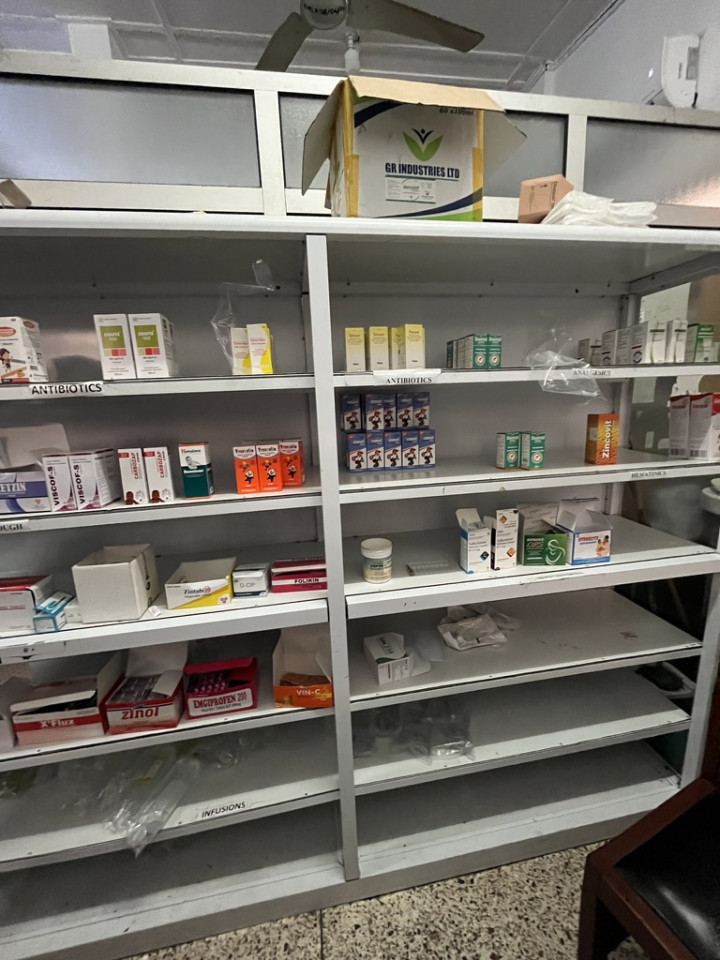
Cross Continental Pharmacy
July 05, 2024
This summer, I have had the unique opportunity of working in pharmacy settings across two vastly different environments: a small independent pharmacy outside of Athens, Georgia, and the Princess Marie Louise Hospital pharmacy in Ghana. These two experiences have expanded my understanding of global healthcare and have allowed me to note many differences in the processes of patient care between pharmacies in a developing versus a developed country.
In the United States, pharmacies utilize a sophisticated online verification system that helps to ensure precision and safety, with medications dispensed in labeled prescription bottles and financial transactions completed within the walls of the pharmacy. This seamless, technology-driven process contrasts sharply with my experience in Ghana this week.
At the Princess Marie Louise Hospital pharmacy in Ghana, the absence of an online verification system means that the entire process is manual, including ordering and inventory counts. This requires a greater vigilance to ensure accuracy of dispensing. Medications are verified only by the knowledge of the employee grabbing them off the shelf. The medication is then dispensed in its original packing, there are no prescription bottles in the hospital. Another notable difference is the process in which a patient receives their prescription. The patient must bring the prescription to the pharmacy window where an employee will tell them how much it costs. The patient then leaves the pharmacy, pays the bill elsewhere in the hospital, comes back with their receipt, and then receives their prescription.
The instances above are just a few of the differences that I noted during my short time involved in healthcare in Ghana. These contrasting experiences emphasize the disparities in healthcare systems between a developing and a developed country. Despite the lack of resources in Ghana, the dedication to patient-centered care is evident, highlighting the adaptability, resiliency, and problem-solving skills of the healthcare staff.
-LB Mason


How Doctors Think
July 05, 2024
I learned about the reasoning process of a physician from Dr. Nyarko. I was with a group of current medical students from Family Health Medical School in Ghana who were gathering case info on the patient to present to her and offer possible diagnoses and potential treatments. The future doctors had the opportunity to question the patient without the physician present, which would be a swift death sentence for an American physician’s medical license. An interesting contrast that I noticed between the Ghanaian and American healthcare systems, and how liability operates differently, likely because of views on freedom and autonomy and because of a lack of enforcement in the Ghanaian governing bodies. Differences in resources and opportunities, outcomes of the privatization of healthcare and a government that can financially sustain itself were sen throughout the day.
The medical students later presented their briefing information to Dr. Nyarko, during which she pointed out holes in their questioning within the context of these cases. Since these were nutrition cases, they must expand on the questions that are especially relevant. “How many times do you eat a day” is not enough to establish the quantity of food going into the child’s mouth. They need to ask the patient to run through food items and ask them to estimate quantity in order to get the full picture of the patient’s situation; hone in on what the patient is struggling with. Was the patient born at a healthy birthweight? If yes, are they on track for what they should weight according to that starting point? If no, why could this be? Perhaps the mother’s pregnancy or habits during pregnancy or reproductive abnormalities or medications during pregnancy could have led to this outcome. There are a million things that can bring about the presentation of any given symptoms, and a good physician would focus on both the common and rare possibilities: cystic fibrosis, tuberculosis, HIV, cardiac abnormalities, dehydration, hypoglycemia, hypothermia, shock. They must consider what tests to narrow down or eliminate potential options.
They must consider the social systems and situations that are acting on or have the potential outcomes this case pre, during, and post discharge. Will the mental health of the patient or caregiver change the likelihood of a sustained recovery? Does family life allow for a health emotional environment, and will the child’s environment nurture their health? Will recovery or residual medical conditions impact the child’s life pertaining to schooling and professional opportunities? Will the child be at risk for discrimination as a result of their conditions post-recovery?
Even from a 1-on-1 model of patient and physician, I found myself delving into aspects of public health that are essential to consider when treating a patient. Assessing potential public health risks is vital even on an individual level. Witnessing this process unravel was incredibly gratifying for me. I need to be in this role. I am pretty sure I don’t want to work with children. Rather, I want to work on mothers. I want to work with women and be that physician that provides for them in the ways our failed system couldn’t. I am excited to become a part of that world.
-Kennedi Scales

Shadowing In Emergency at the Children’s Hospital
July 05, 2024
This week, our group got to shadow at Princess Marie Louise Children’s Hospital in a variety of different specialities and wards. This week served as a way for us to explore different career possibilities and see all that healthcare could offer to us. It was also a way to compare just how different the healthcare field of Ghana can be from that of America’s. I was fortunate to be able to visit a diverse selection of specialities this week, and they were all extremely insightful and interesting. However, our of all the specialties I’ve visited this week, I think emergency has been my favorite experience so far.
Shadowing in emergency was particularly interesting to me because of its faster pace, more diverse cases, and unique protocol. Shadowing Dr. Olsman around the ER definitely gave me a deeper understanding of the unit and I saw a lot of things that really surprised me. Compared to the other units, the emergency room was always moving. The doctors always had some sort of task to do, whether it be charting, rounding, or taking vitals of new patients. I liked the busyness of this unit compared to the other ones I shadowed because I felt like I was always able to absorb new knowledge. There were also a lot more variety in the cases I was able to observe. From observing vitals taken on 12 day old newborns suffering from anemia, seeing a NG tube being placed down an 8 week old’s nose, and to seeing a 6 year old struggling against severe malaria, I was able to get a wider sense of what pediatrics looked like in Africa. There was also a lot of differences from this hospital to ones in America that were particularly noticeable in this department. I thought it was interesting that the doctors conducted the rounding and wrote all of the charts on their own. In America, it seems like quickness and efficiency are core values, which creates positions like scribes that I haven’t seen yet in Ghana. I also saw that the children hospital seemed much more resourceful than American hospitals. I saw a C-Pap machine that used a plastic water bottle and tourniquets being made from plastic gloves. Overall, this week of shadowing has been amazing. It’s wonderful to see where I’ll be in a few years and inspiring to see healthcare professionals working so hard with the limited resources they are provided. I definitely feel more energized about my future career thanks to this week!
-Reesa Schroeder

Assisting in Surgery!
July 04, 2024
We spent this past week at the Princess Marie Louise Children's Hospital. On Wednesday, I was in the surgery unit and I got to observe 3 surgeries, and scrub in to assist in one! I prayed for God to provide me with this opportunity, and He came through as he always faithfully does.
The first surgery I got to observe was a hydrocelectomy. The point of the surgery was to remove a hydrocele, or a fluid-filled sac; Basically, the little boy had too much fluid built up in his scrotum. The second surgery was a right inguinal hernia (a right herniotomy).
The surgery I scrubbed in on was an umbilical hernia repair on a 7 year old boy. As the surgeon and staff were preparing for the patient, I asked the surgeon if there was anything I could do to help, such as pass him tools. He simply said yes, all I had to do was scrub in. One of the staff members taught me how to scrub in: 8 times on both palms , 4 times between the knuckles, 4 with your fingers scratching your palms, then 4 in your thumb line. He then showed me how to put on my sterilized gown and gloves. I stepped into the surgery room, sterile and ready to go! The lead surgeon instructed me to hold one of the scalpels to pull the patients skin in the abdominal wall. I was so nervous because I knew one wrong move could cause a disaster. I held the tool as steady as I could, fascinated by how the surgeon moved his tools in, out, and around the patient’s abdominal wall. I could feel the adrenaline running through my body, as I couldn’t believe I was assisting in a real life surgery on a real patient. I felt so grateful to be doing this once in a lifetime opportunity. The staff member who taught me how to scrub in took some pictures of me on his phone without me even asking, which I thought was really sweet. He said this was a once in a lifetime opportunity that should be documented and he was absolutely right.
I am so grateful to have been apart of changing someone's life for the better. I am also grateful for the exposure I was able to receive this week. It taught me new things about myself, sparking some new interests in me about what I may want to pursue as a career. This opportunity taught me the importance of always asking, as closed mouths don’t get fed and the worst they can say is no. As my mom always says, ask and you shall receive!
-Abisola Adedipe




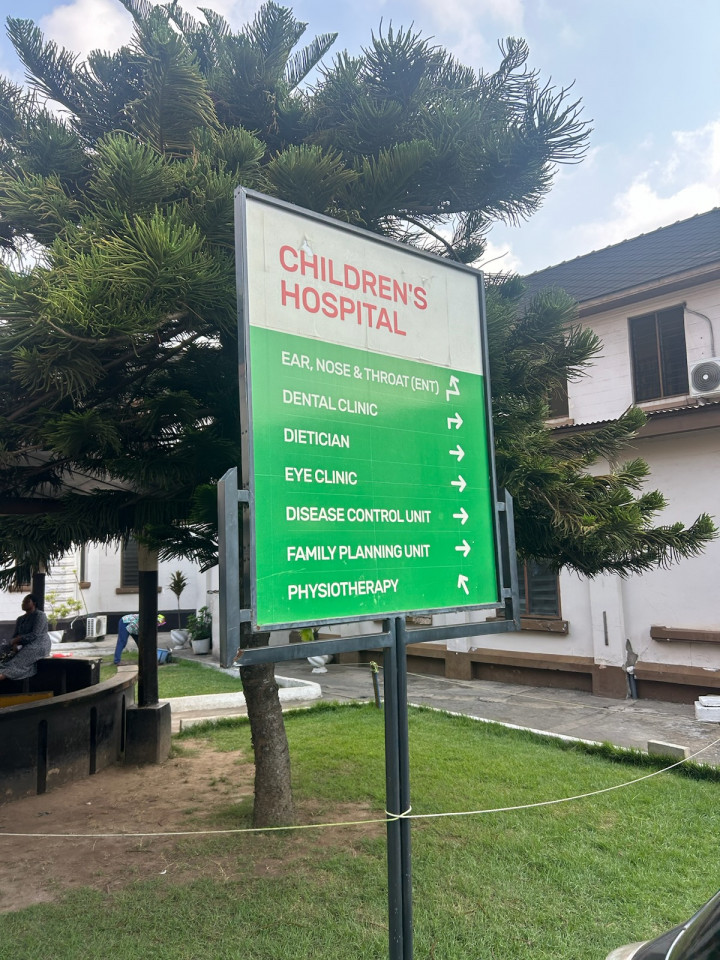
Gaining Insight on Malnutrition
July 04, 2024
This week we began shadowing at the Princess Marie Louise Children’s Hospital. PML has been running for about 99 years and started as a Nutritional Rehabilitation Center before expanding to accommodate multiple wards with various purposes. As a dietetics major, I chose to take advantage of the various nutritional-based wards and shadowed the malnutrition ward, the nutritional rehabilitation center, and the head dietician of PML. Although I have an idea of what I would like to do as a registered dietician, this week has shown me a whole other side to the field of dietetics.
Malnutrition is a very prevalent condition and commonly seen at the PML Children’s Hospital as well as in developing countries in general. There are three main forms of malnutrition: Kwashiorkor, Marasmus, and Marasmic kwashiorkor malnourishment. Kwashiorkor is characterized by severe protein deficiencies and nutritional edema. The name Kwashiorkor was first described by Dr. Cecily Williams who worked in the 1930’s at the Princess Marie Louise Children’s Hospital in Accra and associated it with a high carbohydrate and fats diet and an abrupt ending to breastfeeding. Marasmus is severe undernutrition with a deficiency in all macronutrients – carbohydrates, proteins, and fats – and is characterized by wasting. Marasmic Kwashiorkor malnutrition is characterized by nutritional edema in conjunction with wasting.
Throughout my time this week, I was able to get an in-depth education of the signs, causes, complications, and management of malnutrition, and severe cases at that, right from the source. Some common clinical signs of severe acute malnutrition include wasting, distended abdomen, sparse hair, angular and general dermatitis, paleness, sunken eyes, sunken fontanels, etc. Children aged from 0-5 are at the highest risk for developing malnutrition symptoms. Malnourishment can be assessed by BMI, height/length-to-weight ratios, and most commonly mid-upper arm circumference. Management occurs in three main phases: stabilization, transition, and rehabilitation. Stabilization refers to the management of any underlying medical conditions and use of a low-protein and low-energy, milk based formula, F-75, that aims improve metabolism until the patient is once again feeling hungry. The stabilization phase generally lasts about 2-7 days. The move to the transition phase is made when the feed from the stabilization phase is no longer enough, medical conditions are resolving, and at least 80% of the feed is being taken. In the transition phase a patient will consume a higher-protein and higher-energy, milk based formula, F-100, and the phase typically lasts for approximately 2-3 days. Throughout these phases, it is crucial to look out for complications such as hypoglycemia, hypothermia, severe anemia, heart failure, shock, and refeeding syndrome. Once a patient reaches the rehabilitation phase, they are discharged from the hospital and moved to outpatient care for monitoring.
Throughout my education prior to my time at the Princess Marie Louise Children’s Hospital, my classes have touched on malnutrition, but have not gone in-depth as the condition is far less prevalent in the United States. Each rotation I moved through this week presented an opportunity to connect with the staff and gain insight into the severity of malnutrition. The staff at PML works tirelessly to strengthen malnourished children and educate mothers on nutrition and preparing well-balanced and calorically-dense meals for their children. This week has shown me how many paths there are to explore throughout my field and has opened me up to an interesting and inspiring area of study that desperately needs attention.
Abby Haukapp


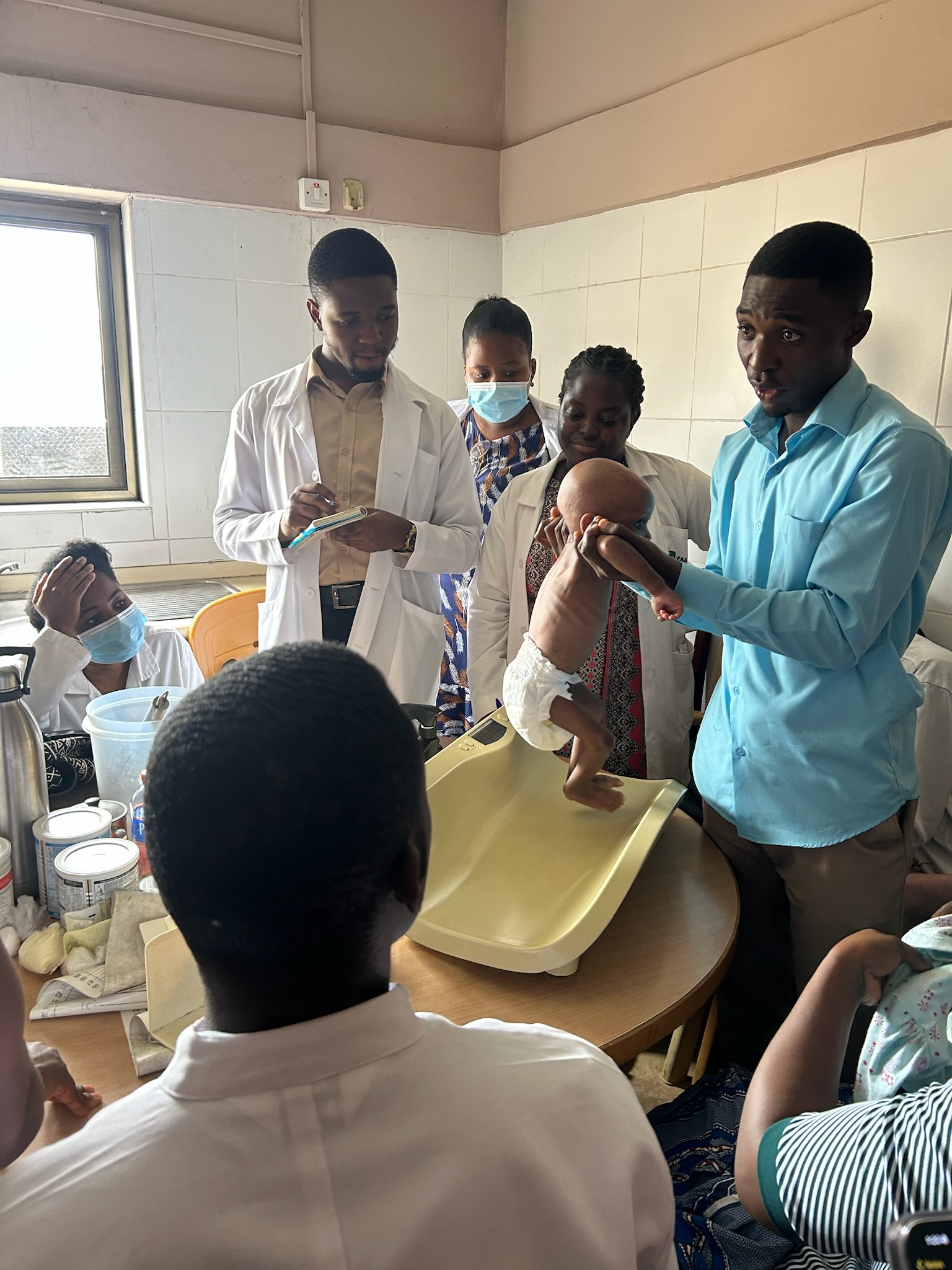

Baby Jemyma!
July 04, 2024
Today I spent the day in the Newborn Care Unit at Princess Marie Louis (PML) Children’s Hospital. There were four nurses on staff during the morning shift and their shift was from 8:00 a.m. to 4:00 p.m. but the nurse we were observing, Dianna, did not take a lunch break so she was able to leave @2:00 p.m. Dianna was extremely informative and taught Lilly and I about newborn infant care in Ghana. At Princess Marie Louis Children’s Hospital, the Newborn Care Unit only takes infants directly after birth, so the infant must be transferred from the hospital they were delivered in straight to PML Newborn Care Unit. For example, if the parents take their baby home on the same day the mother gave birth and had to take the baby back to the hospital, the infant will not go to the Newborn Care Unit since the baby has already been home. Although PML does not take the baby back to the Newborn Care Unit, the hospital will attend to the baby in the Emergeny ward. Other hospitals in the area with more resources, such as Ridge Hospital, are able to take in newborns to their Newborn Care Unit regardless if the child is coming directly from the hospital. Dianna told us the reason they have this policy is to reduce infection in the Newborn Care Unit by only taking infants directly from other hospitals.
There was only one baby in the Newborn Care Unit today, Jemyma. Jemyma is his mother’s name but since the baby has not had his naming ceremony yet, staff calls him “baby Jemyma.” Baby Jemyma is a five-day old, 36 weeks gestational male born with asphyxia and weighed 1.62 kg right after birth. Jemyma also developed Jaundice shortly after his birth. He had to be resuscitated and stimulated because he was not crying when he was delivered. Jemyma also had an Apgar score of three at the one-minute mark and a score of five at five minutes. The Apgar score is a test given to newborns in the first minute and again at five minutes of the baby’s life. This test checks a baby’s breathing effort, heart rate, muscle tone, and skin color. The scoring scale is from 1-10, any score lower than seven requires medical attention.
After five days in the Newborn Care Unit, Jemyma showed tremendous improvement and is scheduled for discharge tomorrow. His jaundice was treated by phototherapy. The nurses monitored him 24/7 and would feed him every three hours formula specifically made for premature infants. Every four hours the nurses checked his temperature, heartrate, respiration, skin color, and oxygen levels. Baby Jemyma now weighs 1.88 kg, has a stable body temperature and heartrate, and no longer has Jaundice. Nurse Dianna allowed me to hold Jemyma and feed him formula. I’ve never held a baby so small or young. I learned how to feed him the right way which is to put the syringe to the side of his mouth. She also taught us to make sure the baby was not vomiting after the feed and patted the baby to get his burps out. I'm extremely grateful for this experience and all that I was able to learn through nurse Dianna!
Britney Diep



Doctors Saving Lives Without Single-Use Supplies
July 04, 2024
This week, we spent our time shadowing and observing in Princess Marie Louise Children's Hospital in Accra! Each of us have been able to shadow different kinds of healthcare providers including dieticians, physical therapists, nurses, physicians, and more. Each day, we have all learned and experienced so much about healthcare in general, but also a lot about how it functions in Ghana specifically.
On Wednesday, some of us had the opportunity to shadow in the surgery ward. Once we arrived at the unit, we were brought into the active operation. It was intimidating going in at first, but all of the providers there were so welcoming and happy to answer our questions! This was especially true for one of the surgeons in the case, Dr. Victor Etwire. He is a pediatric surgeon who began his education in surgery in 2001 and has been actively working since 2007. He usually does not work at PML Children’s Hospital, but he takes time to come every Wednesday in order to provide his services for the hospital and for the children. He was also describing some of his other outreach work, and just seemed to love his profession so much!
We watched three different hernia repairs, each of them so interesting in their own way. In between two of the procedures, I went into the scrub room to watch their scrub-in process. As I helped the surgeons get ready for their next surgery, I began to ask about their use of reusable equipment, as the gowns were fabric as opposed to the single-use plastic ones you see in the United States. Dr. Etwire proceeded to explain to me the reasons for this difference which included the need for providing more jobs and carelessness of healthcare workers in the United States, but the main reason was the outrageous cost of single-use equipment.
Dr. Etwire discussed how the plastic, single-use products would not just be too expensive for the hospital to maintain, but also how the reusable items make it much more affordable for the patients’ families. According to the Journal of Pediatrics, an umbilical hernia surgery in the United states would likely cost over $8,000, but in Ghana, according to Dr. Etwire, it would cost less than $200 for the whole process. There is obviously a difference in the American versus Ghanaian economies which leads to different price points, but even with this consideration, this is a drastic price difference. Based on what I have learned, this seems to result a lot from the resourcefulness and hard work of so many Ghanaians, which is so admirable.
It was so interesting to get to learn about these contrasts and new perspectives. Shadowing in the medical field can always be a tad bit scary, but people like Dr. Etwire make it such a great experience! I cannot wait for what else is to come!
-Jolie Goldstein
Neonatal Jaundice and Phototherapy
July 04, 2024
On Tuesday, Peyton and I shadowed nurses in Princess Marie Louise Hospital’s newborn care unit. There were two infants in their care, both of whom were doing very well, so we had the opportunity to ask many questions and hear many answers. Diana, a nurse in the unit, encouraged our curiosity and happily facilitated insightful conversations. After we asked a question, she encouraged us to research the process or concept. She then asked us to explain our findings and she’d fill in gaps to supplement our understanding. Through this method, I learned the science behind neonatal jaundice.
One of the infants in the unit slept under a bright blue light in an incubator. We asked about the reason for its use, and Diana informed us phototherapy is a treatment for jaundice. I previously knew clinical signs of jaundice and its presence could signify liver issues, but I didn’t understand what was occurring in the body. In a healthy system, bilirubin is produced when the liver breaks down old red blood cells. The liver releases the substance to be part of bile. In infants born prematurely, the liver may not be fully grown and processing optimally. Bilirubin can build up in the blood, which can lead to neurologic dysfunction. The blue light we observed breaks bilirubin down into compounds the body can process and rid itself of.
There are two types of jaundice of concern for these small patients, which are distinguished by duration, timing, and cause. If symptoms appear within 24 hours after birth, jaundice is considered pathological and indicates an underlying condition. If symptoms are absent until 3-4 days after birth, jaundice is considered physiological. This is associated with external factors such as separation from the mother and is prolonged by insufficient feeding, as breastfeeding helps the infant regulate fluids. The young infant present was receiving treatment for physiological jaundice. Learning the distinctions and why phototherapy is used for this patient was very interesting and I enjoyed the challenge of healthcare for such tiny bodies.
-Amelia McCorvey

The Importance of Family
July 04, 2024
Over the past few days at Princess Marie Louise Children’s Hospital, I noticed how many mothers, grandmothers, some fathers, and other guardians were present while the child was being treated. Whether the child just came in or has been in the hospital for days, there is someone from their family with them. During my time in the above 6 months ward, I realized the family member spent all their time in the ward including every meal and even showering. When the child would sleep, the mothers would also nap in a chair next to them. Each patient’s family was also given a cart for storage and in them were personal items like a change of clothes, snacks, toys for the child, and shower products.
The nurses heavily relied on the family member for updates on the status of the child. The nurses needed to know how the child slept overnight, if the symptoms improved, and if they had eaten. The family member would answer these questions and then we were off to see the next patient a few steps over. Nurse Noora told Regan and I that sometimes the mothers lie to her in order to be discharged earlier, so she has to watch their body language and facial features to see if they are telling her the truth. It then came time for medicine, so the nurses set up in the middle of the room and one by one the patients and their guardians would come up to the station. The nurses took quick measurements of their temperatures and pulses, and then drew up the medicines. If the medicines were administered through the IV, the nurses would do it, but if it was a syrup or pills, they handed them to the guardian to give to the child. This initially surprised me allowing the guardians to give the medicine, but Nurse Nora told us it saves them so much time doing it this way and since they pour the medicine from the bottle, they know it is the right amount. I was blown away by how much trust and communication there was between the family and nurses at this hospital.
My favorite part about the above six months ward was how the family members, especially the women, interacted with each other and us. One mother took charge pounding Regan and I with questions about America, where we had been in Ghana, what foods we had tried, and how long we were staying. She was giggling every time we tried to answer her in Twi and the rest of the family members would join in laughing. She then informed us she was one of the few people in the room who understood and spoke English well which is why she was the main person talking to us. She also told us they spend a lot of their time telling each other stories, listening to music, and helping each other out. This was the best way to distract them from the reality of how long they had been in the ward. Another woman was the “reader”, and she reads novels, scriptures, and other stories to the room at night to keep their spirits lifted. I was moved by how much each person cared not only for their child, but the others in the room with them. No matter what ward or section of the hospital I was stationed at, this sense of community and care seemed to follow!
-Schuyler Boyer

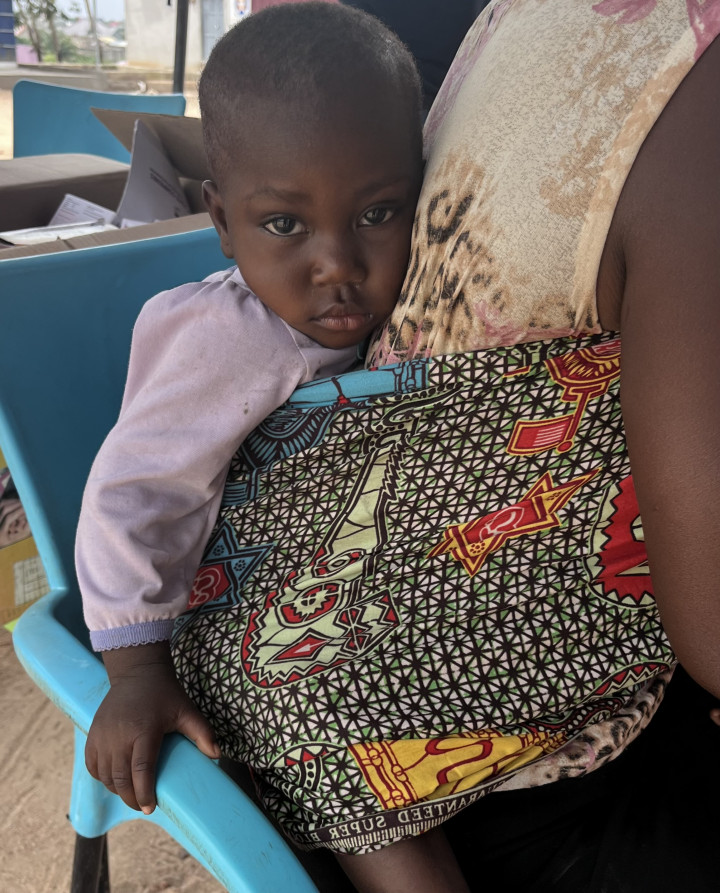
Baby Carrying Techniques
July 04, 2024
It’s fascinating how different cultures approach the task of carrying their babies. In America, a baby is expected to be in a carrier that also functions as a car seat. In Ghana, mothers strap their babies and toddlers to their backs with cloth. I first noticed this unique way of carrying a baby on an airplane, where a father was using the same approach as seen in the Ghanaian community. At first, I just thought it was an overwhelmed father who was getting creative. But upon landing in Ghana, I saw babies carried like this everywhere, sparking my curiosity.
My initial reaction to the baby-carrying method in Ghana was one of curiosity and concern. I wondered about the potential health implications, as it seemed the baby was lacking neck support. This led me to seek answers from a physical therapist I was shadowing. The therapist’s explanation dispelled my concerns and opened my eyes to a new perspective. She clarified that this carrying method, which begins when the baby turns forty days, actually promotes neck strength earlier than the American approach.
After more research, I found that this process of baby carrying encourages bonding with the parent and baby through close physical touch and respect and preserves a traditional practice. This baby wrapping technique has been used to hold babies for years and is a testament to the resilience of cultural traditions. It is the traditional way and has withstood the change of time. As the saying goes in America: “If it ain’t broke, don’t fix it.”
Lilly Tye

A Night Out In Cape Coast
July 04, 2024
Last Friday, we wrapped up our community nutrition and health screenings early to set forth on an adventure to Cape Coast. Our itinerary included visits to the historic El Mina and Cape Coast Slave Castles, followed by a fun canopy walk at Kakum National Park. I was excited to go on more adventures, but I think I could speak for everyone when I say we were absolutely drained. We settled into a hotel for the night, debating where to dine. Dr. Anderson suggested Hutchland City in Abura for its lively atmosphere with live bands, but with exhaustion looming, half of us opted to stay in, finish work, and turn in early.
Unexpectedly, due to receipt mishaps, we found ourselves at Hutchland City for dinner. The vibrant city lights and bustling restaurants set the stage, and we secured a spot just across from a big stage. It was empty when we first arrived, but as soon as our food arrived, the neon lights turned on. I savored tilapia and fried rice as reggae tunes filled the air. It compelled us to sway along, and it added a nice touch to our dinner. After dining, our driver, Francis, was ready to bring a handful of us back to the hotel. I was still undecided, but I accompanied Abisola to the washroom in the meantime while I thought about it.
When we returned, we were surprised to find our bus gone. It wasn’t the worst thing in the world, but we were definitely trying to make it to the hotel in a timely manner. In the meantime, we rejoined our group who encouraged us to sit down. At this point, the band was on stage singing, and they sounded really good; I couldn’t help but dance from our seating area. They had this infectious energy that had Dr. Anderson going up first to dance on the dance floor. Everyone else slowly followed. Once we got into the groove, there was absolutely no stopping us. We laughed all night long and took many videos — I like to think we were celebrating the conclusion of a week dedicated to community service.
Strangers joined our dance party, teaching us new moves, while the lead singer serenaded us. Then, Dr. Anderson was able to request a favorite song for us. It turned out to be the highlight of our program—a spontaneous, unforgettable night made even more special by the delights of our group.
Missing that bus turned out to be a good thing, allowing me to forge cherished memories in the company of incredible friends.
-- Regan Leland



KMC: Caring for Premature New Borns
July 04, 2024
On Tuesday, July 2nd, Amelia and I shadowed in the New Born Care Unit (NBCU) at the Princess Marie Louise (PML) Children’s Hospital in Accra. I started out the day with little knowledge about the care of new born and premature babies, but I was eager to learn and experience what this area of care entails. We talked a lot with one of the nurses named Diana who encouraged us to ask questions and research the topics we were interested in. She taught us about the different reflexes that nurses use to test certain abilities of the babies. We also learned more about Jaundice which is frequently seen in babies due to their developing liver that cannot yet process all of the bilirubin circulating in their blood.
Among the different aspects of new born care that we learned about was the Kangaroo Mother Care (KMC). This practice involves skin to skin contact between the mother and her premature baby. KMC is ideal for healthy premature babies weighing under 2.5 kilograms and for healthy mothers that are able to spend extended periods of time at the hospital. For KMC, the baby should wear just a cap on the head and socks to protect the baby and a diaper, and the mother should be bare chested. The baby is placed in a frog-like position between the mothers breasts, with his/her arms on the mother’s breasts and his/her legs wrapped around under around the chest. A cloth sheet is placed behind the baby to prevent the baby from falling, and usually a KMC cloth is tied around the mother’s body twice to secure the baby. PML Children’s Hospital does not have the resources for the KMC cloths, so the hospital uses the mother’s cloth instead.
KMC has so many benefits for both the baby and the mother. For the baby, KMC provides a warm environment due to the mother’s body heat that helps the premature baby to regulate his/her body temperature. KMC also encourages the baby to breastfeed from the mother, resulting in weight gain to help the baby reach a healthy weight. The baby improves his/her respiration by mimicking the mother’s rise and fall of her chest. Along with improving all of these crucial areas, KMC lowers the risk of noscomial infections and improves neurological development.
I became so fascinated with KMC because not only does it benefit the baby, it also has many benefits for the mother as well. Giving birth to a premature baby can be very stressful on the mother. The mother may have confidence issues when handling the baby due to this stress and the small size of the baby. KMC can help the mother by empowering her and promoting bonding between the mother and child. During KMC, the mother spends extended periods of time holding her baby, which makes her much more confident and helps her to feel closer to her baby. This type of care also promotes lactation which can sometimes be an issue for mothers of premature babies.
Typically at institutions with ample resources, the mother stays at the hospital in a room with the baby for KMC. Fathers can also bond with the baby through Kangaroo Father Care (KFC) in which the baby is attached to the father in a similar manner. The PML Children’s Hospital lacks the room and resources for this certain level of care, so for KMC, the mother typically comes to the NBCU every 3-4 hours and stays to do KMC for about 30 minutes to an hour.
This type of care is very interesting to me because KMC is a natural and cost effective method that provides many benefits for both the premature baby and the mother. It is important for hospitals with limited resources to provide the best quality of care they can while also considering the resources they have. KMC is a great example of how this hospital adapts to provide the best care possible for its patients utilizing the resources they have.
Peyton Macik
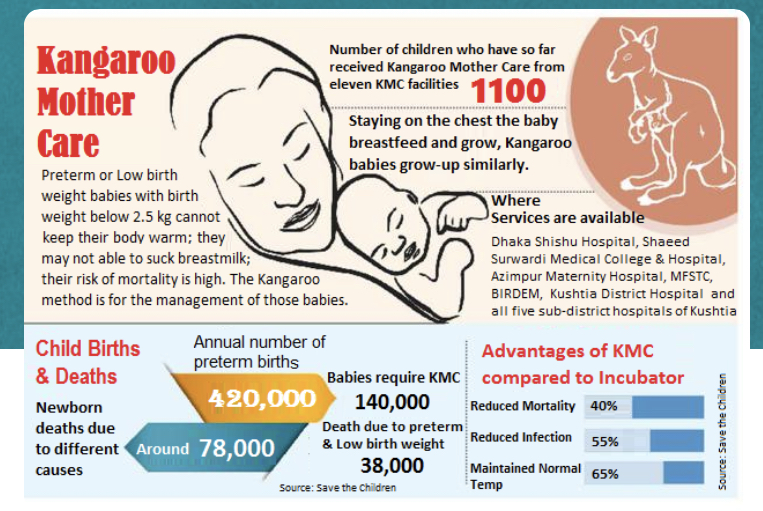
Princess Marie Louise Children’s Hospital
July 03, 2024
This week we transitioned from pop up health clinics to rotating within Princess Marie Louise (PML) Children’s Hospital. PML has been operating for 98 years in the heart of Accra, and sees upwards of 50,000 patients a year! We began our time in PML with an orientation from the head physician Dr.Nyarko. The various wards we work in include Nutrition Rehabilitation, Malnutrition, 0-6 months, 6 months and above, emergency, NICU, Pharmacy, Dietetics, Physical Therapy, and on Wednesday July 3 a select few of us got to witness various pediatric surgeries that only occur at the hospital twice a month!
I was fortunate enough to be one of the few from our group to be able to witness surgeries, as there was limited space to accommodate all 13 of us. I had the pleasure of witnessing Dr. Victor Etwire and the resident surgeon Dr. Jessica Dei- Asamoa. Both surgeons demonstrated expertise and finesse that take many years to develop, and it was an honor being able to see what I might be able to accomplish if I keep my head down and work hard. The leading surgeon, Dr. Victor Etwire was especially a delight, as he has been a surgeon since 2001 (the year I was born). He was cracking jokes with the nurses and anesthesiologist while simultaneously and meticulously operating on a patient with expert care and precision. After the surgeries were complete for the day, I picked his brain about what led him to become a pediatric surgeon. Through all the trials and tribulations he has faced, what led him to become a pediatric surgeon and still love his work to this day is “seeing the mother’s smile after a successful operation.” I am so grateful for this opportunity, and I can’t wait to continue learning here!
Rawad Basma


Gluten-Free in Ghana
June 28, 2024
Two weeks before I arrived in Ghana, I found out that I would have to go gluten-free due to a health diagnosis. For those who do not know, gluten is a protein naturally found in certain grains: where, barley, and rye. I understood that it would be hard to navigate in another country, let alone a developing country. When I first got here, I did not want to deal with it, and I thought I could take some anti-inflammatories and I would be good, although that was not the reality. My laziness in ensuring my health made me sick. I would have to be incredibly intentional in avoiding gluten while eating something nutritious.
Initially, I attempted to eat the food from the caterer and only consumed what I thought to be gluten-free. However, there needed to be a solution to assuming about the ingredients. For example, one day, I had cornflakes for breakfast, and I checked the ingredient list, and everything was good. A few days later, there was a different brand of cornflakes, and I just assumed that they would also be okay. I finished eating them, and the ingredients list was facing me. They contained barley extract and, in turn, gluten.
I also tried to get creative with my meals, such as buying from the store. I had the idea of going to the grocery store and getting gluten-free bread. I walked around the store for a while before I asked for help. I asked the worker where to find the gluten-free bread. I have to admit I understand that might have been a dumb question, although his reaction was unexpected. He started laughing at me and said, “Dumb American,” and walked away. This incident made me feel more isolated and added to the challenge of maintaining a gluten-free diet in Ghana. Despite this, I have been sticking with my gluten-free oats for breakfast. All that to say, I have been better at navigating having a gluten-free diet in Ghana; it involves lots of creativity and experimentation.
After some conversations with Dr. Anderson, I understand the need to understand what gluten even is in Ghana. My first thought was that it must be so hard for those who have celiac disease, gluten intolerance, wheat-gluten allergies, or other autoimmune diseases, as they are supposed to avoid gluten. Although I have noticed that allergies, gut microbiomes, and dietary preferences are not a concern in the community clinics this week, the main problem is not going hungry in Ghana. The cultural attitudes towards food and health in Ghana, where the focus is on not going hungry rather than specific dietary needs, add another layer of complexity to my gluten-free diet.
“Food is a political weapon… Africa’s foremost defense is a self-sufficient in food. Until we attain a substantial measure of freedom from food dependency, we are vulnerable to manipulate by the wealthier nations.” - Flt. Lt. Jerry John Rawlings.
Lilly Tye

Impacting Lives In The Gomoa Communities
June 28, 2024
Last week, we embarked on an incredible journey conducting community nutrition and health screenings in Ghana's Central Region. Our mission took us to five different Gomoa communities, offering vital healthcare access to those in need.
Nothing could have prepared me for the profound experiences and connections forged during this time. Previously, we attended a lecture detailing prevalent diseases in Ghana, which was eye-opening in itself. However, witnessing these conditions firsthand made my purpose abundantly clear. People of all ages greeted us—some with radiant smiles, others with weary eyes—each placing their trust in our group for care.
We meticulously measured height, weight, blood pressure, iron and glucose levels, and conducted cholesterol readings and A1C tests for those with histories of hypertension and diabetes. Collaborating with nurses and students, we also provided vision tests, ENT examinations, and malaria screenings. Despite language barriers, our determination remained steadfast: to give back and instill a sense of health security.
Engaging with patients in broken Twi was immensely rewarding; they appreciated our efforts to ensure their comfort. Among the highlights were interactions with children and teenagers, sharing stickers and coloring books, and exchanging stories that enriched us all. Each day's end left me yearning for more time to connect and assist.
Though filled with joy, moments of reflection were poignant. Treating young children with wide, innocent eyes touched me deeply. It saddened me to witness signs of conditions like sickle cell disease and poor air quality, evident in some with low iron levels and jaundiced features. Adults too faced challenges, from unmanageable glucose levels to high blood pressure and chronic pain.
Our impact was profound. Many patients lacked prior medical history, underscoring the critical need for these screenings. I'm deeply grateful to my team, our medical partners, and especially the patients who entrusted us. This experience has illuminated the healthcare challenges in Ghana and reinforced my commitment to serving vulnerable communities with determination and compassion.
I am more than excited and ready to continue this amazing journey!
— Regan Leland
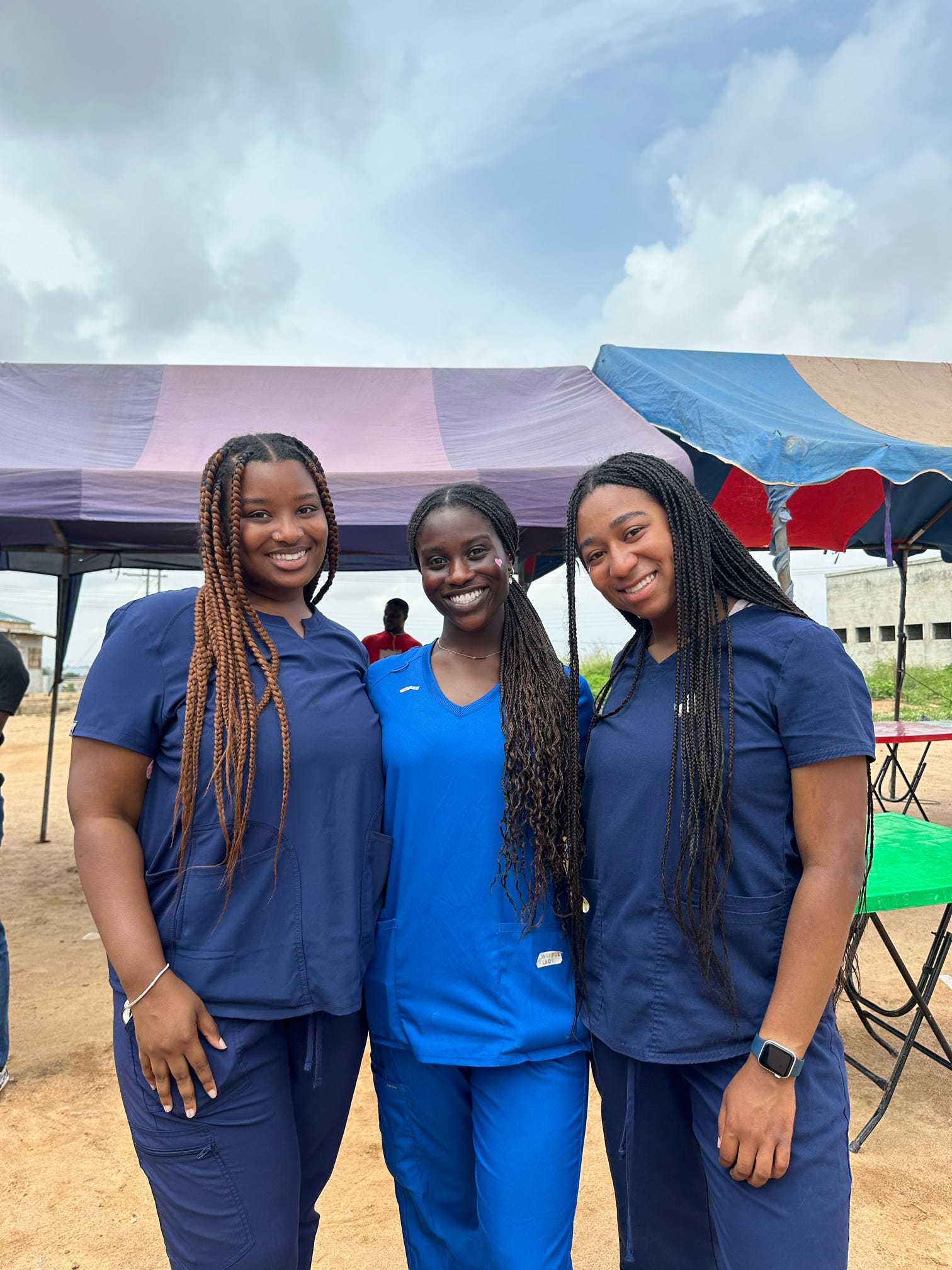



An Impactful Week in the Gomoa Region of Ghana
June 28, 2024
This week in Ghana, we embarked on a journey to the Gamoa region to set up mobile community health clinics. Each day, we traveled to a different part of the Gomoa region to serve the local citizens. Our screenings consisted of patient information intake, height and weight, blood pressure, blood testing (hemoglobin, glucose, and A1c) and a station with Dr. Anderson, in which the patients received advice on how to maintain and/or better their health. We also partnered with local vision, ENT, and malaria professionals as well. I learned so much this week, and it feels so meaningful that we were able to serve around 500 people.
We started off the week with a visit to the chief, welcoming us into his community. There, we received a special welcome from him and his elders, in which we introduced ourselves and got to observe a ceremonial prayer. Shortly after, we set up our clinic near by.
One of my classmates made a schedule for us, allowing us to rotate through all the stations. My favorite rotation of the week was the blood station, at which I first observed and put glucose, hemoglobin, and cholesterol blood tests into the machines and recorded the patient’s results. After observing for a while, I rotated to being the finger pricker. It took me a little while to get the hang of it, especially because my first patient had very calloused hands (a commonality among a lot of our patients). After a few patients, I felt like a pro and was pricking fingers and collecting blood at ease. My classmates and I passed out stickers as a simple way to lighten the mood after being pricked, which can be daunting, especially for children.
During our screenings, patients often reported a lot of the same symptoms. Some popular ones were waist pain, back pain, migraines, and just general body and joint pain. I believe this could speak to the amount of heavy lifting and labor that are patients participate in. For example, we often see people carrying heavy crates on their head while walking, which can definitely contribute to the pain our patients feel in their bodies.
We also often heard of high blood pressure, also known as hypertension. The diet here plays a big role in this, as many citizens often eat very salty foods such as fish and kobe. We also had a lot of patients report high blood sugar, often known as diabetes. Some ways to reduce blood sugar levels are to reduce sugar and starches (such as banku, fufu, and yams here in Ghana). Some ways to reduce high blood pressure are to increase vegetables, fruits, and beans, along with physical activity.
Additionally, we often heard symptoms such as fever, diarrhea, fatigue, and body sweats. In the U.S., these are often symptoms of the flu but here in Ghana, these symptoms often translate to malaria.
One of my highlights during our screenings was learning more Twi, one of the main languages spoken in Ghana. At the beginning of the week, I only knew the basics of Twi such as “Medase” and “Akwaaba”, which translate to “Thank you” and “Welcome” in English. By the end of the week, I found myself more immersed in the language. I now know “Maa chi”, “Yo fre wo sen?”, “Ete sen?”, and “me pacho” which in English translate to “Good morning”, “What is your name?” , “How are you doing?” and “Please”. I was able to pick up these phrases through my interactions with various local patients and officials. Everyone was very helpful when it came to teaching us the language, although people often laughed (in good heart) when they heard our pronunciations. It felt really nice being able to communicate with my patients in their language, even if in just a few words. At times where I didn’t know how to translate what I wanted to say, I would either ask an official to translate, or use my hands and feet to communicate what I wanted to get across. I appreciate the fact that despite language barriers, humans are able to communicate with our bodies, even if it’s just a simple smile.
Our dinners in Gomoa this week were both delicious and insightful. We enjoyed both local cuisines, and a few tastes of home with some American food. It’s interesting to see how American foods such as KFC can be seen as a luxury here in Ghana. We talked about how this is a result of globalization and the way the world portrays the Western world as a “standard”.
As we round up our last day of community health screenings, I’m in awe the help we were able to provide, along with the knowledge I gained. We were able to serve around 500 people this week, and it felt very meaningful and impactful. I’m very proud of myself and my classmates, as we all stepped up as leaders and played our individual roles to work as a well-oiled machine. I can feel myself growing not only as a student, but also as an individual. I anticipate our next few weeks, as we all continue to grow and learn as individuals, students, and aspiring healthcare professionals.
-Abisola Adedipe







New Friends in a New Place
June 28, 2024
This week we spent each day in different areas of the Central region of Ghana providing free health and nutrition screenings to the members of the community. Every day we saw over 100 patients, rotating them through various stations including a pre screening history, height and weight station, blood pressure, blood station, vision, ENT, malaria testing, and finally an overall health consultation. The blood tests available were blood glucose, hemoglobin, cholesterol, and A1c. It was a very successful week in the communities, and we were able to provide many people with medication and each patient left with the information on how to better take care of themselves. Because this was such a multifaceted clinic, we were not able to conduct each screening on our own.
Through this experience we met many wonderful people. Honorable Kojo, a man currently in the election for Parliament, was very kind to us during our time in the communities. He bought us waters and snacks and his security team was with us each day to ensure we were not bothered during our work. The men on the security team quickly became friends with each of us and through asking many questions we learned a lot about each others culture. Robert, an optometry student, and Gideon, an optometrist, ran both of the vision screenings. They joined us for dinner many nights during the week and again we shared pieces of America and Ghana with one another. Michelle, a nurse helping with the malaria testing, joined us each day as well. Sam joyfully helped with translating during our prescreening consultation.
Each of these people played an important role in ensuring patient centered care. They also played an important role in the advancement of me and the other student’s Twi, a common language in Ghana. One thing in life I hope to never stop doing is making new friends, especially ones that make the world just a little bit smaller. I am grateful to have worked alongside such compassionate and genuine people throughout this week. While the work we are doing is rewarding regardless, it is nice to be with people that also make it fun. I will miss each of them dearly.
-LB Mason
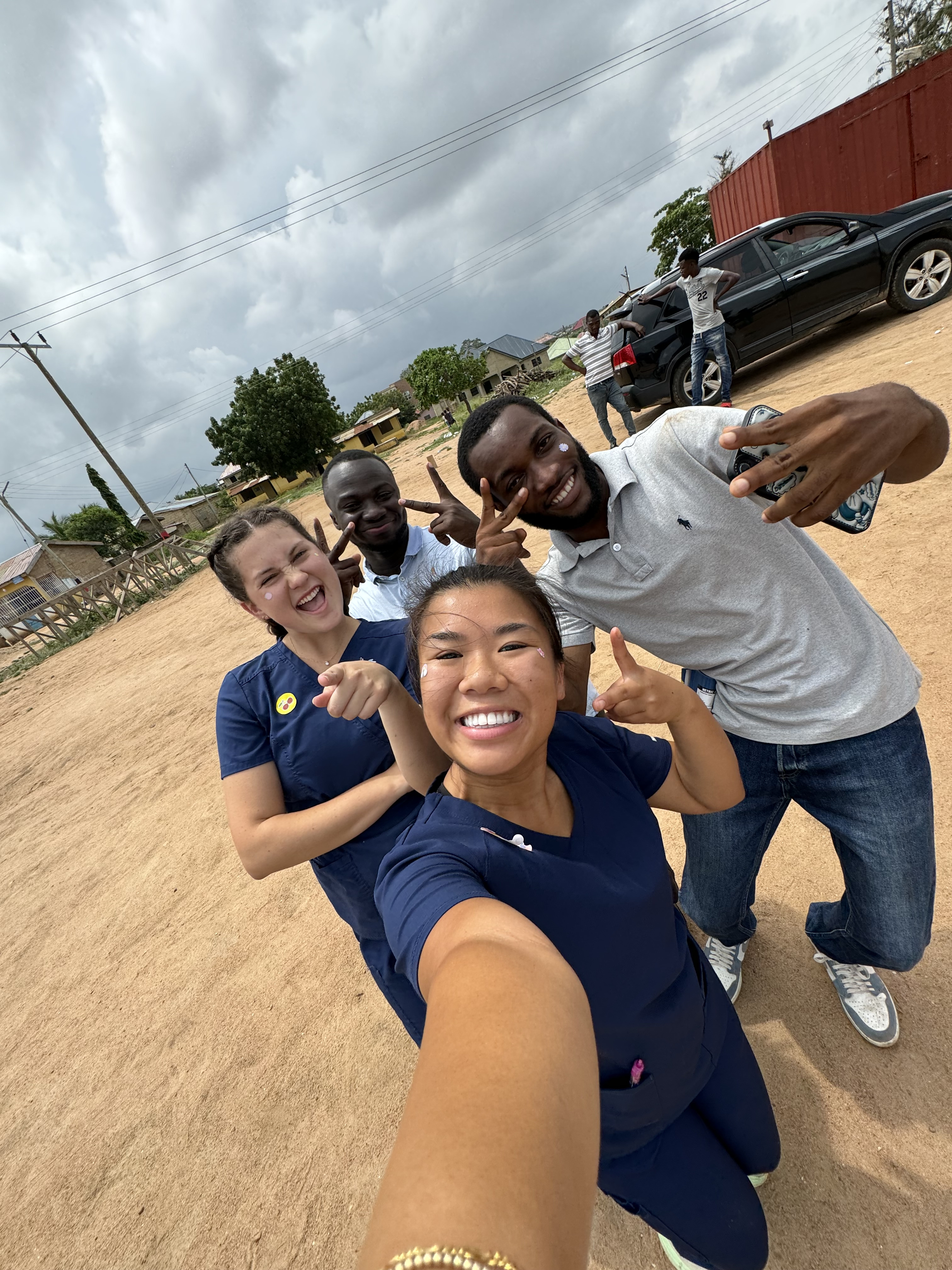



Meeting the Chief of Gomoa Fetteh
June 28, 2024
The event that stood out to me the most this week was meeting the Chief of the Gomoa Fetteh village on Monday before preforming our screenings. Dr. Anderson informed us it was customary to meet with the Chief and get his blessing before entering the area. None of us knew what to expect because we do not have any similar customs in America, but we were excited for the most part.
We were able to perform our screenings because of Dr. Anderson’s connections with the Honorable Kojo Asemanyi. He is currently campaigning to be a member of parliament here. He sent a group of men that work as his guards to meet us at our hotel on Monday to be our escort to the Chiefs Palace. We pulled up to a beautiful blue Palace that overlooked the ocean, and it had a statue of the Chief in the center of the driveway. We got out of the van and sat in chairs on an outside patio. Dr. Anderson informed us it was disrespectful to cross our legs when the Chief enters, so we had to hold each other accountable. After a few minutes, a guard was notified that the Chief wanted to meet us inside his palace instead. We made our way to a meeting room and had a seat.
When the Chief entered the room we all stood until he sat. He had a speaker that spoke to us and asked what our purpose of interning the village was. Honorable Kojo spoke on our behalf and then Dr. Anderson added a few words. The Chief then gave us his blessing and thanked us for choosing his village for our health screening. We all shook hands with him and then headed outside for a ceremony. The Chief Priest recited a prayer and poured a drink on the ground offering it to their ancestors and deities. I was amazed at the ceremony and how they took time to pray for us and those we were helping. We took a picture with the Chief and then we set off to the worksite!
- Schuyler Boyer



Learning, prick by prick
June 28, 2024
This week we began our work as we traveled to 5 different communities throughout Gomoa East to perform nutritional health screenings on local participants. We record height, weight, BMI, blood pressure, hemoglobin levels, and glucose levels. When a patient falls within a certain criteria - high blood pressure (140/90 & greater), diabetes, BMI over 35 - we additionally measure their cholesterol levels and, those with diabetes, their A1C levels. The A1C levels will tell us a diabetics sugar levels over a longer period of time versus the generic glucose measurement. We have even been lucky enough to have local Optometrists and ENTS come out and give the patients a general checkup as well.
In order to record the hemoglobin, glucose, cholesterol, and A1C levels, we have to perform a finger prick on the patients. Personally, I tend to, um, freak out anytime someone brings a needle near me with the intention of poking me with it. Yes, unfortunately, I am that 21 year old patient who may or may not still tear up over a shot. This being said, I thought there was no way I would be able to perform a simple finger prick. Before beginning our health screenings we practiced the procedures and walked through our rotations. Luckily, everyone was very patient and helpful with each other, allowing students to prick other students for practice. So, by the time we saw patients I was able to be calm on the other end of the needle and reassure those who were frightened by needles as I had once been in their shoes.
Being able to do these nutritional health screenings not only helps the locals, but also opens up a multitude of opportunities for us to learn and grow. Learning in a classroom setting is greatly beneficial, but learning in an application based setting is influential. Most of the locals speak Twi, so at times patient care can be tough, but the people around us are teaching us their native language and helping us to overcome these barriers. These lessons I am learning will take me far in my career as well as my personal life and I can’t wait to continue to the the journey at the PML Children’s Hospital and Ridge Hospital
Abby Haukapp




Making New Friends
June 28, 2024
This past week we traveled through central Ghana and held health and nutrition screenings at five different spots in the region. We would arrive to an area, set up, assign roles, and rotate stations every hour. Our rotations consisted of taking patients’ height and weight, BMI, blood pressure, blood glucose, hemoglobin levels, cholesterol (if the patient was hypertensive), A1c, data input, and at the last station Dr. Anderson would counsel each patient. The patients in every community were cooperative and would always welcome us with a warm smile. Despite the language barrier with almost all the patients, we were still able to connect and build relationships with them.
Before arriving to the community screenings, I didn’t know that we would be working with multiple other local healthcare providers. We worked with the same people all week which included an ENT doctor, optometrist, a few nurses, and even a security team to ensure our safety! These new faces quickly became my friends. I got to learn about their story, culture, family, and what life looked like for them in Ghana. My new friends would help me with my Twi and help me communicate to the patients. In return, I would make them laugh, share new dances, and tell them about my life in Georgia. After only five days, I felt so comfortable around them and honestly wasn’t ready to leave. Gideon, the optometrist on our work site, is the youngest of three brothers and loves a good sweet treat. Louis, a member of the security team, has a 12 year old son and the two of them are best friends. These are just small snippets of the things I got to learn about the people I got to meet this week. There is a continuous pattern of kindness that was shown from everyone we worked with. Akwaaba, which means welcome in Twi, has been one of the words I’ve heard the most from the locals. I am thankful for a new community that has kindly welcomed me into their homes and lives!
Britney Diep




Carbohydrates
June 28, 2024
Both the United States and Ghana face obesity, but they operate in different ways. In the United States, for the middle and upper classes, access to healthy foods is not the issue. Rather, it is restraint. In the US, bigger is better. Thus, portions are huge. The FDA regulations are weak due to corporal incentive to make a profit. Thus, American food restrictions are nowhere near the standard of the rest of the western world. This makes it more difficult to eat a clean diet, despite making a genuine effort. For the American working class, lack of education, lack of economic resources lead, and the common need to work long hours to accommodate for the high cost of living in the US makes it difficult to resource sustainable meals. Time is money and fast food is fast and cheap. Worrying about what one is putting in their body is not of the utmost concern—the concern is survival. A wide profit margin takes priority over nutrition, and thus, Americans live off of processed, dense calorie foods.
The typical diet of the American affluent is often associated with eating healthy. The rich, notably on the American west coast, boast about their clean diets full of quinoa and organic produce. Eating completely clean diets or subscribing to lifestyles such as veganism are largely inaccessible and unsustainable for the majority of America. Frequenting fast food is not something that rich people should do; unless it’s something with slight class like In N Out, something with a significant cultural significance like Chick-fil-a, or something with tradition like Waffle House in Athens, GA on a late night.
During my first and second year of college, I had a dining plan because I lived on campus. I wanted to improve my health and in particular my nutrition so I tried to frequent salads and never drink soda. I had difficulty restraining myself when the temptation of a daily chicken sandwich and fries stared me in the face each time I went for a meal. The grandiose dessert bar taunted me every time I left.
Because I have a family history full of autoimmune disease, high blood pressure, and diabetes, I make a very conscious effort to eat clean in the United States. I nearly exclusively cook for myself, and I have strict grocery lists that I adhere to and try not to venture to the aisles with processed foods or sweets. I know better than to allow myself access, so I do not give myself the opportunity to indulge. While studying in Ghana, I am unable to cook for myself. While we are staying in hotels, we don’t have the option to eat a homecooked meal. I get to try lots of the local foods like banku, omo tuo, waakye, jollof rice and kenkey. It is all so delicious, and I have enjoyed eating here. Though the food is very delicious, I find it difficult to eat many vegetables. This might be due to the temptation of fried plantain or the danger of traveller's diarrhea or other illnesses through water consumption. The portions are probably comparable to that of the United States but I am not used to such quantities after becoming accustomed to cooking for myself. I try not to be wasteful and thus try to finish the whole meal.
Even though the food here is delicious and I love eating it, it is expected to yearn for familiarity. Sometimes when eating out, we choose American food, which translates to fried foods or cheese or bread. Not a vegetable in sight. I find irony in this, especially because the entire week spent running health and nutrition screenings in Gomoa East which is in the Central Region of Ghana. Our lack of a balanced meal originates from a completely different place.
During this time, I got to interact with kind and wonderful people who encouraged me to learn and practice my Twi, but never missed the chance to laugh at my American accent. The first community that we visited, Gomoa Fetteh, had the highest prevalence of obesity and high blood pressure. Other communities had a high prevalence of low BMI or low blood pressure. I’ve noticed that the Ghanaian diet consists largely of carbohydrates and protein, as this is what was plentiful during our visit to the Madina Market in Accra.
Sometimes it is a matter of accessibility and education. Other times it is a matter of status. Due to technological advances and, in turn, globalization, western culture is viewed with rose-colored glasses. Consumption of western culture is associated with wealth. Thus, it is normal for more affluent Ghanaians to take their families to KFC for a fancy meal simply because it is American. Here in Ghana, American fast food is fine dining, while in America, it is often associated with the opposite. The American franchises present here are associated with status based on the simple fact that they are American. These experiences are contextualizing my understanding of the United States by other nations, and I hope to continue learning.
- Kennedi Scales

Lessons in Twi
June 28, 2024
Throughout this week of conducting health and nutritional screenings, I've loved becoming closer with the people living in some of the communities in the central region of Ghana. Everyone we have met has been so welcoming and appreciative of our efforts to speak in Twi. Some community members even want to teach us more, helping us to better communicate with our patients.
On Thursday, June 27th, we went to the Gomoa Adzintam community. After a very successful day screening patients and a yummy coconut water break, I found myself talking with some of the children in the community. One girl named Gloria asked if I knew Twi, and I told her I knew a little bit, but that I would love to learn more. She started to teach me some helpful words and phrases in Twi. Gloria taught me words such as asa (dance), kube nsue (coconut water), sika (money), and kretaa (book) and phrases like ochinameba (tomorrow, I will come) and me ni agyii (I like to dance). She also helped me with the pronunciation of the words and phrases which I struggle with a lot.
Gloria made this learning experience fun for the both of us as we shared laughs at my initial attempts to repeat the words and phrases she spoke. She told me she wanted to be a doctor when she grows up, and she asked if I was coming back the next day. It hurt me to say that sadly I was not, and she told me to enjoy the rest of my stay in Ghana. This moment, though bittersweet, was such a heartwarming end to the day. I'm so grateful for the amazing people we have met this week and for their hospitality and kindness.
- Peyton Macik

Observing Fascinating Ghanaian Architecture
June 28, 2024
Obviously, traveling to a different country means getting to see and experience so many new things. One thing that I was very excited to see was the architecture and the different ways of living. So far, I have not been disappointed with the wide variety of interesting homes and buildings. Driving down the road, we see houses of all different shapes, sizes, materials, and colors. They are all unique and make traveling around the country so captivating.
We have spent this past week performing health and nutrition screenings in different communities within the Central Region of Ghana. In doing this, we have all been able to see and learn so much about the Ghanaian ways of life. In each community we visited, I would make sure to look around and observe the different styles of homes. One kind of home I repeatedly saw was a style that I was very unfamiliar with. These were the homes that appeared to be made out of bamboo, mud, clay, straw, and leaves.
I had never seen any home like this before, and each version of this type of house had its own intrigue and beauty. As the days of the screenings went on, I learned so much about them.
These homes are made by first laying out bamboo or wood to create a sound structure for the home. After this is completed, a mixture of wet mud and typically cow feces are piled in along the bamboo to create the walls of the structures. Next, they are left to dry and then the roof is added.
At first, I questioned the strength of these homes, but I soon came to learn that this type of building is stronger and typically lasts longer than a house made of stone. According to some locals, these types of homes can last decades longer than the stone or concrete ones. These types of walls also act as an amazing insulator, and apparently lead to the home being constantly cool, despite the hot temperatures outside. We also learned about how these types of homes have a strong cultural meaning. Apparently, the addition of cow feces makes a home safe from any spirit or evil that could be threatening. I find this aspect of these homes so interesting, and hope to research more about this!
Learning about and seeing these homes up close was so fascinating and it definitely taught me a lot about the culture and resourcefulness of many Ghanaians. I hope to only see more examples of Ghanaian culture like this as we continue the program, and I hope what we see is as interesting as these homes!
- Jolie Goldstein


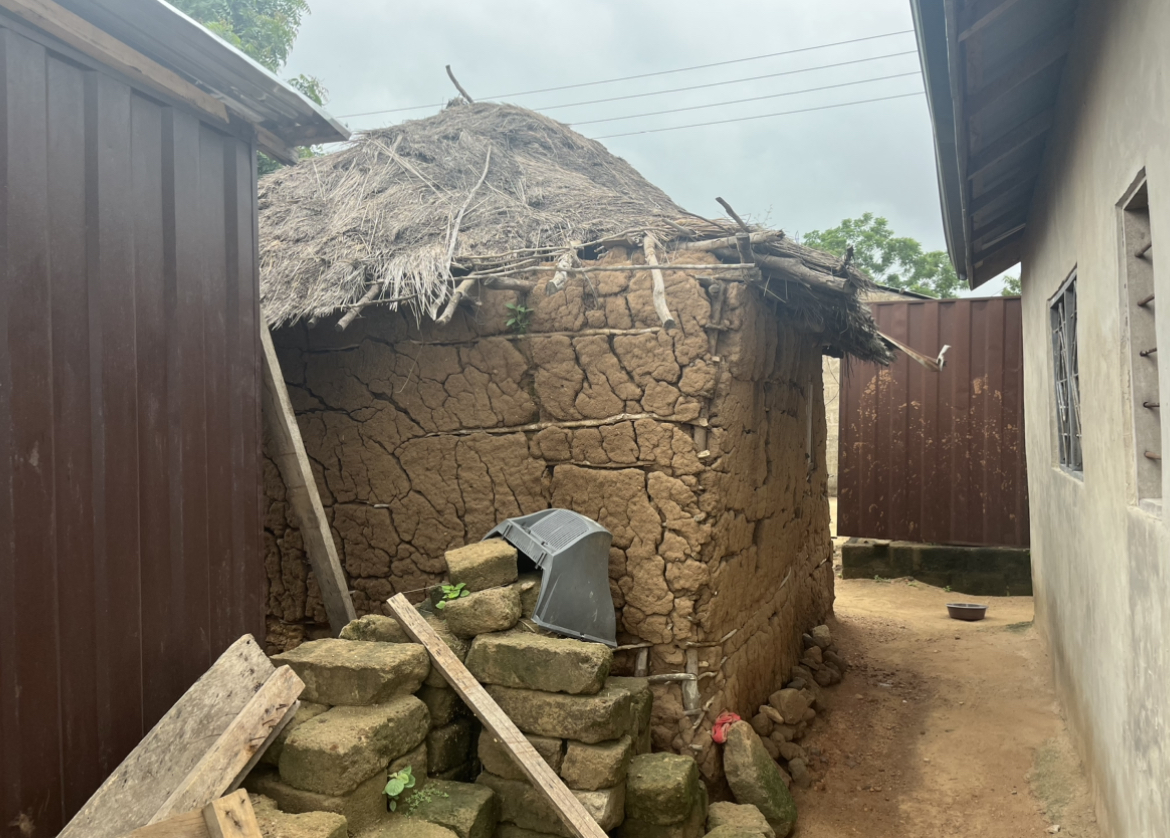

Our Friend Robbie in Gomoa Amoanda
June 28, 2024
On Tuesday, we drove to Gomoa Amoanda in the Central Region for our second community health and nutrition screening. Upon arrival, we saw the large, covered area we would operate under for the day. With a successful first day behind us, we quickly organized and set up our supplies. Regan created a rotating schedule for us to efficiently switch stations, which helped our services run smoothly. Our flow consisted of a height and weight station (calculating BMI), blood pressure station, blood station (hemoglobin and glucose), and Dr. Anderson’s counseling table. In certain cases, we also test lipid levels (total cholesterol, HDL, LDL, and triglycerides) and A1C levels. Eye doctors led a vision test and retinal exam while a nurse offered malaria testing. With practice, our confidence grew and our skills improved.
Our quickened pace combined with a slower influx of patients meant we had more free time and could chat with patients. I met a young girl named Robbie. Robbie asked my name and told me it was pretty. Throughout the day, she taught Reesa and me a few words in Twi! Atadeɛ means dress. Akonnwa means chair. Efie means house. Robbie came back, bringing a kind lady and sweet girls who also wanted to be screened and counseled. She helped translate between us all. Towards the end of the day, we compared our favorite dance moves and laughed together. Robbie is the epitome of Ghanaian generosity; she kindly welcomed us into her community, and I greatly enjoyed getting to know her.
-Amelia McCorvey


Clinical work
June 28, 2024
After many days of taking in the country by doing touristy activities while also trying our best to imbed ourself in with local life we finally began our clinic work which was the main reason we came here. Each clinic took place in a different village within the same region. We begin our day with breakfast at 6:15 sharp which is always some variation of eggs with toast. Ideally we hit the road at 7am to set off for the clinic, however, due to our partners in the community running consistently late, we realistically leave closer to 8am.
Upon arrival at our location for the day, we quickly unload the bus and set up our stations to begin as quickly as possible since by the time we get there the line for the clinic is already beginning to fill up. The station order goes as follows: Patient info intake, vision test conducted by a partner ENT doctor, height/weight/ BMI, blood pressure, blood station which takes hemoglobin, blood glucose, and if applicable blood lipid panel and hemoglobin A1C if the patient is diabetic. After the blood station patients are directed to Dr.Anderson’s table, he gives them nutrition counseling while explaining there health screening results in better detail. Since Dr.Anderson is a professor of nutrition and speaks three different languages in Ghana, there is no one better suited for this task!
Although the work is very fulfilling, and provides the entire cohort with an amazing experience we could never have in America, it does not come without its complications. Most notably the equipment we use is unfortunately very temperature sensitive. And if you know anything about Ghana, it is that the country is anything but temperature sensitive. This has led to many equipment malfunctions that the group has done a fantastic job of persevering through. I look forward to the hospital work and experience that we are going to do in the next few weeks!
-Rawad Basma




Crazy for Coconut
June 28, 2024
This past week, our group has had the amazing experience of being able to provide health screenings to different communities amongst central Ghana. This prior weekend, we reviewed the screening procedures and practiced different tests on each other. As we actually began traveling to the different communities, I found the days to be so meaningful and fun. The work being put in for each clinic by our entire group was amazing to see, and I loved that everyone was passionate about helping as many patients as possible. However, after many hours of working in the hot sun, we were all very dehydrated and extremely tired. Luckily, although the entire week was filled with serious dedication and professionalism, we were able to take a few periodic breaks to relax and refresh.
One thing I have come to observe about Ghana is that the fruit here is one hundred times better than those in the states. It often tastes sweeter, riper, and fresher. One of the fruits I have been lucky to enjoy during these screenings was freshly cut coconut. During our lunch breaks or at the end of a successful day, we have gotten to enjoy coconut that was just cut down from the numerous palm trees that grow abundantly in all the communities. Community members used giant machetes to chisel off one end of the coconut. The juice was sweeter than any coconut water I’ve ever had in America, and instantly reenergized me. My favorite part of the fruit was the rich meat inside that you can cut into once you finish the water. I have been enjoying the coconut so much that I found myself consuming multiple in one sitting.
I’m extremely thankful to be able to provide aid to the community of Ghana which I have come to appreciate greatly for their hospitality and warmth. I admire the trust put into us and hope to have helped many individuals with their health through this process. Being able to finish a long day knowing we all worked our hardest is only further perfected by the addition of a sweet juicy coconut. As this program continue, I am excited to see more of what Ghana healthcare can provide me.
-Reesa Schroeder

Asenema Waterfall
June 21, 2024
On June 15, 2024, we set out on the bus to visit the Akosombo Dam. This is a hydroelectric dam on the Volta River, and it powers most of Ghana and a few surrounding countries. Once we got there, we learned that a group of people have been trying to leave the country and create their own right by the dam. Because of this, the military has them surrounded and there is no access to visit Akosombo. We were slightly disappointed, but Dr. Anderson informed us there was a waterfall nearby and we could go there instead! First, we went on a boat ride on Lake Volta and then stopped for lunch on the way. As soon as we were done eating and packed up to go visit the waterfall, it started raining. We all decided a little rain would not stop us from going, so after a few minutes, we arrived at Asenema Waterfall.
The tour guide told us it was a five-minute hike to the waterfall and to watch our step because the ground was getting slippery from the rain. About halfway through it changed from a light rain to a downpour. We kept walking and this was the first time I was able to see how beautiful the different terrains are here in Ghana. The hike led us next to the river that flowed from the waterfall, and we were surrounded by beautiful greenery. Although the sky was dark grey and full of clouds, the trees and plants were vibrant and full of life. After the five minutes, we came across the stunning waterfall! I was the first person there behind the guide and he told me to get in the water in front of the waterfall for pictures. I was hesitant at first but since I was already drenched there was no harm in getting in. As I approached the waterfall in the water it got bigger and bigger and I was amazed at how much water it produced.
Finally, my peers joined me in the water, and we took a few pictures for the memory. This was one of my favorite days so far because we all embraced the rain and enjoyed the moment together. We finally headed back to the bus dripping from head to toe, but everyone was smiling from ear to ear. Most of us expressed how much we enjoyed playing in the rain like we used to as children. As we have aged, each of us stopped doing activities because of rain and it was a great reminder for us to go out and enjoy the outdoors no matter the weather. So often back in America I feel like as a society we see rain and stay indoors until it is over because getting wet would be an inconvenience. In Ghana, life carries on like normal when the rain comes because time is too valuable and too short to let it go to waste. It hit me on the bus that I need to take a step back and enjoy all the little moments and go outside even when it might be slightly inconvenient because time is precious.
- Schuyler Boyer



Our First Ghanaian Market
June 21, 2024
On June 17th we visited Madina Market! This was a huge open-air market filled with endless people, products, and stalls that seemed to go on forever. This market is actually one of the largest open-air markets in Ghana, so it was great to experience! Here we saw so many delicacies that I had never seen before including various types of cooked animal feet, humongous yams, live snails, different fruits that are not available in the United States, and so much more. Here, we would walk past retail hair care items, fruits, cutlery, meats, clothes, and more all within a matter of seconds. I feel as though I could have spent the whole day there and still would not have managed to see everything the market had to offer.
We were also lucky enough to attend the market with Dr. Anderson’s friend from college, and now professor at the University of Ghana, Dr. Matilda Steiner-Asiedu and her colleague, Obed. Before even arriving at the market, Dr. Matilda taught us a great deal about the market and nutrition including the how, where, when, and what of buying food, food security, nutrition security, the newer Ghanaian food groups, and the food calendar. Throughout her discussion, she was very informative and gave us so much to think about as we ventured through the market.
Dr. Matilda and Obed were also both so kind and eager to answer all of our questions while within the market. Dr. Matilda even bought each of us coconuts to try, which was a great new experience as I have never had fresh coconut before!
During our walk through the market, we also discussed many comparisons and contrasts of markets in the United States versus markets in Ghana. We came to the conclusion with Obed that markets in the United States are much rarer, and typically at a smaller scale than the ones in Ghana. In addition to this, we were discussing how Ghanaian markets have the aspect of bartering that United States markets do not. In the United States, everything typically has a set price. In Ghana, if you have the skills of bartering, you can negotiate a great price. We were advised, as we would be overcharged as tourists, to make a counter offer of half of the original offer when trying to purchase an item. I have not attempted bartering for something yet, as our market experience was largely observing, but I look forward to trying it out!
All in all, our first market experience was great! It was unlike any place I had ever been before and I felt it was such a great way for us to learn more about lifestyle, culture, and nutrition in Ghana. I will not soon forget our experience, and I am also thankful for Dr. Matilda’s and Obed’s help along the way!
-Jolie Goldstein




14 Hour Road trip in Ghana
June 21, 2024
Our group went on a 14 hour road trip up to the north of Ghana to go on a Safari in Mole National Park. Upon first arrival in Ghana you are met with a bustling city filled to the brim with people and cars, but this road trip provided a different insight into the country. Once we left the city limits it began to feel like we were entering a different country altogether. Northern Ghana is much more under developed and the religious demographics is more Muslim compared to the very Christian south. We went from seeing polished marble and stone buildings to seeing huts with roofs made of straw the further north we drove. The dichotomy of city life and rural life is observable anywhere, but Ghanas stark wealth contrast can only make one reflect about the privileges we experience in day to day life in America.
-Rawad Basma


On the Road Again
June 21, 2024
I can only speak on the Ghana that I have known thus far, and with prior obligations in the U.S. causing me to be late to the program, I have not become well acquainted with her yet. Arriving late to the program comes with many quirks. A small sense of anxiety seemed to follow closely behind me raising feelings that I would be behind in forming relationships or need to catch up on the knowledge of Ghanian culture and customs learned while here. Arriving late also meant that the fourteen-hour journey to Mole National Park in Northern Ghana was on the agenda the morning after I arrived. The first time I felt the warmth of the Ghanian sun would be through a bus window.
This turned out to be quite the introduction to the landscape of the country. As we traveled North, I watched the topography change from the big city of Accra to the farmlands and fields that stretched for miles. Many buildings are unfinished, open to the outside world, and even more are adorned in vibrant colors that peak through the layer of dust that blankets everything. I spent some of the ride drawing things that appeared frequently on the roadside of Ghana streets: tires, fruit stands, motorcycles, and many animals. The importance of spirituality in the country was on display more and more after each church and mosque we passed.
Everyone in the bus shared snacks and stories in between catching up on sleep that had been illuding us all. At one point a bag of assorted colored string was passed around and the women worked on friendship bracelets. We couldn’t convince the men to join us, and I can’t provide a picture of mine because I severely underestimated the time it takes to make one and never finished it. We talked and laughed and played a few too many games of heads up. I couldn’t have written a better welcome into the place that will be home for the next few weeks, and the bus rides have become one of my favorite places to be, who would have thought. There is a lot that can be done in fourteen hours, and it turned out to be just enough time for my earlier nerves to fade slowly in the rearview.
- LB Mason




The Value of Time and Family
June 21, 2024
Every morning and evening, all thirteen of us gather around the table to engage in breakfast and dinner. Though we wake up early and the days are long and full of travel, our shared meals are always lively. Despite getting less sleep than we might be used to, we seem to never let our exhaustion get in the way of getting to know each other and spending time with one another.
Time operates differently here. In Ghana, time is valued, but in a way that is opposite to the United States. I am accustomed to the hustle and bustle of the US—constant rushing to get to the next destination, chasing money and letting the moments that are undeniably human pass us by. In the dining halls, I see people walking between rooms until an entire vacant table opens for a single user. I see people insistent on only minding their business and not speaking to anyone at all, even if in very close proximity.
In Ghana, the pace of walking is slower. All our meals are family style, and it is typical to expect many strangers to say hello and ask you how you are in the Twi language (wo te sen). It is normal to wave to children or for a stranger to strike up a conversation with you, exclaiming, “Akwaaba,” which means welcome, and asking how you are enjoying your time here. In Ghana, family means more than who you are related to. Your community becomes your family, and you act in selfless ways to take care of them. You offer food off your plate even if it is not full. You make sure the children are behaving, regardless of whether they are yours.
We left Mampong-Akuapem on an early morning to reach Mole National Park. The journey was about 16 hours with stops, and needless to say that we were worried how we might pass the time with limited data connection. Many of us read, observed the landscape, or listened to downloaded music. Disconnection from the devices allowed me to see so much more than I otherwise would have. I seldom experienced the restlessness I had anticipated. Many of my classmates shared the same sentiment. And once we arrived to Mole National Park, we once again ate dinner, commenting on our newfound surroundings and making sure we didn’t mishear the staff when they said to lock our doors to keep safe from the baboons.
This newfound gratefulness for something as simple and as seemingly given as time has made the special moments last longer. While on our safari, we were able to get very close—about 20 feet—to African elephants, the greatest land animal. They were so peaceful, and I felt that we had a mutual respect for one another. Because of what I had learned from the Ghanaian people, I was able to fully engage in that moment and let it last as long as possible.
Sharing and valuing time with community are at the core of Ghana’s culture, as I have felt this all around me since the day I arrived. As I have learned from the Ghanaian people, I need to remember to appreciate life so that it does not pass me by.
-Kennedi Scales


A Boat Ride Through Volta River
June 21, 2024
During our first week in Ghana, we went on a boat ride at the Royal Senchi Resort in Akosombo—a moment that truly encapsulated the essence of this vibrant country. Cruising along the Volta River, accompanied by the rhythmic beats of Highlife music, we immersed ourselves in Ghana’s rich landscape and diverse flora and fauna. The river, flowing into Lake Volta, the largest man-made reservoir globally and home to Ghana’s largest hydroelectric dam, offered a serene backdrop as we savored the gentle waves.
Originally scheduled to visit the Volta dam that morning, we found it closed. However, viewing its imposing structure from the water surpassed my expectations. Our journey took us to the Adomi Bridge and back, where we enjoyed the scenes of children playing in the water, colorful houses nestled among the green mountains, and the peaceful interactions within our group. The tranquility was so profound that I could have easily drifted off to sleep.
As we snapped photos and shared laughter, it dawned on me: this program promised life-changing experiences. While I had envisioned Ghana and its anticipated wonders, nothing prepared me for the awe-inspiring beauty we encountered firsthand. Each destination we’ve explored so far leaves me eager to discover more of Ghana’s hidden treasures.
Everywhere we turn, bright smiles and gestures of kindness greet us, making me feel not just welcomed, but truly at home. Ghana has woven its charm around us, and I eagerly look forward to uncovering more of its beauty and warmth.
- Regan Leland




Tour of Former President Nkrumah’s Memorial
June 21, 2024
On Monday June 17th, we went to the memorial of the first Ghanaian president, Kwame Nkrumah. Kwame Nkrumah helped Ghana to gain independence from Britain in 1957. He was a well known non-violence activist leader who wanted to unite countries of Africa.
When we arrived, a tour guide led us through the different aspects of the memorial including portraits of the former president, his and his wife's burial grounds, and the indoor museum. Each aspect of the memorial has its own meaning behind why it was designed that way which was really interesting to learn about. For example, the statue of Kwame Nkrumah displays him holding his arm forward to symbolize that Ghana is always moving forward and improving.
The tour guide also discussed the history and important events of his life. One interesting story we learned was that Kwame Nkrumah was in his mother's womb for eleven months before being born! His mother told him that it was because God wanted to take his time creating him in order to make him extra special. I thought this was really interesting because he ended up becoming a great leader for Ghana's independence and Pan-Africanism. Nkrumah was the president of Ghana for six years, but in 1966, he was overthrown by a military coup with the help of the United States C.I.A.
The memorial itself shows the respect and support that the people of Ghana have for Kwame Nkrumah for his leadership and his goal of uniting Africa. While we were at the memorial, I noticed many different groups of school kids that were there to learn about Nkrumah which displays the importance of schools in Ghana to teach the younger generation about historic leadership figures. I really enjoyed our experience at the Memorial of Kwame Nkrumah and getting to learn more about the history of the country.
- Peyton




Experiencing Ghanaian Cuisine for the First Time
June 21, 2024
One of my favorite parts so far about being in Ghana has been being able to try the country’s cuisines. Although I have only been here for four whole days because I arrived to the program late, I have already been able to try many Ghanaian dishes. My favorite Ghanaian dish so far has been Red red. Red red is a dish that consists of some of the country’s most popular dishes: fried plantains and bean stew. The dish gets its name from red palm oil and fried plantain, which forms a red color. I like to eat this dish with a side of white rice and hot sauce. The dish is extremely flavorful as the bean stew has many spices in it with a thick and smooth consistency, while the plantains add a sweetness to the dish. I love this dish because it reminds me of a comfort dish back at home with the bean stew being somewhat of a thick “soup” and the plantains being a sweet treat I always like to have at the end of dinner.
Another reason why the meals in Ghana have been one of my favorite parts about the program so far is that we all get to eat around the table together. Everyone on the program, including Dr. Anderson, eats breakfast and dinner together. I love the time we get to spend with one another around the table while expanding our cultural palate by trying each other’s foods and sharing our dishes too. LB and I have been getting different dishes for every meal we have ordered and then splitting them with each other, that way we are able to try two different Ghanaian dishes at a time. I have tried Kelewele with tilapia, bean stew with white rice and chicken, vegetable stew with jollof rice and tilapia, Red red, and a homemade meal that Mrs. Glady’s made for us. Kelewele is a Ghanaian snack that can be served with meals and consists of spicy fried plantains filled with spices and flavors. Bean stew almost reminds me of curry because of its bold and rich flavors, but has a really thick consistency. Bean stew is filled with beans, all types of spices, and vegetables.
The portions in Ghana are much larger than the U.S. In Ghana if you order fish, you are getting the whole fish not just a piece of this fish like you would in America. Another example is if you get a side of rice, it would be around double to portion of what you’re used to in the U.S. it has been interesting to note the differences in Ghanaian cuisine compared to American cuisine.
My favorite dining experience was when Mrs. Glady’s cooked for us at her house. She made us a variety of traditional Ghanaian foods, including: fried plantains, pancakes, jollof rice, coleslaw, and Ghanaian styled chicken. It was a family style meal and we all ate together in her living room. I tried one of each and loved all of it. The chicken was filled with spices and flavors, we all grabbed a drumstick and some students came back for seconds. The Ghanaian pancakes, which looked more like crepes, were the perfect consistency. The pancakes were not too sweet or heavy, but just right! I felt honored to eat a dish prepared by a local Ghanaian right in her own home! I was thankful for her sweet hospitality as she allowed and prepared for us a place to stay and prepared a meal for us with her own hands and resources.
- Britney Diep




Welcomed Unconditionally to Ascension Methodist Church
June 21, 2024
On our first Sunday in Ghana, we attended a service at Ascension Methodist Church in Mampong. When we first arrived, church members were concluding a Bible Study gathering. They passed around a microphone to those who felt inclined to share their thoughts as their peers listened intently. This was very interactive and demonstrated the mutual respect and care present between these individuals. Several members approached our rows to personally welcome us to their country and church.
The duration of the service was a little over three hours and involved scripture readings, recited prayers, independent prayers, offerings, and worship music. Most of the sermon was led in Twi; segments were spoken in English. As this service was on Father's Day, two members spoke about the values of and their experiences with fatherhood. As the upbeat worship music played, members joyously danced and enthusiastically sang along. We were led to the front of the sanctuary and danced! The congregation happily accepted us and celebrated our genuine participation, even though we didn't know the lyrics and clapped off beat. There were two opportunities to support the church financially; members danced towards the front in lines to present offerings to the church itself and to the pastor. Towards the end of the service, Dr. Anderson addressed the congregation and explained the community programming we will lead over the next month before we introduced ourselves individually. The church gifted us sodas and sweet and salty KrackJack. The service was lively, authentic, and fun.
-Amelia McCorvey


Touring the University Farm
June 21, 2024
As we have completed our first week in Ghana, our group has been able to experience the country through a diverse series of unforgettable activities. So far, one of my favorite outings has been to the University of Ghana farm. The property is rich with produce, livestock, and countless research projects. We were given a tour by university staff and loved seeing pigs, goats, sheep, chicken, and even a couple donkeys. One interesting thing we learned was that the university raised rabbits, but also a near relative called grasscutters. It was extremely fun to see all the animals and also to learn about the university farm’s academic pursuits as well.
The university conducts research to find the most effective ways to raise the different animals. For example, they may change the type of animal feed to see how meat quality improves. It was amazing to see the dedication of raising animals with quality of life and product in mind. In addition to research, the university also produced their own products. Nearing the end of the tour, we got to learn about the yogurt production process which happens directly on the farm. After learning about mechanical systems, dry vs. liquid milk, the cleaning process, and more, we were able to taste a couple samples of this yogurt: tart original and strawberry. It was a delicious way to cool off in the Ghanaian heat and to end our tour for the day. This experience, among all the others this week, has highlighted the welcoming and warm nature of Ghanaian culture and makes me look forward to giving back to the community through my service work.
-Reesa Schroeder






